Malaysia Travel Restrictions
Traveler's COVID-19 vaccination status

Traveling from the United States to Malaysia
Open for vaccinated visitors
COVID-19 testing
Not required
Not required for vaccinated visitors
Restaurants
Recommended on public transportation.
Ready to travel?
Find flights to malaysia, find stays in malaysia, explore more countries on travel restrictions map, destinations you can travel to now, dominican republic, netherlands, philippines, puerto rico, switzerland, united arab emirates, united kingdom, know when to go.
Sign up for email alerts as countries begin to open - choose the destinations you're interested in so you're in the know.
Can I travel to Malaysia from the United States?
Most visitors from the United States, regardless of vaccination status, can enter Malaysia.
Can I travel to Malaysia if I am vaccinated?
Fully vaccinated visitors from the United States can enter Malaysia without restrictions.
Can I travel to Malaysia without being vaccinated?
Unvaccinated visitors from the United States can enter Malaysia without restrictions.
Do I need a COVID test to enter Malaysia?
Visitors from the United States are not required to present a negative COVID-19 PCR test or antigen result upon entering Malaysia.
Can I travel to Malaysia without quarantine?
Travelers from the United States are not required to quarantine.
Do I need to wear a mask in Malaysia?
Mask usage in Malaysia is recommended on public transportation.
Are the restaurants and bars open in Malaysia?
Restaurants in Malaysia are open. Bars in Malaysia are .
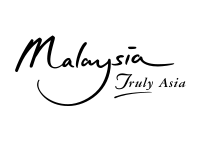
- About Malaysia
- Travel Ideas
- Deals & Packages
- Travel Alert
- Events & Happenings

Key Information for Travelers to Malaysia.
- 02 Dec 2023
- 03 Oct 2022
- 01 Aug 2022
- 28 Apr 2022
- 29 Mar 2022
- 11 Mar 2022
- 28 Feb 2022
- 25 Jan 2022
- 30 Dec 2021
- 11 Dec 2021
- 01 Dec 2021
- 16 Nov 2021
- 25 Oct 2021
- 11 Oct 2021
- 22 Sep 2021
- 02 Sep 2021
- 16 Aug 2021
- 02 Aug 2021
- 30 Jun 2021
- 16 Jun 2021
- 02 Jun 2021
- 11 May 2021
- 27 Apr 2021
- 17 Mar 2021
- 26 Feb 2021
- 18 Feb 2021
- 05 Feb 2021
- 27 Jan 2021
- 20 Jan 2021
- 13 Jan 2021
- 08 Jan 2021
- 22 Dec 2020
- 17 Dec 2020
- 09 Dec 2020
- 05 Dec 2020
- 02 Dec 2020
- 27 Nov 2020
- 24 Nov 2020
- 23 Nov 2020
- 18 Nov 2020
- 12 Nov 2020
- 10 Nov 2020
- 03 Nov 2020
- 30 Oct 2020
- 27 Oct 2020
- 24 Oct 2020
- 21 Oct 2020
- 16 Oct 2020
- 13 Oct 2020
- 09 Oct 2020
- 07 Oct 2020
- 02 Oct 2020
- 30 Sep 2020
- 25 Sep 2020
- 23 Sep 2020
- 19 Sep 2020
- 16 Sep 2020
- 11 Sep 2020
- 08 Sep 2020
- 04 Sep 2020
- 31 Aug 2020
- 26 Aug 2020
- 18 Aug 2020
- 12 Aug 2020
- 06 Aug 2020
- 05 Aug 2020
- 28 Jul 2020
- 25 Jul 2020
- 22 Jul 2020
- 18 Jul 2020
- 11 Jul 2020
- 08 Jul 2020
- 04 Jul 2020
- 01 Jul 2020
- 01 Jun 2020
- 06 Jun 2020
- 08 Jun 2020
- 11 Jun 2020
- 16 Jun 2020
- 27 Jun 2020
- 24 Jun 2020
- 20 Jun 2020
- 02 May 2020
- 06 May 2020
- 08 May 2020
- 12 May 2020
- 17 May 2020
- 20 May 2020
- 01 Apr 2020
- 07 Apr 2020
- 09 Apr 2020
- 16 Apr 2020
- 17 Apr 2020
- 22 Apr 2020
- 24 Apr 2020
- 30 Apr 2020
- 17 Mar 2020
- 19 Mar 2020
- 27 Mar 2020
- 22 Mar 2020
- 06 Feb 2020
- 14 Feb 2020
Saturday, 02 December 2023
Foreign visitors requirement: malaysia digital arrival card (mdac).
All foreign travellers must complete the Malaysia Digital Arrival Card (MDAC) within three (3) days prior to their scheduled arrival in Malaysia.
Steps required:
- Step 1 : Fill up the Malaysia Digital Arrival Card (MDAC) here
- Step 2 : Submit the MDAC within three (3) days prior to your arrival to Malaysia. Proof of submission will be sent to your registered email.
- Step 3: Upon arrival in Malaysia, kindly proceed to the Immigration counters.
The following travellers are exempted from this new requirement:
- Singaporeans
- Diplomatic and Official Passports holders
- Malaysian permanent residents (PR) and Long-Term Pass holders
- Brunei Common Certificate of Identification (GCI) holders
- Brunei-Malaysia Frequent Traveller Facility holders
- Thailand Border Pass holders
- Indonesian Cross Border Pass (PLB) holders
For more information, kindly refer to the immigration website at https://www.imi.gov.my/

Be informed about Malaysia as a travel destination.

We’re sorry, this site is currently experiencing technical difficulties. Please try again in a few moments. Exception: request blocked
Cookies on GOV.UK
We use some essential cookies to make this website work.
We’d like to set additional cookies to understand how you use GOV.UK, remember your settings and improve government services.
We also use cookies set by other sites to help us deliver content from their services.
You have accepted additional cookies. You can change your cookie settings at any time.
You have rejected additional cookies. You can change your cookie settings at any time.
Register to vote Register by 18 June to vote in the General Election on 4 July.
- Passports, travel and living abroad
- Travel abroad
- Foreign travel advice
Warnings and insurance
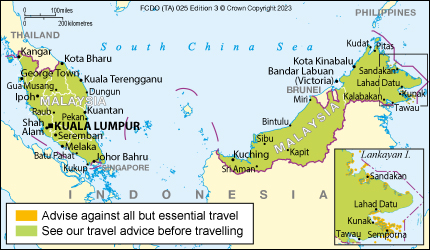
The Foreign, Commonwealth & Development Office ( FCDO ) provides advice about risks of travel to help British nationals make informed decisions. Find out more about FCDO travel advice .
Areas where FCDO advises against all but essential travel
Your travel insurance could be invalidated if you travel against FCDO advice.
Eastern Sabah coastal islands
FCDO advises against all but essential travel to all islands and dive sites off the coast of eastern Sabah from Sandakan to Tawau, including Lankayan Island, due to the threat of kidnapping. This does not apply to the mainland of Sabah.
Find out more about why FCDO advises against travel .
Before you travel
No travel can be guaranteed safe. Read all the advice in this guide and any specific travel advice that applies to you:
- disabled people
- LGBT+ people
Follow and contact FCDO travel on Twitter , Facebook and Instagram . You can also sign up to get email notifications when this advice is updated.
Travel insurance
If you choose to travel, research your destinations and get appropriate travel insurance . Insurance should cover your itinerary, planned activities and expenses in an emergency.
Related content
Is this page useful.
- Yes this page is useful
- No this page is not useful
Help us improve GOV.UK
Don’t include personal or financial information like your National Insurance number or credit card details.
To help us improve GOV.UK, we’d like to know more about your visit today. Please fill in this survey (opens in a new tab) .
You are using an outdated browser. Upgrade your browser today or install Google Chrome Frame to better experience this site.
Malaysia Traveler View
Travel health notices, vaccines and medicines, non-vaccine-preventable diseases, stay healthy and safe.
- Packing List
After Your Trip
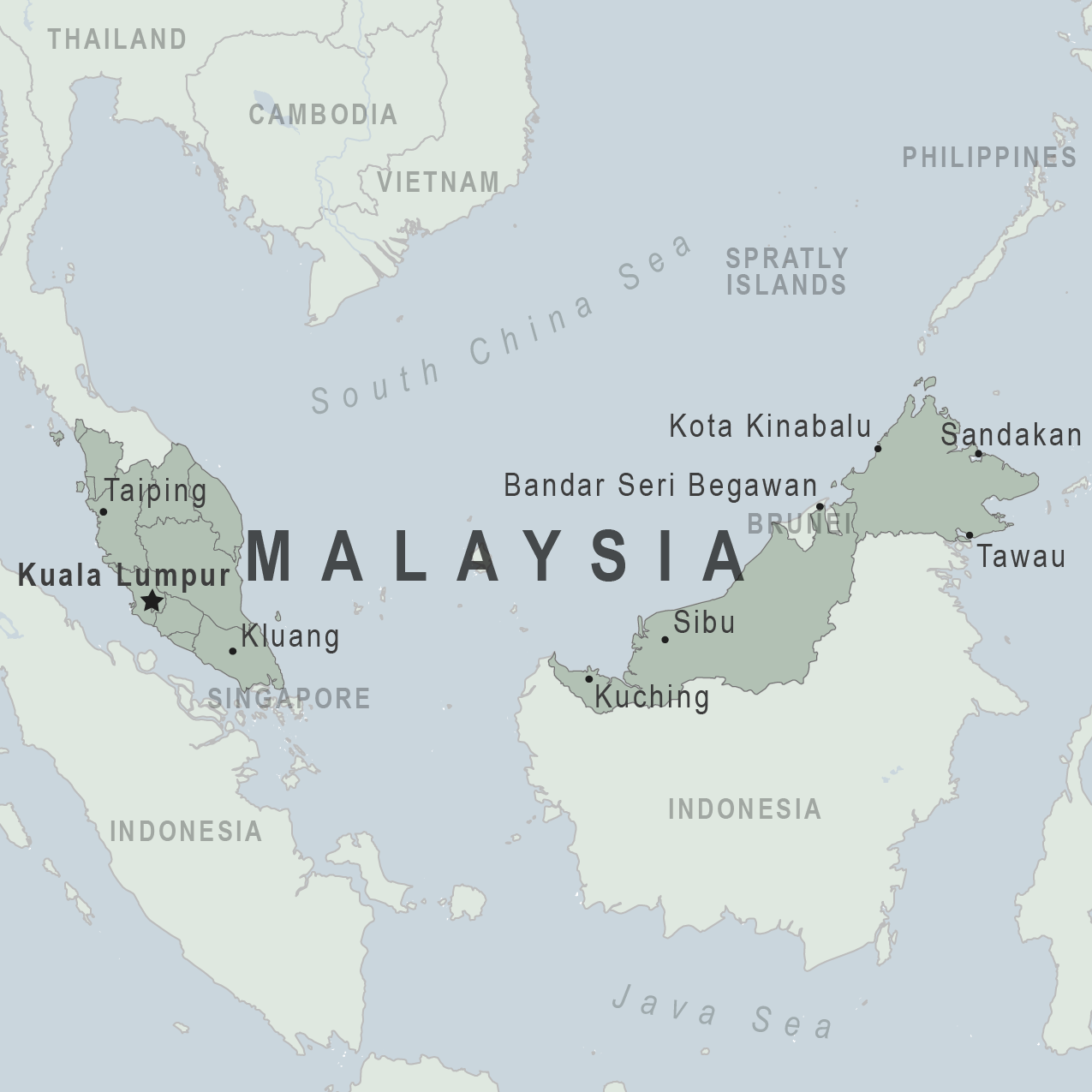
Be aware of current health issues in Malaysia. Learn how to protect yourself.
Level 1 Practice Usual Precautions
- Updated Global Measles May 28, 2024 Many international destinations are reporting increased numbers of cases of measles. Destination List: Afghanistan, Angola, Armenia, Austria, Azerbaijan, Belarus, Benin, Burkina Faso, Burundi, Cameroon, Central African Republic, Chad, Côte d'Ivoire (Ivory Coast), Democratic Republic of the Congo, Djibouti, Equatorial Guinea, Ethiopia, Gabon, Ghana, India, Indonesia, Kazakhstan, Kyrgyzstan, Lebanon, Liberia, Libya, Malaysia, Mauritania, Nepal, Niger, Nigeria, Pakistan, Philippines, Qatar, Republic of South Sudan, Republic of the Congo, Romania, Russia, Senegal, Somalia, Sri Lanka, Sudan, Syria, Tajikistan, Togo, Turkey, United Arab Emirates, Uzbekistan, Yemen, Zambia
⇧ Top
Check the vaccines and medicines list and visit your doctor at least a month before your trip to get vaccines or medicines you may need. If you or your doctor need help finding a location that provides certain vaccines or medicines, visit the Find a Clinic page.
Routine vaccines
Recommendations.
Make sure you are up-to-date on all routine vaccines before every trip. Some of these vaccines include
- Chickenpox (Varicella)
- Diphtheria-Tetanus-Pertussis
- Flu (influenza)
- Measles-Mumps-Rubella (MMR)
Immunization schedules
All eligible travelers should be up to date with their COVID-19 vaccines. Please see Your COVID-19 Vaccination for more information.
COVID-19 vaccine
Chikungunya
There has been evidence of chikungunya virus transmission in Malaysia within the last 5 years. Chikungunya vaccination may be considered for the following travelers:
- People aged 65 years or older, especially those with underlying medical conditions, who may spend at least 2 weeks (cumulative time) in indoor or outdoor areas where mosquitoes are present in Malaysia, OR
- People planning to stay in Malaysia for a cumulative period of 6 months or more
Chikungunya - CDC Yellow Book
There is no longer active cholera transmission and vaccine is not recommended.
Cholera - CDC Yellow Book
Hepatitis A
Recommended for unvaccinated travelers one year old or older going to Malaysia.
Infants 6 to 11 months old should also be vaccinated against Hepatitis A. The dose does not count toward the routine 2-dose series.
Travelers allergic to a vaccine component or who are younger than 6 months should receive a single dose of immune globulin, which provides effective protection for up to 2 months depending on dosage given.
Unvaccinated travelers who are over 40 years old, immunocompromised, or have chronic medical conditions planning to depart to a risk area in less than 2 weeks should get the initial dose of vaccine and at the same appointment receive immune globulin.
Hepatitis A - CDC Yellow Book
Dosing info - Hep A
Hepatitis B
Recommended for unvaccinated travelers younger than 60 years old traveling to Malaysia. Unvaccinated travelers 60 years and older may get vaccinated before traveling to Malaysia.
Hepatitis B - CDC Yellow Book
Dosing info - Hep B
Japanese Encephalitis
Recommended for travelers who
- Are moving to an area with Japanese encephalitis to live
- Spend long periods of time, such as a month or more, in areas with Japanese encephalitis
- Frequently travel to areas with Japanese encephalitis
Consider vaccination for travelers
- Spending less than a month in areas with Japanese encephalitis but will be doing activities that increase risk of infection, such as visiting rural areas, hiking or camping, or staying in places without air conditioning, screens, or bed nets
- Going to areas with Japanese encephalitis who are uncertain of their activities or how long they will be there
Not recommended for travelers planning short-term travel to urban areas or travel to areas with no clear Japanese encephalitis season.
Japanese encephalitis - CDC Yellow Book
Japanese Encephalitis Vaccine for US Children
CDC recommends that travelers going to certain areas of Malaysia take prescription medicine to prevent malaria. Depending on the medicine you take, you will need to start taking this medicine multiple days before your trip, as well as during and after your trip. Talk to your doctor about which malaria medication you should take.
Find country-specific information about malaria.
Malaria - CDC Yellow Book
Considerations when choosing a drug for malaria prophylaxis (CDC Yellow Book)
Malaria information for Malaysia.
Cases of measles are on the rise worldwide. Travelers are at risk of measles if they have not been fully vaccinated at least two weeks prior to departure, or have not had measles in the past, and travel internationally to areas where measles is spreading.
All international travelers should be fully vaccinated against measles with the measles-mumps-rubella (MMR) vaccine, including an early dose for infants 6–11 months, according to CDC’s measles vaccination recommendations for international travel .
Measles (Rubeola) - CDC Yellow Book
Dogs infected with rabies are sometimes found in Malaysia.
If rabies exposures occur while in Malaysia, rabies vaccines are typically available throughout most of the country.
Rabies pre-exposure vaccination considerations include whether travelers 1) will be performing occupational or recreational activities that increase risk for exposure to potentially rabid animals and 2) might have difficulty getting prompt access to safe post-exposure prophylaxis.
Please consult with a healthcare provider to determine whether you should receive pre-exposure vaccination before travel.
For more information, see country rabies status assessments .
Rabies - CDC Yellow Book
Recommended for most travelers, especially those staying with friends or relatives or visiting smaller cities or rural areas.
Typhoid - CDC Yellow Book
Dosing info - Typhoid
Yellow Fever
Required for travelers ≥1 year old arriving from countries with risk for YF virus transmission; this includes >12-hour airport transits or layovers in countries with risk for YF virus transmission. 1
Yellow Fever - CDC Yellow Book
Avoid contaminated water
Leptospirosis
How most people get sick (most common modes of transmission)
- Touching urine or other body fluids from an animal infected with leptospirosis
- Swimming or wading in urine-contaminated fresh water, or contact with urine-contaminated mud
- Drinking water or eating food contaminated with animal urine
- Avoid contaminated water and soil
- Avoid floodwater
Clinical Guidance
Avoid bug bites.
- Mosquito bite
- Avoid Bug Bites
- Mosquito bite
- An infected pregnant woman can spread it to her unborn baby
Airborne & droplet
- Breathing in air or accidentally eating food contaminated with the urine, droppings, or saliva of infected rodents
- Bite from an infected rodent
- Less commonly, being around someone sick with hantavirus (only occurs with Andes virus)
- Avoid rodents and areas where they live
- Avoid sick people
Tuberculosis (TB)
- Breathe in TB bacteria that is in the air from an infected and contagious person coughing, speaking, or singing.
Learn actions you can take to stay healthy and safe on your trip. Vaccines cannot protect you from many diseases in Malaysia, so your behaviors are important.
Eat and drink safely
Food and water standards around the world vary based on the destination. Standards may also differ within a country and risk may change depending on activity type (e.g., hiking versus business trip). You can learn more about safe food and drink choices when traveling by accessing the resources below.
- Choose Safe Food and Drinks When Traveling
- Water Treatment Options When Hiking, Camping or Traveling
- Global Water, Sanitation and Hygiene (WASH)
- Avoid Contaminated Water During Travel
You can also visit the Department of State Country Information Pages for additional information about food and water safety.
Prevent bug bites
Bugs (like mosquitoes, ticks, and fleas) can spread a number of diseases in Malaysia. Many of these diseases cannot be prevented with a vaccine or medicine. You can reduce your risk by taking steps to prevent bug bites.
What can I do to prevent bug bites?
- Cover exposed skin by wearing long-sleeved shirts, long pants, and hats.
- Use an appropriate insect repellent (see below).
- Use permethrin-treated clothing and gear (such as boots, pants, socks, and tents). Do not use permethrin directly on skin.
- Stay and sleep in air-conditioned or screened rooms.
- Use a bed net if the area where you are sleeping is exposed to the outdoors.
What type of insect repellent should I use?
- FOR PROTECTION AGAINST TICKS AND MOSQUITOES: Use a repellent that contains 20% or more DEET for protection that lasts up to several hours.
- Picaridin (also known as KBR 3023, Bayrepel, and icaridin)
- Oil of lemon eucalyptus (OLE) or para-menthane-diol (PMD)
- 2-undecanone
- Always use insect repellent as directed.
What should I do if I am bitten by bugs?
- Avoid scratching bug bites, and apply hydrocortisone cream or calamine lotion to reduce the itching.
- Check your entire body for ticks after outdoor activity. Be sure to remove ticks properly.
What can I do to avoid bed bugs?
Although bed bugs do not carry disease, they are an annoyance. See our information page about avoiding bug bites for some easy tips to avoid them. For more information on bed bugs, see Bed Bugs .
For more detailed information on avoiding bug bites, see Avoid Bug Bites .
Stay safe outdoors
If your travel plans in Malaysia include outdoor activities, take these steps to stay safe and healthy during your trip.
- Stay alert to changing weather conditions and adjust your plans if conditions become unsafe.
- Prepare for activities by wearing the right clothes and packing protective items, such as bug spray, sunscreen, and a basic first aid kit.
- Consider learning basic first aid and CPR before travel. Bring a travel health kit with items appropriate for your activities.
- If you are outside for many hours in heat, eat salty snacks and drink water to stay hydrated and replace salt lost through sweating.
- Protect yourself from UV radiation : use sunscreen with an SPF of at least 15, wear protective clothing, and seek shade during the hottest time of day (10 a.m.–4 p.m.).
- Be especially careful during summer months and at high elevation. Because sunlight reflects off snow, sand, and water, sun exposure may be increased during activities like skiing, swimming, and sailing.
- Very cold temperatures can be dangerous. Dress in layers and cover heads, hands, and feet properly if you are visiting a cold location.
Stay safe around water
- Swim only in designated swimming areas. Obey lifeguards and warning flags on beaches.
- Practice safe boating—follow all boating safety laws, do not drink alcohol if driving a boat, and always wear a life jacket.
- Do not dive into shallow water.
- Do not swim in freshwater in developing areas or where sanitation is poor.
- Avoid swallowing water when swimming. Untreated water can carry germs that make you sick.
- To prevent infections, wear shoes on beaches where there may be animal waste.
Keep away from animals
Most animals avoid people, but they may attack if they feel threatened, are protecting their young or territory, or if they are injured or ill. Animal bites and scratches can lead to serious diseases such as rabies.
Follow these tips to protect yourself:
- Do not touch or feed any animals you do not know.
- Do not allow animals to lick open wounds, and do not get animal saliva in your eyes or mouth.
- Avoid rodents and their urine and feces.
- Traveling pets should be supervised closely and not allowed to come in contact with local animals.
- If you wake in a room with a bat, seek medical care immediately. Bat bites may be hard to see.
All animals can pose a threat, but be extra careful around dogs, bats, monkeys, sea animals such as jellyfish, and snakes. If you are bitten or scratched by an animal, immediately:
- Wash the wound with soap and clean water.
- Go to a doctor right away.
- Tell your doctor about your injury when you get back to the United States.
Consider buying medical evacuation insurance. Rabies is a deadly disease that must be treated quickly, and treatment may not be available in some countries.
Reduce your exposure to germs
Follow these tips to avoid getting sick or spreading illness to others while traveling:
- Wash your hands often, especially before eating.
- If soap and water aren’t available, clean hands with hand sanitizer (containing at least 60% alcohol).
- Don’t touch your eyes, nose, or mouth. If you need to touch your face, make sure your hands are clean.
- Cover your mouth and nose with a tissue or your sleeve (not your hands) when coughing or sneezing.
- Try to avoid contact with people who are sick.
- If you are sick, stay home or in your hotel room, unless you need medical care.
Avoid sharing body fluids
Diseases can be spread through body fluids, such as saliva, blood, vomit, and semen.
Protect yourself:
- Use latex condoms correctly.
- Do not inject drugs.
- Limit alcohol consumption. People take more risks when intoxicated.
- Do not share needles or any devices that can break the skin. That includes needles for tattoos, piercings, and acupuncture.
- If you receive medical or dental care, make sure the equipment is disinfected or sanitized.
Know how to get medical care while traveling
Plan for how you will get health care during your trip, should the need arise:
- Carry a list of local doctors and hospitals at your destination.
- Review your health insurance plan to determine what medical services it would cover during your trip. Consider purchasing travel health and medical evacuation insurance.
- Carry a card that identifies, in the local language, your blood type, chronic conditions or serious allergies, and the generic names of any medications you take.
- Some prescription drugs may be illegal in other countries. Call Malaysia’s embassy to verify that all of your prescription(s) are legal to bring with you.
- Bring all the medicines (including over-the-counter medicines) you think you might need during your trip, including extra in case of travel delays. Ask your doctor to help you get prescriptions filled early if you need to.
Many foreign hospitals and clinics are accredited by the Joint Commission International. A list of accredited facilities is available at their website ( www.jointcommissioninternational.org ).
In some countries, medicine (prescription and over-the-counter) may be substandard or counterfeit. Bring the medicines you will need from the United States to avoid having to buy them at your destination.
Malaria is a risk in some parts of Malaysia. If you are going to a risk area, fill your malaria prescription before you leave, and take enough with you for the entire length of your trip. Follow your doctor’s instructions for taking the pills; some need to be started before you leave.
Select safe transportation
Motor vehicle crashes are the #1 killer of healthy US citizens in foreign countries.
In many places cars, buses, large trucks, rickshaws, bikes, people on foot, and even animals share the same lanes of traffic, increasing the risk for crashes.
Be smart when you are traveling on foot.
- Use sidewalks and marked crosswalks.
- Pay attention to the traffic around you, especially in crowded areas.
- Remember, people on foot do not always have the right of way in other countries.
Riding/Driving
Choose a safe vehicle.
- Choose official taxis or public transportation, such as trains and buses.
- Ride only in cars that have seatbelts.
- Avoid overcrowded, overloaded, top-heavy buses and minivans.
- Avoid riding on motorcycles or motorbikes, especially motorbike taxis. (Many crashes are caused by inexperienced motorbike drivers.)
- Choose newer vehicles—they may have more safety features, such as airbags, and be more reliable.
- Choose larger vehicles, which may provide more protection in crashes.
Think about the driver.
- Do not drive after drinking alcohol or ride with someone who has been drinking.
- Consider hiring a licensed, trained driver familiar with the area.
- Arrange payment before departing.
Follow basic safety tips.
- Wear a seatbelt at all times.
- Sit in the back seat of cars and taxis.
- When on motorbikes or bicycles, always wear a helmet. (Bring a helmet from home, if needed.)
- Avoid driving at night; street lighting in certain parts of Malaysia may be poor.
- Do not use a cell phone or text while driving (illegal in many countries).
- Travel during daylight hours only, especially in rural areas.
- If you choose to drive a vehicle in Malaysia, learn the local traffic laws and have the proper paperwork.
- Get any driving permits and insurance you may need. Get an International Driving Permit (IDP). Carry the IDP and a US-issued driver's license at all times.
- Check with your auto insurance policy's international coverage, and get more coverage if needed. Make sure you have liability insurance.
- Avoid using local, unscheduled aircraft.
- If possible, fly on larger planes (more than 30 seats); larger airplanes are more likely to have regular safety inspections.
- Try to schedule flights during daylight hours and in good weather.
Medical Evacuation Insurance
If you are seriously injured, emergency care may not be available or may not meet US standards. Trauma care centers are uncommon outside urban areas. Having medical evacuation insurance can be helpful for these reasons.
Helpful Resources
Road Safety Overseas (Information from the US Department of State): Includes tips on driving in other countries, International Driving Permits, auto insurance, and other resources.
The Association for International Road Travel has country-specific Road Travel Reports available for most countries for a minimal fee.
Traffic flows on the left side of the road in Malaysia.
- Always pay close attention to the flow of traffic, especially when crossing the street.
- LOOK RIGHT for approaching traffic.
Maintain personal security
Use the same common sense traveling overseas that you would at home, and always stay alert and aware of your surroundings.
Before you leave
- Research your destination(s), including local laws, customs, and culture.
- Monitor travel advisories and alerts and read travel tips from the US Department of State.
- Enroll in the Smart Traveler Enrollment Program (STEP) .
- Leave a copy of your itinerary, contact information, credit cards, and passport with someone at home.
- Pack as light as possible, and leave at home any item you could not replace.
While at your destination(s)
- Carry contact information for the nearest US embassy or consulate .
- Carry a photocopy of your passport and entry stamp; leave the actual passport securely in your hotel.
- Follow all local laws and social customs.
- Do not wear expensive clothing or jewelry.
- Always keep hotel doors locked, and store valuables in secure areas.
- If possible, choose hotel rooms between the 2nd and 6th floors.
Healthy Travel Packing List
Use the Healthy Travel Packing List for Malaysia for a list of health-related items to consider packing for your trip. Talk to your doctor about which items are most important for you.
Why does CDC recommend packing these health-related items?
It’s best to be prepared to prevent and treat common illnesses and injuries. Some supplies and medicines may be difficult to find at your destination, may have different names, or may have different ingredients than what you normally use.
If you are not feeling well after your trip, you may need to see a doctor. If you need help finding a travel medicine specialist, see Find a Clinic . Be sure to tell your doctor about your travel, including where you went and what you did on your trip. Also tell your doctor if you were bitten or scratched by an animal while traveling.
If your doctor prescribed antimalarial medicine for your trip, keep taking the rest of your pills after you return home. If you stop taking your medicine too soon, you could still get sick.
Malaria is always a serious disease and may be a deadly illness. If you become ill with a fever either while traveling in a malaria-risk area or after you return home (for up to 1 year), you should seek immediate medical attention and should tell the doctor about your travel history.
For more information on what to do if you are sick after your trip, see Getting Sick after Travel .
Map Disclaimer - The boundaries and names shown and the designations used on maps do not imply the expression of any opinion whatsoever on the part of the Centers for Disease Control and Prevention concerning the legal status of any country, territory, city or area or of its authorities, or concerning the delimitation of its frontiers or boundaries. Approximate border lines for which there may not yet be full agreement are generally marked.
Other Destinations
If you need help finding travel information:
Message & data rates may apply. CDC Privacy Policy
File Formats Help:
- Adobe PDF file
- Microsoft PowerPoint file
- Microsoft Word file
- Microsoft Excel file
- Audio/Video file
- Apple Quicktime file
- RealPlayer file
- Zip Archive file
Exit Notification / Disclaimer Policy
- The Centers for Disease Control and Prevention (CDC) cannot attest to the accuracy of a non-federal website.
- Linking to a non-federal website does not constitute an endorsement by CDC or any of its employees of the sponsors or the information and products presented on the website.
- You will be subject to the destination website's privacy policy when you follow the link.
- CDC is not responsible for Section 508 compliance (accessibility) on other federal or private website.
- Skip to main content
- Skip to "About this site"
Language selection
Search travel.gc.ca.
Help us to improve our website. Take our survey !
COVID-19: travel health notice for all travellers
Malaysia travel advice
Latest updates: Editorial change
Last updated: June 5, 2024 06:24 ET
On this page
Safety and security, entry and exit requirements, laws and culture, natural disasters and climate, malaysia - exercise a high degree of caution.
Exercise a high degree of caution in Malaysia due to the threat of criminality and terrorism.
East coast of Sabah - Avoid non-essential travel
- Kinabatangan
Back to top
Demonstrations in Kuala Lumpur
Due to the ongoing situation in Israel, the West Bank and the Gaza Strip, calls for protests on Fridays and weekends may continue for the duration of the conflict. Large-scale demonstrations are expected to continue.
Even peaceful demonstrations can turn violent at any time. If you're in Kuala Lumpur:
- remain vigilant at all times, especially near embassies, tourist attractions and markets
- monitor local media for the latest information on these demonstrations
- avoid all demonstrations and large gatherings
- follow the advice of local authorities
East coast of Sabah
Eastern Sabah is deemed a Special Security Area by the Malaysian government. Despite increased security in the region, the risk of kidnapping and violence perpetrated by Philippine militants remains, especially in the coastal areas. Tourist resorts, restaurants and watercrafts are targeted as well as resort islands and surrounding waters, including around Sipadan. The risk increases on the water and waterfront after nightfall. Land- and water-based curfews, including a Movement Control Order, are in effect in the coastal areas of Eastern Sabah.
The Eastern Sabah Security Zone (ESSZone) includes:
Check local media or with local police for the most recent curfew information. Follow the instructions of local authorities.
Violent crime against foreigners is not common. Petty crime, however, such as pickpocketing, purse snatching, and snatch-and-grab incidents is prevalent, especially in tourist areas and at the airport. Thieves on motorcycles frequently grab bags and other valuables from pedestrians, often resulting in injury. Women walking alone or with children are common targets.
- Ensure that your personal belongings, including your passport and other travel documents, are secure at all times
- Try to limit the number of valuables you carry
- Wear your purse facing away from the street and don’t put the strap over your shoulder or wrap it around your arm
- Don’t leave valuables unattended in vehicles
Scam artists operate in Malaysia. Male travellers, usually alone, have been approached in public places with invitations to participate in card games offering attractive opportunities for winning large amounts of money. Victims have lost thousands of dollars before realizing they were being scammed. Companies have also been the target of scams. Scammers will often pose as representatives from phony loan companies and fabricate documents, emails and receipts to appear legitimate. They then ask for up-front payments in order to facilitate the fake loans. Don’t enter into agreements without conducting appropriate research.
There are reports of travellers encountering serious problems after responding to advertisements to do volunteer work with some adventure or environmental organizations. If you are interested in doing volunteer work abroad, conduct careful research before making a commitment.
Internet dating and other financial scams are common. Foreigners, including Canadian expatriates, may be targeted.
Credit cards and debit cards should be safeguarded at all times as theft, fraud and skimming does occur. Credit card magnetic strips have been duplicated, even in international hotels. Swiping your own card may not always be possible.
- Pay careful attention when your cards are being handled by others
- Use ATMs located in well-lit public areas or inside a bank or business
- Avoid using card readers with an irregular or unusual feature
- Cover the keypad with one hand when entering your PIN
- Check for any unauthorized transactions on your account statements
Overseas fraud
Spiked food and drinks
Never leave food or drinks unattended or in the care of strangers. Be wary of accepting snacks, beverages, gum or cigarettes from new acquaintances, as the items may contain drugs that could put you at risk of sexual assault and robbery.
Women’s safety
Women travelling alone may be subject to some forms of harassment and verbal abuse.
Advice for women travellers
There is a threat of terrorism. Terrorist attacks could occur at any time. Terrorist targets could include:
- government buildings, including schools
- places of worship
- airports and other transportation hubs and networks
- public areas such as tourist attractions, restaurants, bars, coffee shops, shopping centres, markets, hotels and other sites frequented by foreigners
Always be aware of your surroundings when in public places.
Stay at hotels that have robust security measures; however, keep in mind that even the most secure locations cannot be considered completely free of risk.
Demonstrations
Large-scale demonstrations may occur. Even peaceful demonstrations can turn violent at any time. Demonstrations are usually accompanied by a heightened police presence and traffic delays. Law enforcement officials have deployed crowd control measures such as tear gas and water cannons, and participants and bystanders have been injured. It is illegal for foreigners to participate in demonstrations.
- Avoid areas where demonstrations and large gatherings are taking place
- Follow the instructions of local authorities
- Monitor local media for information on ongoing demonstrations
Mass gatherings (large-scale events)
Public transportation
Touts at Kuala Lumpur International Airport, including at the KLIA2 terminal, attempt to get travellers to take their “taxi” into town. Several incidents of robbery and/or assault have occurred, as well as gross overcharges by such individuals. Take registered airport taxis only: before leaving the customs and arrivals hall, obtain a coupon from the airport taxi stand near the exit.
Many taxi drivers will often refuse to use the meter even though it is illegal not to use it. You should either look for another taxi or agree on a rate before entering the taxi.
If possible, book taxis by phone. Use a taxi desk or a trusted application on a smartphone, and confirm that the identity of the driver matches that of the photo in the dashboard and seatback.
Taxis are not permitted to pick up additional passengers. If they do, disembark when it is safe to do so.
Report any taxi-related problems to the SPAD (Malaysian body regulating public land transportation) at 1 800 88 7732. English-speaking operators are available. Be ready to provide details such as the vehicle number, the taxi company name as well as the time, date, locations and the nature of the incident.
Road safety
Road conditions and road safety can vary greatly throughout the country. Signage is in the local language. In some remote areas, there may be a lack of guard rails.
Be extra cautious when driving in the rain as your visibility may be impaired.
Aggressive driving habits by motorcyclists, including driving between vehicles, may pose a risk to foreign drivers who may not be accustomed to these driving techniques.
Bus accidents have occurred on long-distance tour buses, particularly at night. Choose a reputable tour company and avoid overnight routes.
Maritime travel
Boat accidents occur. Don’t board vessels that appear overloaded or unseaworthy.
Pirate attacks and armed robberies occur against ships in and around Malaysia, particularly in the Strait of Malacca and in the waters between Sabah and the southern Philippines. Mariners should take appropriate precautions.
Live piracy report - International Maritime Bureau
We do not make assessments on the compliance of foreign domestic airlines with international safety standards.
Information about foreign domestic airlines
Every country or territory decides who can enter or exit through its borders. The Government of Canada cannot intervene on your behalf if you do not meet your destination’s entry or exit requirements.
We have obtained the information on this page from the Malaysian authorities. It can, however, change at any time.
Verify this information with the Foreign Representatives in Canada .
Entry requirements vary depending on the type of passport you use for travel.
Before you travel, check with your transportation company about passport requirements. Its rules on passport validity may be more stringent than the country’s entry rules.
Regular Canadian passport
Your passport must be valid for at least 6 months beyond the date you expect to leave Malaysia.
Passport for official travel
Different entry rules may apply.
Official travel
Passport with “X” gender identifier
While the Government of Canada issues passports with an “X” gender identifier, it cannot guarantee your entry or transit through other countries. You might face entry restrictions in countries that do not recognize the “X” gender identifier. Before you leave, check with the closest foreign representative for your destination.
Other travel documents
Different entry rules may apply when travelling with a temporary passport or an emergency travel document. Before you leave, check with the closest foreign representative for your destination.
Useful links
- Foreign Representatives in Canada
- Canadian passports
Tourist visa: not required for stays of up to 90 days Business visa: required Student visa: required
For stays of over 90 days, you must apply for an extension at any Malaysian Immigration office.
Immigration Department of Malaysia - Government of Malaysia
A special visa is available to individuals who participate in the Malaysia My Second Home or Mm2h program.
Other entry requirements
From December 1, 2023, you must complete a Malaysia Digital Arrival Card (MDAC). This is an online pre-arrival form and can be filled in up to three days prior to your arrival in Malaysia.
You must present your passport and a complete MDAC for border officers to validate before leaving the immigration counter.
Malaysia Digital Arrival Card – Immigration Department of Malaysia
Employment pass
Before you apply for an employment pass (at an immigration office or a Malaysian high commission overseas), your prospective employer must apply for approval from the Standing Committee for Malaysianisation or the Malaysian Industrial Development Authority to fill the position with an expatriate. While waiting for the approval, your employer can apply to bring you into the country on a social visit pass (for example, temporary employment). We strongly recommend against this last step: you should obtain your employment pass before arrival because it is very difficult to change visa status once in Malaysia. Foreigners are limited to three visit pass extensions, after which they must leave the country or a fine will be imposed for overstaying.
Foreigners are required to register their biometrics (fingerprints) at their port of entry. Children under 12 years of age and diplomats accredited to Malaysia are exempt from this process.
Screening measures
Malaysian authorities have implemented screening measures in response to various virus outbreaks. Travellers entering Malaysia from Canada may be subject to a body temperature check. In some cases, travellers may be isolated and treated.
Drug screening
Custom officers can subject you to a drug screening test at the point of entry to Malaysia. If you test positive for drugs, you can be arrested and prosecuted, even if the drugs were consumed prior to your arrival in the country.
- Children and travel
Learn more about travelling with children .
Yellow fever
Learn about potential entry requirements related to yellow fever (vaccines section).
Relevant Travel Health Notices
- Global Measles Notice - 13 March, 2024
- Zika virus: Advice for travellers - 31 August, 2023
- COVID-19 and International Travel - 13 March, 2024
- Dengue: Advice for travellers - 6 May, 2024
This section contains information on possible health risks and restrictions regularly found or ongoing in the destination. Follow this advice to lower your risk of becoming ill while travelling. Not all risks are listed below.
Consult a health care professional or visit a travel health clinic preferably 6 weeks before you travel to get personalized health advice and recommendations.
Routine vaccines
Be sure that your routine vaccinations , as per your province or territory , are up-to-date before travelling, regardless of your destination.
Some of these vaccinations include measles-mumps-rubella (MMR), diphtheria, tetanus, pertussis, polio, varicella (chickenpox), influenza and others.
Pre-travel vaccines and medications
You may be at risk for preventable diseases while travelling in this destination. Talk to a travel health professional about which medications or vaccines may be right for you, based on your destination and itinerary.
Yellow fever is a disease caused by a flavivirus from the bite of an infected mosquito.
Travellers get vaccinated either because it is required to enter a country or because it is recommended for their protection.
- There is no risk of yellow fever in this country.
Country Entry Requirement*
- Proof of vaccination is required if you are coming from or have transited through an airport of a country where yellow fever occurs.
Recommendation
- Vaccination is not recommended.
- Discuss travel plans, activities, and destinations with a health care professional.
- Contact a designated Yellow Fever Vaccination Centre well in advance of your trip to arrange for vaccination.
About Yellow Fever
Yellow Fever Vaccination Centres in Canada * It is important to note that country entry requirements may not reflect your risk of yellow fever at your destination. It is recommended that you contact the nearest diplomatic or consular office of the destination(s) you will be visiting to verify any additional entry requirements.
There is a risk of hepatitis A in this destination. It is a disease of the liver. People can get hepatitis A if they ingest contaminated food or water, eat foods prepared by an infectious person, or if they have close physical contact (such as oral-anal sex) with an infectious person, although casual contact among people does not spread the virus.
Practise safe food and water precautions and wash your hands often. Vaccination is recommended for all travellers to areas where hepatitis A is present.
Japanese encephalitis is a viral infection that can cause swelling of the brain. It is spread to humans through the bite of an infected mosquito. Risk is very low for most travellers. Travellers at relatively higher risk may want to consider vaccination for JE prior to travelling.
Travellers are at higher risk if they will be:
- travelling long term (e.g. more than 30 days)
- making multiple trips to endemic areas
- staying for extended periods in rural areas
- visiting an area suffering a JE outbreak
- engaging in activities involving high contact with mosquitos (e.g., entomologists)
Hepatitis B is a risk in every destination. It is a viral liver disease that is easily transmitted from one person to another through exposure to blood and body fluids containing the hepatitis B virus. Travellers who may be exposed to blood or other bodily fluids (e.g., through sexual contact, medical treatment, sharing needles, tattooing, acupuncture or occupational exposure) are at higher risk of getting hepatitis B.
Hepatitis B vaccination is recommended for all travellers. Prevent hepatitis B infection by practicing safe sex, only using new and sterile drug equipment, and only getting tattoos and piercings in settings that follow public health regulations and standards.
Malaria is a serious and sometimes fatal disease that is caused by parasites spread through the bites of mosquitoes. There is a risk of malaria in certain areas and/or during a certain time of year in this destination.
Antimalarial medication may be recommended depending on your itinerary and the time of year you are travelling. Consult a health care professional or visit a travel health clinic before travelling to discuss your options. It is recommended to do this 6 weeks before travel, however, it is still a good idea any time before leaving. Protect yourself from mosquito bites at all times: • Cover your skin and use an approved insect repellent on uncovered skin. • Exclude mosquitoes from your living area with screening and/or closed, well-sealed doors and windows. • Use insecticide-treated bed nets if mosquitoes cannot be excluded from your living area. • Wear permethrin-treated clothing. If you develop symptoms similar to malaria when you are travelling or up to a year after you return home, see a health care professional immediately. Tell them where you have been travelling or living.
The best way to protect yourself from seasonal influenza (flu) is to get vaccinated every year. Get the flu shot at least 2 weeks before travelling.
The flu occurs worldwide.
- In the Northern Hemisphere, the flu season usually runs from November to April.
- In the Southern Hemisphere, the flu season usually runs between April and October.
- In the tropics, there is flu activity year round.
The flu vaccine available in one hemisphere may only offer partial protection against the flu in the other hemisphere.
The flu virus spreads from person to person when they cough or sneeze or by touching objects and surfaces that have been contaminated with the virus. Clean your hands often and wear a mask if you have a fever or respiratory symptoms.
In this destination, rabies is carried by dogs and some wildlife, including bats. Rabies is a deadly disease that spreads to humans primarily through bites or scratches from an infected animal. While travelling, take precautions , including keeping your distance from animals (including free-roaming dogs), and closely supervising children.
If you are bitten or scratched by an animal while travelling, immediately wash the wound with soap and clean water and see a health care professional. Rabies treatment is often available in this destination.
Before travel, discuss rabies vaccination with a health care professional. It may be recommended for travellers who are at high risk of exposure (e.g., occupational risk such as veterinarians and wildlife workers, children, adventure travellers and spelunkers, and others in close contact with animals).
Coronavirus disease (COVID-19) is an infectious viral disease. It can spread from person to person by direct contact and through droplets in the air.
It is recommended that all eligible travellers complete a COVID-19 vaccine series along with any additional recommended doses in Canada before travelling. Evidence shows that vaccines are very effective at preventing severe illness, hospitalization and death from COVID-19. While vaccination provides better protection against serious illness, you may still be at risk of infection from the virus that causes COVID-19. Anyone who has not completed a vaccine series is at increased risk of being infected with the virus that causes COVID-19 and is at greater risk for severe disease when travelling internationally.
Before travelling, verify your destination’s COVID-19 vaccination entry/exit requirements. Regardless of where you are going, talk to a health care professional before travelling to make sure you are adequately protected against COVID-19.
Safe food and water precautions
Many illnesses can be caused by eating food or drinking beverages contaminated by bacteria, parasites, toxins, or viruses, or by swimming or bathing in contaminated water.
- Learn more about food and water precautions to take to avoid getting sick by visiting our eat and drink safely abroad page. Remember: Boil it, cook it, peel it, or leave it!
- Avoid getting water into your eyes, mouth or nose when swimming or participating in activities in freshwater (streams, canals, lakes), particularly after flooding or heavy rain. Water may look clean but could still be polluted or contaminated.
- Avoid inhaling or swallowing water while bathing, showering, or swimming in pools or hot tubs.
Cholera is a risk in parts of this country. Most travellers are at very low risk.
To protect against cholera, all travellers should practise safe food and water precautions .
Travellers at higher risk of getting cholera include those:
- visiting, working or living in areas with limited access to safe food, water and proper sanitation
- visiting areas where outbreaks are occurring
Vaccination may be recommended for high-risk travellers, and should be discussed with a health care professional.
Travellers' diarrhea is the most common illness affecting travellers. It is spread from eating or drinking contaminated food or water.
Risk of developing travellers' diarrhea increases when travelling in regions with poor standards of hygiene and sanitation. Practise safe food and water precautions.
The most important treatment for travellers' diarrhea is rehydration (drinking lots of fluids). Carry oral rehydration salts when travelling.
Typhoid is a bacterial infection spread by contaminated food or water. Risk is higher among children, travellers going to rural areas, travellers visiting friends and relatives or those travelling for a long period of time.
Travellers visiting regions with a risk of typhoid, especially those exposed to places with poor sanitation, should speak to a health care professional about vaccination.
Insect bite prevention
Many diseases are spread by the bites of infected insects such as mosquitoes, ticks, fleas or flies. When travelling to areas where infected insects may be present:
- Use insect repellent (bug spray) on exposed skin
- Cover up with light-coloured, loose clothes made of tightly woven materials such as nylon or polyester
- Minimize exposure to insects
- Use mosquito netting when sleeping outdoors or in buildings that are not fully enclosed
To learn more about how you can reduce your risk of infection and disease caused by bites, both at home and abroad, visit our insect bite prevention page.
Find out what types of insects are present where you’re travelling, when they’re most active, and the symptoms of the diseases they spread.
There is a risk of chikungunya in this country. The risk may vary between regions of a country. Chikungunya is a virus spread through the bite of an infected mosquito. Chikungunya can cause a viral disease that typically causes fever and pain in the joints. In some cases, the joint pain can be severe and last for months or years.
Protect yourself from mosquito bites at all times. There is no vaccine available for chikungunya.
- In this country, dengue is a risk to travellers. It is a viral disease spread to humans by mosquito bites.
- Dengue can cause flu-like symptoms. In some cases, it can lead to severe dengue, which can be fatal.
- The level of risk of dengue changes seasonally, and varies from year to year. The level of risk also varies between regions in a country and can depend on the elevation in the region.
- Mosquitoes carrying dengue typically bite during the daytime, particularly around sunrise and sunset.
- Protect yourself from mosquito bites . There is no vaccine or medication that protects against dengue.
Zika virus is a risk in this country.
Zika virus is primarily spread through the bite of an infected mosquito. It can also be sexually transmitted. Zika virus can cause serious birth defects.
During your trip:
- Prevent mosquito bites at all times.
- Use condoms correctly or avoid sexual contact, particularly if you are pregnant.
If you are pregnant or planning a pregnancy, you should discuss the potential risks of travelling to this destination with your health care provider. You may choose to avoid or postpone travel.
For more information, see Zika virus: Pregnant or planning a pregnancy.
Animal precautions
Some infections, such as rabies and influenza, can be shared between humans and animals. Certain types of activities may increase your chance of contact with animals, such as travelling in rural or forested areas, camping, hiking, and visiting wet markets (places where live animals are slaughtered and sold) or caves.
Travellers are cautioned to avoid contact with animals, including dogs, livestock (pigs, cows), monkeys, snakes, rodents, birds, and bats, and to avoid eating undercooked wild game.
Closely supervise children, as they are more likely to come in contact with animals.
Person-to-person infections
Stay home if you’re sick and practise proper cough and sneeze etiquette , which includes coughing or sneezing into a tissue or the bend of your arm, not your hand. Reduce your risk of colds, the flu and other illnesses by:
- washing your hands often
- avoiding or limiting the amount of time spent in closed spaces, crowded places, or at large-scale events (concerts, sporting events, rallies)
- avoiding close physical contact with people who may be showing symptoms of illness
Sexually transmitted infections (STIs) , HIV , and mpox are spread through blood and bodily fluids; use condoms, practise safe sex, and limit your number of sexual partners. Check with your local public health authority pre-travel to determine your eligibility for mpox vaccine.
Tuberculosis is an infection caused by bacteria and usually affects the lungs.
For most travellers the risk of tuberculosis is low.
Travellers who may be at high risk while travelling in regions with risk of tuberculosis should discuss pre- and post-travel options with a health care professional.
High-risk travellers include those visiting or working in prisons, refugee camps, homeless shelters, or hospitals, or travellers visiting friends and relatives.
Medical services and facilities
Covid-19 - testing.
Contact local health authorities, or the nearest Government of Canada office abroad to find out where you can get a COVID-19 test.
Good health care is only available in major cities. Quality of care varies greatly throughout the country.
Payment is expected at time of service and can be made either in cash or by using a major credit card.
Decompression/hyperbaric chambers are located in Ipoh, Kuantan, Labuan Lumut and Semporna.
Make sure you get travel insurance that includes coverage for medical evacuation and hospital stays.
Travel health and safety
You must abide by local laws.
Learn about what you should do and how we can help if you are arrested or detained abroad .
Some aspects of Shari’a (Islamic) law have been introduced in Malaysia. Muslim travellers may be subject to these laws. In some states, such as Kelantan and Terengganu, particularly strict regulations on alcohol and public decency can be applied.
Religious preaching to Muslims, including distributing non-Islamic religious materials, is illegal.
Penalties for possession, use or trafficking of illegal drugs are severe. Convicted offenders can face the death penalty. Possession of as little as 15 grams of some prohibited substances will be considered trafficking.
Drugs, alcohol and travel
Identification
You must carry photo identification, such as your passport. Keep a photocopy of your passport in a safe place, in case it’s lost or confiscated.
Traffic drives on the left.
Canadian driver’s licenses are valid in Malaysia and can be used locally for a period of 3 months. After this time, you can either drive with an international driving permit, or apply for a Malaysian driver’s license at a certified driving institute.
- More about the International Driving Permit
- Certified driving institutes
Seat belts are mandatory. Penalties for drinking and driving are severe. Convicted offenders can expect fines or imprisonment and could have their driver's licence suspended or revoked.
The use of cellular phones while driving is prohibited.
It is common to receive on the spot fines for disobeying traffic laws.
Marine transportation
Foreign vessels travelling in the waters off Sabah are subject to Malaysian law and must use routes designated by Malaysian authorities. Vessels must also fly both a Malaysian flag and the flag of their home country.
2SLGBTQI+ travellers
The laws of Malaysia prohibit sexual acts between individuals of the same sex, and transgender individuals have been arrested. LGBTQ2 travellers should carefully consider the risks of travelling to Malaysia.
Travel and your sexual orientation, gender identity, gender expression and sex characteristics
Dual citizenship
Dual citizenship is not legally recognized in Malaysia.
If local authorities consider you a citizen of Malaysia, they may refuse to grant you access to Canadian consular services. This will prevent us from providing you with those services.
Travellers with dual citizenship
International Child Abduction
The Hague Convention on the Civil Aspects of International Child Abduction is an international treaty. It can help parents with the return of children who have been removed to or retained in certain countries in violation of custody rights. It does not apply between Canada and Malaysia.
If your child was wrongfully taken to, or is being held in Malaysia by an abducting parent:
- act as quickly as you can
- consult a lawyer in Canada and in Malaysia to explore all the legal options for the return of your child
- report the situation to the nearest Canadian government office abroad or to the Vulnerable Children's Consular Unit at Global Affairs Canada by calling the Emergency Watch and Response Centre
If your child was removed from a country other than Canada, consult a lawyer to determine if The Hague Convention applies.
Be aware that Canadian consular officials cannot interfere in private legal matters or in another country's judicial affairs.
- International Child Abductions: A guide for affected parents
- Canadian embassies and consulates by destination
- Request emergency assistance
The majority of the population is Muslim. Dress conservatively, behave discreetly and avoid discussions on race or religion.
In 2025, the lunar month of Ramadan is expected to begin on or around February 28.
In public, between sunrise and sunset, be discreet when:
The currency is the ringgit (MYR).
Some major hotels don’t accept credit cards. ATMs are readily available across the country.
A special permit is required to bring in more than US$10,000 in the form of cash or other negotiable items. Without the permit, excess amounts are seized upon arrival. Visitors may leave the country with only the amount of currency declared on the Traveller’s Declaration Form on arrival.
Monsoon season
The rainy (or monsoon) season extends from November to March. Severe rainstorms have occasionally caused flooding and landslides, resulting in loss of life and damage to infrastructure. Seasonal flooding can hamper overland travel and reduce the provision of essential services. Roads may become impassable and bridges damaged.
Tornadoes, cyclones, hurricanes, typhoons and monsoons
Unrestricted burning periodically causes atmospheric pollution (haze) to rise to unhealthy levels in various parts of the country, especially from June to October. Levels change quickly and should be closely monitored.
- Level of air pollution - Department of Environment of Malaysia
- Recommendations on reducing health risks - Ministry of Health of Malaysia
Local services
Dial 999 for emergency assistance.
Consular assistance
For emergency consular assistance, call the High Commission of Canada in Malaysia and follow the instructions. At any time, you may also contact the Emergency Watch and Response Centre in Ottawa.
The decision to travel is your choice and you are responsible for your personal safety abroad. We take the safety and security of Canadians abroad very seriously and provide credible and timely information in our Travel Advice to enable you to make well-informed decisions regarding your travel abroad.
The content on this page is provided for information only. While we make every effort to give you correct information, it is provided on an "as is" basis without warranty of any kind, expressed or implied. The Government of Canada does not assume responsibility and will not be liable for any damages in connection to the information provided.
If you need consular assistance while abroad, we will make every effort to help you. However, there may be constraints that will limit the ability of the Government of Canada to provide services.
Learn more about consular services .
Risk Levels
take normal security precautions.
Take similar precautions to those you would take in Canada.
Exercise a high degree of caution
There are certain safety and security concerns or the situation could change quickly. Be very cautious at all times, monitor local media and follow the instructions of local authorities.
IMPORTANT: The two levels below are official Government of Canada Travel Advisories and are issued when the safety and security of Canadians travelling or living in the country or region may be at risk.
Avoid non-essential travel
Your safety and security could be at risk. You should think about your need to travel to this country, territory or region based on family or business requirements, knowledge of or familiarity with the region, and other factors. If you are already there, think about whether you really need to be there. If you do not need to be there, you should think about leaving.
Avoid all travel
You should not travel to this country, territory or region. Your personal safety and security are at great risk. If you are already there, you should think about leaving if it is safe to do so.
Articles Travel Requirements - Malaysia
Explore other articles and discussions on this topic.
31/05/2024 • FAQs
Information.
- Tourists with eVisa - Visit Pass (VP) Social for 30 days.
- Expatriates with eVisa - Employment pass (EP) who are still subject to the existing policy.

Search Smartraveller

Latest update
Exercise normal safety precautions in Malaysia.
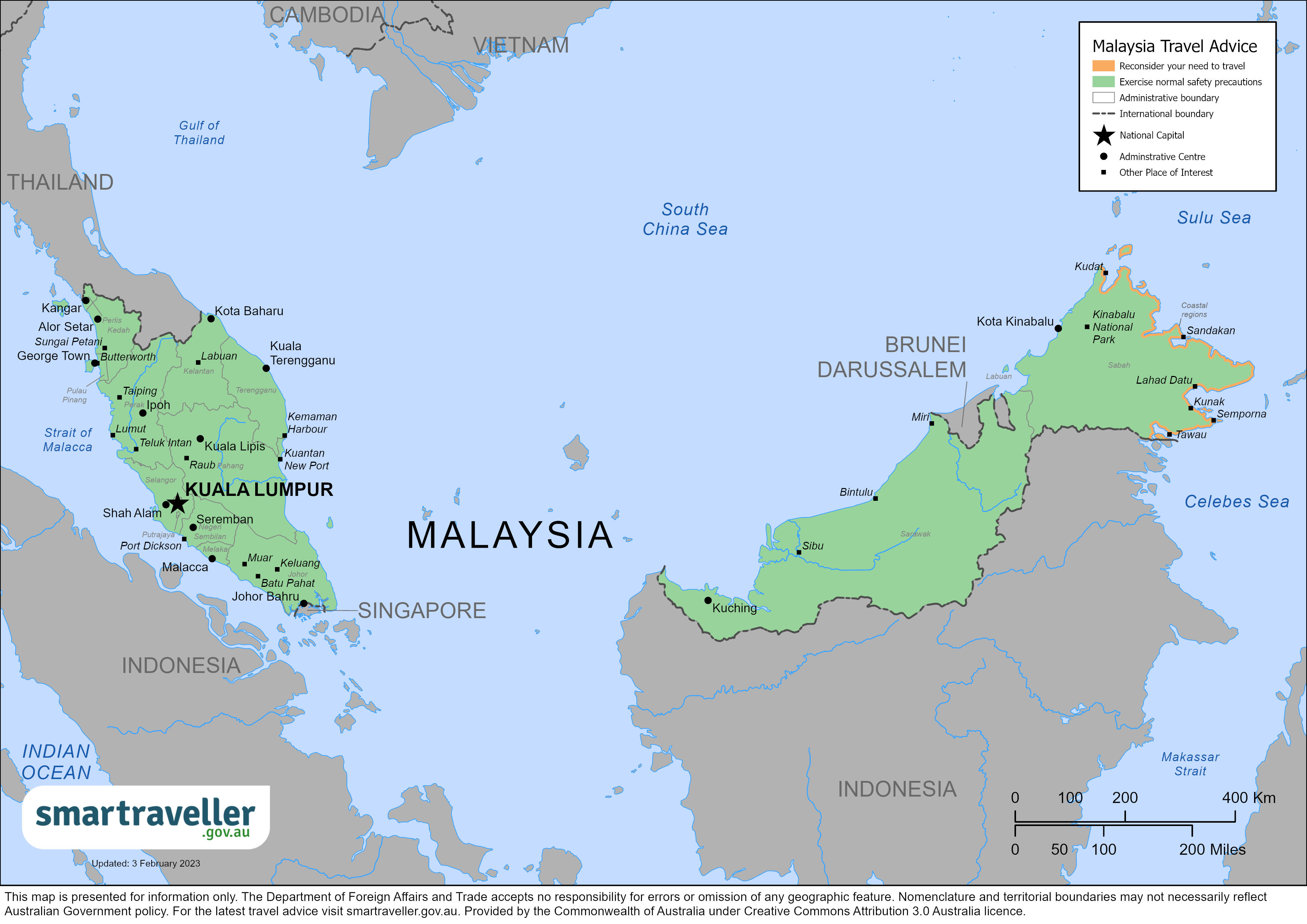
Malaysia (PDF 367.29 KB)
Asia (PDF 2.21 MB)
Local emergency contacts
Fire and rescue services, medical emergencies.
Call 999 or contact the Royal Malaysia Police Operations Centre on 321 159 999 or 322 662 222.
Advice levels
Reconsider your need to travel to the coastal region of eastern Sabah, including the islands, dive sites and associated tourist facilities.
Reconsider your need to travel to the coastal region of eastern Sabah, including the islands, dive sites and associated tourist facilities, due to the high threat of kidnapping. The risk of kidnapping increases on the water and waterfront after nightfall and is highest in the area between the towns of Sandakan and Tawau.
See Safety .
- There is a risk of terrorism in Malaysia. Terrorism is a global threat. Attacks could be random and small-scale. Possible targets could include tourist areas and a range of other locations frequented by foreigners (see Full Advice - Safety below), including in Kuala Lumpur. Take official warnings seriously. There was an armed attack on a police station in Johor Bahru on 17 May in which two police officers were killed.
- There's an ongoing high risk of kidnapping in the coastal areas of eastern Sabah. There have been a number of attempted and successful kidnappings. This includes islands, dive sites and tourist facilities. If, despite our advice, you travel to these areas, get professional security advice. Obey all local governments' curfews.
- Petty crime is common. Bag-snatching, including by thieves on motorbikes, happens often. When walking, hold your bag on the opposite side to the traffic. Safeguard your belongings, especially in shopping centres, at the airport and on trains. Credit card fraud is common. Always keep your credit card in sight when paying for purchases.
- Assault, sexual assault, robbery and drink spiking can occur, including in tourist areas of Kuala Lumpur and Penang. Don't leave your food or drinks unattended. Never accept food, drinks, cigarettes or gum from strangers. Stay with people you trust at parties, bars, nightclubs and taxis.
- Piracy in South-East Asian waters is an ongoing problem. Avoid travelling by boat in the southern Sulu Sea. If you intend to travel in the region by boat, check the International Maritime Bureau's piracy reports . Arrange personal security measures.
Full travel advice: Safety
- Strict rules control the importation of prescription and non-prescription medication. If you plan to bring medication, check if it's legal in Malaysia.
- Dengue fever is common, including in major urban areas. Zika virus is also a risk. Malaria is a risk in rural areas. Other insect-borne diseases include chikungunya, filariasis and Japanese encephalitis.
- Rabies is present in Malaysia. It's fatal without immediate treatment. Avoid dogs, monkeys and other mammals. Get medical help straight away if an animal bites or scratches you.
- Waterborne, foodborne, parasitic and other infectious diseases are common. These include hepatitis, tuberculosis, typhoid and cholera. Drink only boiled or bottled water. Avoid raw or undercooked food.
- Private hospitals in major cities are of an international standard. You'll need to pay up-front at all hospitals unless you have travel insurance, and your travel insurance policy covers your hospitalisation. Services are more limited in rural areas. Government hospitals require a deposit even if you have travel insurance.
- Cases of pertussis (whooping cough) have increased in Sabah. Ensure you're immunised against pertussis and practice good personal hygiene.
Full travel advice: Health
- If you're suspected of using drugs, you may be required to take a urine test on arrival in Malaysia. This includes if you're travelling from a country where possession and use of drugs such as cannabis is legal. Penalties for drug offences are severe.
- Don't use, carry or traffic illegal drugs. Punishments include the death penalty.
- It's unclear if surrogacy is legal under Malaysian civil law and what conditions apply. Get legal advice before arranging a surrogacy.
Malaysian law requires that you carry identification, such as your passport or a Malaysian Immigration Issued Card (IKAD), with you at all times. If you are asked by police and are unable to provide it, you may be detained until you can present valid identification.
- Malaysia is a multicultural but mostly Islamic country. Many areas have conservative standards of dress and behaviour, including at religious sites and government offices. Get advice on local customs.
- Malaysia enforces some aspects of sharia law. These laws apply to all Muslims, including visitors from Australia. Research laws that apply to you before you travel.
- Malaysia doesn't recognise dual nationality. Always travel on your Australian passport. If Malaysian authorities find out you're a dual citizen, you may need to renounce one of your citizenships immediately, or you may not be permitted to depart Malaysia.
Full travel advice: Local laws
You must complete a Malaysia Digital Arrival Card (MDAC) before arrival in Malaysia. The MDAC must be submitted through the Malaysian Immigration website . See the Malaysian Immigration website for further information, including exemption details.
- In most circumstances, you can get a 90-day tourism visa on arrival. Entry and exit conditions can change at short notice. Contact the nearest Malaysian High Commission, Embassy or Consulate for the latest details.
- Malaysia has an auto gate facility for visitors from several countries, including Australia. The option to use the manual counter for a visa is still available. To use the auto gate facilities, Australian travellers must have a passport valid for at least 6 months and must complete and submit their Malaysian Digital Arrival Card (MDAC) 3 days before arriving. The auto gate facility is unavailable for Australian passport holders with Malaysian permanent residency or a long-term pass. This auto gate facility is available at Kuala Lumpur International Airport Terminals 1 and 2. Further information can be found on the Malaysia Digital Arrival Card website.
- Monitor the websites of the Malaysian Department of Immigration, My Safe Travel , the Malaysian Ministry of Health , and social media for any changes to entry requirements. Before travel, confirm entry requirements with the Malaysian High Commission or Consulate-General in Australia .
Full travel advice: Travel
Local contacts
- The Consular Services Charter details what the Australian Government can and can't do to help you overseas.
- For consular help, contact the Australian High Commission in Kuala Lumpur .
- To stay up to date with local information, follow the High Commission's social media accounts.
Full travel advice: Local contacts
Full advice
Terrorist attacks could happen in Malaysia. Attacks could be random and may affect locations popular with foreigners or during major events or holidays that attract large crowds.
Malaysian authorities have arrested people for planning terror attacks. This includes attacks against entertainment venues in Kuala Lumpur.
There was an armed attack on a police station in Johor Bahru on 17 May in which two police officers were killed.
Other possible targets include:
- hotels, clubs, restaurants and cafes
- markets and shopping malls
- places of worship or religious holidays
- outdoor recreation events
- tourist areas
- government facilities
- public transport
To stay safe:
- be alert to possible threats, especially in public places
- be cautious around places known to be possible terrorist targets
- report any suspicious activity or items to police
- check the media for any new or emerging threats
- take official warnings seriously
- follow the advice of local authorities
If there's an attack, leave the area as soon as it's safe.
Terrorism is a threat worldwide.
More information:
Terrorist threats
Overland travel through Thailand
Read our travel advice for Thailand if you're planning to go there overland.
Avoid travelling to or through the far southern provinces of Thailand.
Kidnapping occurs across the world with political, ideological, and criminal motives. Foreigners, including Australians, have been kidnapped overseas whilst travelling. Kidnaps can happen anywhere, anytime, including in destinations that are typically at lower risk.
There's an ongoing high threat of kidnapping in the coastal areas of eastern Sabah, including islands, dive sites and other tourist facilities.
Extremists based in the southern Philippines are active in the area between the towns of Sandakan and Tawau in eastern Sabah.
Foreigners have been kidnapped from the nearby islands of Sipadan and Mataking and surrounding waters.
Some attempted and successful kidnappings have happened in coastal areas of eastern Sabah in recent years.
- In April 2024, two Malaysian Maritime Enforcement Agency personnel were injured in a shootout with a suspicious vessel while on patrol near Kunak.
- In May 2021, Malaysian authorities arrested eight suspected Abu Sayyaf militants who they suspect may have been planning kidnappings in Malaysia.
- In September 2019, 3 fishermen were abducted in the waters off Lahad Datu.
- In June 2019, 10 fishermen were abducted in waters between Lahad Datu, Sabah and Sitangkai, Southern Philippines.
- In December 2018, 3 fishermen were abducted from Pegasus Reef near Kinabatangan, Sabah.
- In November 2016, militants based in the southern Philippines attacked a yacht in waters between eastern Sabah and the Sulu archipelago. One German national was killed and another kidnapped and later killed. Further in 2016, some commercial seamen were kidnapped from cargo vessels in the area.
- In May 2015, gunmen entered a local seaside restaurant in Sandakan and abducted the manager and one customer.
Malaysian authorities increased security in the region in response to kidnapping incidents. The Sabah Government has restricted the use of waterways.
Security measures
There's a 6pm to 6am curfew on water travel in 6 coastal districts of eastern Sabah state. This includes offshore areas up to 3 nautical miles (5.5km) from the coast.
All vessels travelling in the waters off Lahad Datu and Sandakan in daylight hours must get a permit or permission from police.
Vessels must travel only on designated routes.
There's a ban on resort-organised water activities at night. This includes diving and fishing.
Authorities established the Eastern Sabah Security Zone (ESSZone), which includes the regions of:
- Kinabatangan
- Kota Marudu
There's an increased presence of security forces in the ESSZone.
Authorities may extend the water travel curfew each fortnight. If you travel by water during curfew hours without permission, authorities could fine you or jail you for up to 6 months.
If, despite our advice, you travel to an area with a high risk of kidnapping, our ability to provide consular assistance in these destinations will be limited.
To reduce the risk of kidnapping:
- always be alert to your personal security and surroundings
- get professional security advice for travel in locations with a heightened kidnap risk
- check your accommodation has appropriate security measures
- avoid isolated locations, particularly when travelling alone
- notify family or friends of planned travel and share your location
- avoid talking about your money or business affairs
- use ATMs in public places and during daylight hours
- avoid giving personal details to strangers online or over the phone
The Australian Government's longstanding policy is that it doesn't make payments or concessions to kidnappers. Ransom payments to kidnappers have funded further terrorist attacks and criminal activity. Paying a ransom to terrorist groups will likely break Australian counter-terrorism financing laws.
Civil unrest and political tension
You could encounter protests or demonstrations on the streets or at certain venues.
Protest activity could lead to violence and disrupt public services, including public transport, and cause traffic congestion. However, this is rare.
Police permission is needed for public gatherings and demonstrations. If you take part in a protest or demonstration, authorities could arrest and deport you.
Avoid protests and demonstrations.
During periods of unrest:
- check the news and other sources for information on planned and possible unrest or strikes
- plan your activities to avoid unrest on national or commemorative days
- be ready to change your travel plans
If civil unrest disrupts your transport plans, contact your airline, travel agent or insurer for help.
Demonstrations and civil unrest
Petty crime
Petty crime is common.
Opportunistic pickpocketing and snatch-and-grab robberies happen often where thieves snatch handbags, shoulder bags, jewellery, mobile phones and other valuables from pedestrians.
Hotspots include busy pedestrian crossings near major shopping malls, including within the KLCC area.
Motorcyclists, and sometimes thieves in other moving vehicles, pull bags from victims. This often causes injuries.
Smash-and-grab attacks against slow-moving and parked vehicles also happen.
To avoid petty crime:
- don't carry bags that are easy to snatch
- walk on footpaths when you can and stay away from the curb
- hold your bag on the opposite side to the traffic
- when driving or parking your car, keep valuables out of sight
- always keep vehicle windows up and doors locked, even when moving
Handbags, expensive watches, jewellery, mobile phones and cameras are tempting targets for thieves.
Many travellers have lost passports and other valuables to thieves on trains and at airports.
Carry only what you need and leave other valuables, in a secure location.
Thieves sometimes work in groups at busy shopping centres. One or more may approach you with stories of distress or warnings for your safety. When you're distracted, others steal your belongings.
Watch your personal belongings, especially:
- in crowded areas and during holiday periods
- when travelling on trains from the airport
- at airports
Be wary of approaches from strangers, especially in shopping centres.
Credit card fraud
Credit card fraud is common.
Credit cards are often copied for illegal use. This can happen anywhere, from small shops to large department stores and hotels.
Always keep your credit card in sight.
Online scams
Online scams have increased in recent years. Scammers often pretend to be people in need of financial help.
They prey on people looking for companions on online dating websites.
To protect yourself from being scammed:
- be wary of people asking for money
- don't send money or provide your bank details to anyone you don't know
- be careful when sharing personal information with people you haven't met in person
Scams involving gambling are also common.
Violent crime
You could experience violent crime in Malaysia. Australians have been victims of violent crime in Kuala Lumpur, Penang and other areas of the country. You should exercise vigilance and take sensible precautions. If you're a victim of crime, inform the local police and get a police report.
Incidents of assault, sexual assault, robbery and drink spiking, including in tourist areas of Kuala Lumpur and Penang have occured. Don't leave your food or drinks unattended. Never accept food, drinks, cigarettes or gum from strangers. Stay with people you trust at parties, bars, nightclubs and taxis.
To stay safe while using taxis:
- don't hail taxis on the street, especially after dark
- book taxis by phone at a shopping centre taxi desk
- check there's a licence with photo on the dashboard or seat back before getting into a taxi
- check the driver matches the photo.
If you're alone in a taxi, sit in the back seat. Keep your belongings with you in the taxi.
If your taxi stops to pick up other passengers, get out of the taxi when it's safe to do so. Taxi drivers aren't allowed to pick up extra passengers, but it sometimes happens.
E-hailing services are available. Use the same precautions as taxis.
Cyber security
You may be at risk of cyber-based threats during overseas travel to any country. Digital identity theft is a growing concern. Your devices and personal data can be compromised, especially if you’re connecting to Wi-Fi, using or connecting to shared or public computers, or to Bluetooth.
Social media can also be risky in destinations where there are social or political tensions, or laws that may seem unreasonable by Australian standards. Travellers have been arrested for things they have said on social media. Don't comment on local or political events on your social media.
More information:
- Cyber security when travelling overseas
Climate and natural disasters
Malaysia experiences severe weather and natural disasters , including:
- earthquakes
- severe rainstorms
If there's a natural disaster:
- secure your passport in a safe, waterproof location
- keep in contact with your friends and family
- monitor local media and weather reports
- check with tour operators before travelling to affected areas
Register with the Global Disaster Alert and Coordination System to receive alerts on major disasters.
Earthquakes and tsunamis
Earthquakes can happen in Malaysia.
In 2018, a 5.2 magnitude earthquake hit Sabah. No deaths or injuries were reported. The earthquake's tremors were felt and climbing activities were suspended.
Coastal regions of the world can experience tsunamis. Malaysia and its neighbours are vulnerable to earthquakes, which make destructive tsunamis more likely.
US Tsunami Warning Centre
Severe weather
Flooding and landslides are common during the wet season which is usually from October to February.
Severe rainstorms can result in deaths and extensively damaged infrastructure.
Essential services can be interrupted.
Tours and adventure activities
The safety standards you might expect of transport and tour operators aren't always met. This includes for adventure activities, such as diving.
Operators may not provide enough safety equipment. They also may not pay attention to maintenance standards and safety precautions.
If you plan to do a tour or adventure activity:
- check your travel insurance covers you for it
- ask and insist on minimum safety requirements
- use available safety equipment, such as life jackets or seatbelts
If appropriate safety equipment isn't available, use another provider.
Piracy in South-East Asian waters is an ongoing problem, especially in the:
- Strait of Malacca
- waters between Sabah and the southern Philippines
The International Maritime Bureau (IMB) issues weekly piracy reports.
Avoid travelling by boat in the southern Sulu Sea. This includes waters between Sabah, Malaysia and Palawan in the Philippines.
If you decide to travel by boat in these regions:
- check IMB piracy reports
- get local advice
- arrange security measures
Travelling by boat
- Going on a cruise
Travel Insurance
Get comprehensive travel insurance before you leave.
Your policy needs to cover all overseas medical costs, including medical evacuation. The Australian Government won't pay for these costs.
You'll probably need a specialised insurance policy that covers travel to high-risk destinations if, despite our advice, you're travelling to the coastal region of eastern Sabah.
If you can't afford travel insurance, you can't afford to travel. This applies to everyone, no matter how healthy and fit you are.
If you're not insured, you may have to pay many thousands of dollars up-front for medical care.
- what activities and care your policy covers
- that your insurance covers you for the whole time you'll be away
Physical and mental health
Consider your physical and mental health before you travel, especially if you have an existing medical condition.
See your doctor or travel clinic to:
- have a basic health check-up
- ask if your travel plans may affect your health
- plan any vaccinations you need
Do this at least 8 weeks before you leave.
If you have immediate concerns for your welfare or the welfare of another Australian, call the 24-hour Consular Emergency Centre on +61 2 6261 3305 or contact your nearest Australian Embassy, High Commission or Consulate to discuss counselling hotlines and services available in your location.
- General health advice
- Healthy holiday tips (Healthdirect Australia)
Medications
Not all medication available over the counter or by prescription in Australia is available in other countries. Some may even be considered illegal or a controlled substance, even if prescribed by an Australian doctor.
If you plan to bring medication, check if it's legal in Malaysia. Take enough legal medicine for your trip.
Strict rules control the importation of prescription and non-prescription medication. Contact the high commission or embassy of Malaysia to check what documentation local authorities may need you to have. Further information can be found on the Pharmaceuticals Services website.
Carry a copy of your prescription or a letter from your doctor stating:
- what the medication is
- your required dosage
- that it's for personal use
More information:
Health risks
Smoke haze often happens from June to October, but it can happen at any time.
Check the haze situation and any health warnings the Malaysian Government issues.
When haze levels are high, authorities recommend limiting outdoor activity. Get your own medical advice.
- World Air Quality
Insect-borne diseases
Dengue is common, including in major urban areas. Sometimes serious outbreaks happen.
There's no vaccination or treatment available for dengue fever.
Zika virus is a risk. There's no vaccination for it.
If you're pregnant, the Australian Department of Health recommends you:
- discuss any travel plans with your doctor
- consider deferring non-essential travel to affected areas
The Zika virus bulletin includes advice on how to minimise Zika virus risks.
Malaria is a risk in rural areas. It's less common in urban and coastal areas. Consider taking medicine to prevent malaria.
Outbreaks of other insect-borne diseases can happen. This includes chikungunya and filariasis .
Reported cases of Japanese encephalitis have increased in recent years. Get vaccinated against Japanese encephalitis before you travel
The risk of contracting insect-borne diseases increases during the wet season.
To protect yourself from disease:
- ensure your accommodation is insect-proof
- always use insect repellent
- wear long, loose, light-coloured clothing
Ministry of Health Malaysia
Rabies is a potentially fatal viral disease. It's found in dogs, monkeys, bats and other mammals.
The most recent cases were reported in Sarawak. It was transmitted through feral dog and cat bites.
Rabies can also be contracted when a rabid animal's saliva gets directly into your eyes, nose, mouth or broken skin.
Avoid direct contact with dogs and other mammals.
If a dog, monkey or other mammal bites or scratches you, use soap and water straight away to wash the wound thoroughly.
Get urgent medical attention.
Other health risks
Waterborne, foodborne, parasitic and other infectious diseases are common.
These include:
- tuberculosis
- hand, foot and mouth disease (HFMD)
Serious outbreaks sometimes occur.
- drink boiled water or bottled water with sealed lids
- avoid ice cubes
- avoid uncooked and undercooked food, such as salads
- wash your hands often and thoroughly
Get medical attention if you suspect food poisoning, or if you have a fever or diarrhoea.
Cases of pertussis (whooping cough) have increased in Sabah since the beginning of 2023. If you're planning to travel to Sabah:
- ensure you're immunised against pertussis
- practice good personal hygiene including frequent hand washing, not sharing drinks or lip balm
- keep your distance from people who appear sick
- seek medical attention if you develop symptoms
Infectious diseases
Marine stings
Stings from jellyfish and other marine animals can be fatal.
Ask local authorities, your tour operator or hotel about:
- swimming conditions
- precautions to take
- other dangers
Black henna tattoos
Avoid temporary black henna tattoos as they often contain a dye that can cause serious skin reactions.
Medical care
Medical facilities.
You can find private hospitals with international-standard facilities in major cities.
Public hospitals in major cities have a good range of medical services. However, access can be slow. Services are more limited in rural areas.
Most private hospitals need a cash deposit or a confirmation of insurance before they will admit you. They also expect immediate payment for services.
You need to pay up-front for treatment at government hospitals.
There are decompression chambers in:
Medical tourism
Medical tourism , including for cosmetic surgery, is common.
Standards at discount and uncertified medical facilities can be poor.
Serious and possibly life-threatening complications can result.
Before travelling for medical tourism:
- research and choose medical service providers carefully
- don't use discount or uncertified medical service providers
- check your travel insurance covers you if things go wrong with your surgery, as most don't
You're subject to all local laws and penalties, including those that may appear harsh by Australian standards. Research local laws before travelling.
If you're arrested or jailed, the Australian Government will do what it can to help you under our Consular Services Charter . But we can't get you out of trouble or out of jail.
If you're suspected of using drugs before you visit Malaysia, you may be required to take a urine test on arrival. This includes if you're travelling from a country where possession and use of drugs such as cannabis is legal.
Penalties for drug offences are severe, including drug possession and the presence of drugs in your bloodstream. Malaysia still carries the death penalty for drug trafficking.
Carrying or using drugs
Surrogacy laws
Malaysian civil law applies to everyone in Malaysia. Under this law, it's unclear if surrogacy is legal and what conditions apply.
Under sharia law, surrogacy is illegal. However, sharia law only applies to Muslims.
Surrogacy isn't practised openly in Malaysia. If you want to pursue surrogacy, it's mostly a private arrangement between you and the surrogate.
Get independent legal advice before entering into a surrogacy arrangement.
- Going overseas for international surrogacy
- Going overseas to adopt
Malaysia enforces some aspects of sharia law. These laws apply to all Muslims, including those from Australia.
Research laws that apply to you before you travel.
Serious crime
Crimes that may attract corporal punishment include:
- certain drug offences
- commercial crime
LGBTQIA+ law
Same-sex sexual relations are illegal.
Punishment can include whipping and up to 20 years in prison for same-sex acts involving either men or women.
LGBTQIA+ travellers
Drink driving
Driving under the influence of drugs or alcohol is a serious offence, which can result in fines and/or a jail sentence. Authorities strictly enforce these laws.
Australian laws
Some Australian criminal laws still apply when you're overseas. If you break these laws, you may face prosecution in Australia.
Staying within the law and respecting customs
Local customs
Malaysia is a multicultural but mostly Islamic country.
Standards of dress and behaviour are conservative in many areas. This includes at religious sites and government offices.
Always respect local traditions, customs, laws and religions.
Learn about customs at your destination. If in doubt, get advice from locals. Take care not to offend cultural or religious beliefs.
The Islamic holy month of Ramadan is observed in Malaysia. Respect religious and cultural customs and laws at this time.
During Ramadan, eating, drinking and smoking may be illegal in public during the day. If you're not fasting, avoid these activities around people who are. Seek local advice to avoid offence.
Explore our Ramadan page to learn more, including dates for Ramadan.
Dual citizenship
Malaysia doesn't recognise dual nationality.
If you're a dual citizen, this limits the consular services we can give if you're arrested or detained.
Always travel on your Australian passport .
If Malaysian authorities find out you hold both Australian and Malaysian citizenship, you may need to renounce either your Australian or Malaysian citizenship straight away, or you may not be permitted to depart Malaysia.
Dual nationals
Visas and border measures
Every country or territory decides who can enter or leave through its borders. For specific information about the evidence you'll need to enter a foreign destination, check with the nearest embassy, consulate or immigration department of the destination you're entering.
In most circumstances, Australian passport holders can get a 90-day tourism visa on arrival.
Arrange a visa before you travel if you're visiting for:
- volunteer work
Entry and exit conditions can change at short notice. Contact the nearest high commission, embassy or consulate of Malaysia for details about visas, currency, customs and quarantine rules.
If you breach your visa conditions or overstay your visa, authorities may fine, detain or deport you.
Always check the correct dates are on the visa stamp placed in your passport.
Follow immigration rules, including your visa conditions.
Border measures
Malaysia has an auto gate facility for visitors from several countries, including Australia. The option to use the manual counter for a visa is still available. To use the auto gate facilities, Australian visitors must have a passport valid for at least 6 months and must complete and submit their Malaysian Digital Arrival Card (MDAC) 3 days before arriving.
The auto gate facility is unavailable for Australian passport holders with Malaysian permanent residency or a long-term pass. This auto gate facility is available at Kuala Lumpur International Airport Terminals 1 and 2. Further information can be found on the Malaysia Digital Arrival Card website.
Entry requirements may change at short notice. Monitor the websites of the Malaysian Department of Immigration , My Safe Travel , the Malaysian Ministry of Health , and social media for any changes. Before travel, confirm entry requirements with the Malaysian High Commission or Consulate-General in Australia .
Staying in Malaysia
You should ensure you keep your visa up to date.
Other formalities
Foreigners need to provide biometric identification (fingerprints and/or face) on arrival.
Children aged younger than 12 years and visitors with finger disabilities don't have to do this.
Some countries including Malaysia won't let you enter unless your passport is valid for more than 6 months after you plan to leave that country. This can apply even if you're just transiting or stopping over.
Some foreign governments and airlines apply the rule inconsistently. Travellers can receive conflicting advice from different sources.
You can end up stranded if your passport is not valid for more than 6 months.
The Australian Government does not set these rules. Check your passport's expiry date before you travel. If you're not sure it'll be valid for long enough, consider getting a new passport .
Lost or stolen passport
Your passport is a valuable document. It's attractive to people who may try to use your identity to commit crimes.
Some people may try to trick you into giving them your passport. Always keep it in a safe place.
If your passport is lost or stolen, tell the Australian Government as soon as possible:
- In Australia, contact the Australian Passport Information Service .
- If you're overseas, contact the nearest Australian embassy or consulate .
Passport with ‘X’ gender identifier
Although Australian passports comply with international standards for sex and gender, we can’t guarantee that a passport showing 'X' in the sex field will be accepted for entry or transit by another country. Contact the nearest embassy, high commission or consulate of your destination before you arrive at the border to confirm if authorities will accept passports with 'X' gender markers.
More information:
- LGBTQIA+ travellers
The official currency is the Malaysian Ringgit (MYR).
When you depart, declare any MYR over MYR30,000, $US10,000 or equivalent. This covers all forms of currency, not only cash.
You can take larger amounts out of the country if you declare it when you arrive.
ATMs are widely available.
Local travel
If you travel between Peninsular Malaysia and East Malaysia, you need your passport. East Malaysia includes Sabah and Sarawak.
Check if your travel insurance policy covers you for any related damage and injuries if you plan to hire:
- a motorcycle
- any other vehicle
Driving permit
To drive in Malaysia, you need both:
- a valid Australian driver's licence
- an International Driving Permit (IDP)
Get your IDP before you leave Australia.
If you don't have both, you need to apply for a Malaysian licence.
Driving or riding
Road travel
Motorcyclists are a common traffic hazard. They often:
- weave through traffic
- drive through red lights and pedestrian crossings
- travel on the wrong side of the road
Motorcyclists have been increasingly confronting drivers who shout, gesture or toot their horn at them. They sometimes assault drivers.
You're more likely to die in a car accident in Malaysia than in Australia.
To stay safe, drive carefully and avoid road rage.
On a motorcycle, always wear a helmet.
Some taxi drivers, especially in tourist spots or when roads are jammed, don't use their meter. This is illegal.
Malaysia's taxi regulator has an English-language hotline for reporting problems. To make a report, call 1 800 88 7723 and provide the:
- vehicle number
- taxi company name
- time, date and location of the incident
- name of the driver if known
Always ask if the driver will use the meter, or agree the fare, before you get in a taxi.
At the start of your trip, take note of the vehicle number, the taxi company name and the name of the driver.
Public transport
There have been fatal and other serious accidents involving long-distance tour buses. This often happens at night or in bad weather.
If you plan to travel by bus, choose a company with a good reputation and avoid overnight travel.
Transport and getting around safely
In recent years, several passenger boats have sunk due to overloading and poor maintenance.
Before booking tickets on a passenger ferry, speedboat or other vessel, check there is appropriate safety equipment available.
Don't travel on any vessel that looks overloaded or in poor condition.
When you board, confirm there are enough life jackets for all passengers. Know where they are.
In bad weather, wear a life jacket, even if others don't.
There is a curfew on travel by water from 6pm to 6am in the coastal districts of eastern Sabah. See ( Safety) .
Airline safety
DFAT doesn't provide information on the safety of individual commercial airlines or flight paths.
Check Malaysia's air safety profile with the Aviation Safety Network.
National parks
National parks are protected areas, and some are home to ethnic minority groups.
Be respectful of the law and customs in these areas. If in doubt, seek local advice.
Don't remove any wildlife or plants from the park.
Before entering a park, register your plans with park officials and let someone you trust know where you're going.
Emergencies
Depending on what you need, contact your:
- family and friends
- travel agent
- insurance provider
Call 999 or contact the Royal Malaysia Police Operations Centre on +60321 159 999 or Royal Malaysia Headquarters (Bukit Aman) +603 22662 222.
Always get a police report when you report a crime.
Your insurer should have a 24-hour emergency number.
Consular contacts
Read the Consular Services Charter for what the Australian Government can and can't do to help you overseas.
For consular assistance, contact the Australian High Commission in Kuala Lumpur.
Australian High Commission, Kuala Lumpur
6 Jalan Yap Kwan Seng 50450 Kuala Lumpur Malaysia Phone: (+60 3) 2146 5555/2146 5575 Fax: (+60 3) 2141 5773 Website: malaysia.highcommission.gov.au Email: [email protected] Facebook: Australia in Malaysia X: @AusHCMalaysia
Check the High Commission website for details about opening hours and any temporary closures.
You can get limited consular help, including lodging Australian passport applications, at the following Australian consulates headed by honorary consuls:
Australian Consulate, Penang
Level 3 Jalan Macalister 10400 Penang Malaysia Phone: (+60 4) 226 8955 Fax: (+60 4) 228 3366 Email: [email protected]

Australian Consulate, Kota Kinabalu
Lot 01-05, 11th Floor Jubili Tower (Menara Jubili) 53, Jalan Gaya 88000 Kota Kinabalu Sabah Malaysia Phone: (+60 88) 267 151 Fax: (+60 88) 266 509 Email: [email protected]
Australian Consulate, Sarawak
E39 Level 2 Taman Sri Sarawak Mall Jalan Tunku Abdul Rahman 93100 Kuching Sarawak Malaysia Phone: (+60 19) 898 9787 Email: [email protected]
24-hour Consular Emergency Centre
In a consular emergency, if you can't contact an embassy, call the 24-hour Consular Emergency Centre on:
- +61 2 6261 3305 from overseas
- 1300 555 135 in Australia

Travelling to Malaysia?
Sign up to get the latest travel advice updates..
Be the first to know official government advice when travelling.
Visa Traveler
Exploring the world one country at a time
Malaysia eVisa: Eligibility, Requirements and Application Process
Published: June 8, 2024
Malaysia eVisa is available to nationals that are not visa-exempt. It is fairly easy to apply, few documents are required and it is issued in 2 working days
Even though the application is online, eVisas are processed by the Malaysian overseas mission with jurisdiction over the country where you apply.
QUICK SUMMARY:
- Eligibility: 33 countries
- Validity: 6 months, single or multiple-entry
- Allowed stay: 30 days
- eVisa Fee: 20 MYR visa fee + 105 MYR processing charge + 0.8 to 1.7% service charge
- Processing time: 2 working days
- Extensions: Not allowed
If you haven’t already, I recommend reading the Malaysia Visa Guide for general information on available visa types for tourists, their eligibility and requirements.
Table of Contents
Understanding malaysia evisa.
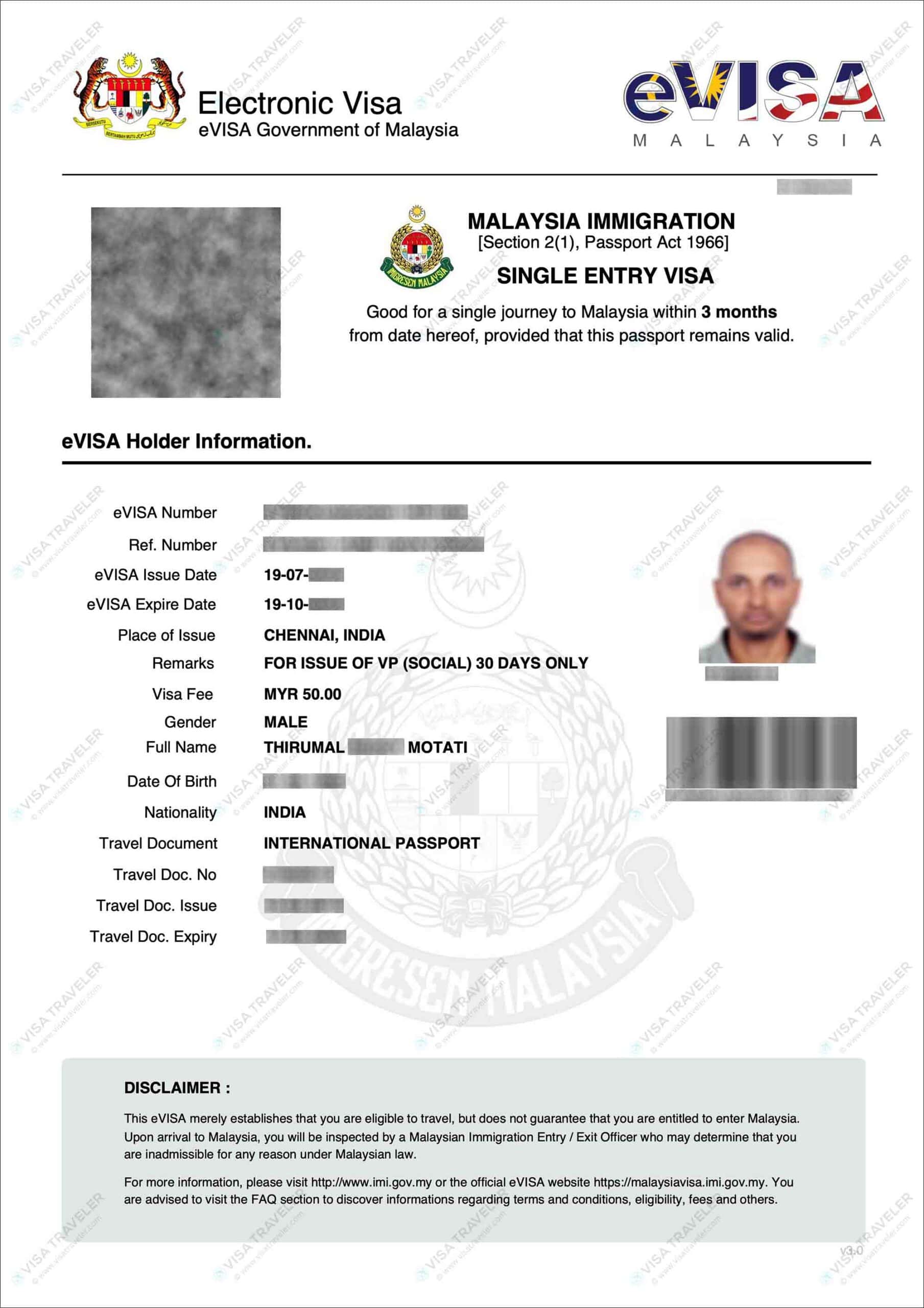
eVisa validity
The Malaysia eVisa is valid for 6 months from the day of issue. This applies to both Single Entry Visa (SEV) and Multiple Entry Visa (MEV).
Duration of stay
With Malaysia eVisa, you are allowed to stay a maximum of 30 days per entry.
Allowed number of entries
During the application process, you can choose whether you want to apply for a Single Entry Visa (SEV) or a Multiple Entry Visa (MEV). With the MEV, you can enter Malaysia as many times as you like within the validity of the eVisa.
Allowed ports of entry
With Malaysia eVisa, you are eligible to enter from any international airport, land border or seaport.
When to apply
You can apply for your Malaysia eVisa up to 1 month in advance. The official eVisa processing time is 2 working days, but in some cases, especially if additional documents are required, it can take up to a week. I highly recommend applying for your eVisa at least 2 weeks before your travel date.
Here is the summary of when to apply.
- Latest: 2 weeks
- Earliest: 1 month
eVisa extension
The validity of the Malaysia eVisa cannot be extended. Your stay inside Malaysia also cannot be extended past 30 days.
Malaysia eVisa Requirements
Evisa eligibility.
The following countries are eligible to apply for Malaysia eVisa:
- Afghanistan
- Burkina Faso (A)
- Burundi (A)
- Cameroon (A)
- Central African Republic
- Colombia (A)
- Congo Democratic Republic (A)
- Congo Republic
- Djibouti (A)
- Equatorial Guinea (A)
- Eritrea (A)
- Ethiopia (A)
- Guinea-Bissau (A)
- Ivory Coast (A)
- Liberia (A)
- Mozambique (A)
- Nigeria (A)
(A) The countries marked with (A) must arrive in Malaysia by air.
* IMPORTANT Nationals of India and China are temporarily visa-exempt to travel to Malaysia until 31 Dec 2024.
Application location restriction
The Malaysia eVisa portal has a built-in IP detection which will set your residence to whichever country you access it from. Therefore, the application expects you to have a passport from the country you are accessing it from or a residency in the country.
If you are applying from a country other than your country of passport, you will have to provide proof of residency in that country.
If you are currently in Israel or North Korea, you cannot apply for Malaysia eVisa. In that case, you must apply for a Malaysian visa from your nearest Malaysian high commission.
Also, you cannot apply for a Malaysia eVisa when you are physically present in Malaysia. If you are already in Malaysia on an eVisa or any other type of visa, you must first exit Malaysia. Then you can apply for a fresh eVisa from your country of passport or legal residence.
Documents required
You will need the following documents.
- Copy of passport biodata page and last page
- Digital passport-size photo
- Last visited country entry-exit stamps
- Confirmed round-trip flight tickets
- Proof of paid hotel bookings
- Other supporting documents (ex: proof of residence, etc.)
- Birth certificate for minor applicants (if applicable)
Passport requirement
Your passport must be valid for at least 6 months from your expected date of entry into Malaysia.
You must also have at least 3 blank pages in your passport. This requirement is not followed officially. If you have one or at least half a page for entry and exit stamps, you will be fine.
Photo requirements
The digital photograph must meet the following specifications.
- Must be 35mm x 50mm in dimensions
- Must be less than 2MB in size
- Must have been taken within the last 6 months
- Must be on a pure white background, without any frames or borders
- Must be a professional passport photo taken in a studio (contrast too high or too low is not accepted)
- Cellphone photos, selfies and cropped photos are not accepted
- Photocopies or photoshopped photos or taken by online photo apps are not accepted
- Full face must be in the center without any headgear or glasses (prescription glasses are allowed as long as there is no glare or shadows on the glasses)
- Facial image MUST be from shoulder level to the top of the head
The eVisa application has a built-in photo recognition feature which will check if your photo meets the requirements. You will not be allowed to proceed further if the photo does not meet the requirements.
After you upload your picture, you will be given the option to edit it by zooming and centering your face. At this point, a warning message will pop up if your photo doesn’t meet the requirements. The message also states the reason why the photo doesn’t meet the requirements, so you can fix it and try again.
Flight ticket requirements
Even though the eVisa portal accepts onward tickets to your next destination after Malaysia, the Malaysian embassy/consulate responsible for processing your eVisa will later ask for complete round-trip flight tickets. That means, flight tickets originating and ending in your home country or country of residence are required.
For example, if your home country or country of residence is India and your trip is India-Singapore-Malaysia-Thailand-India, you must upload all flight tickets starting from India and ending in India. If you submit just the inbound and outbound tickets (ex: Singapore-Malaysia-Thailand), you will be later asked to upload your full itinerary.
The eVisa fee is 50 MYR for India, 30 MYR for China and 20 MYR for all other nationalities.
Apart from the eVisa fee, there is also a processing charge and service. So technically, there are 3 components to the eVisa fee:
- Visa fee: 50 MYR for India, 30 MYR for China and 20 MYR for all other nationalities
- Processing charge: 105 MYR
- Card payment (Visa/Mastercard): 0.8% of total transaction value
- eWallet payment (Alipay, WeChat Pay and Union Pay): 1.7% of total transaction value
In total, most nationalities will pay around 126 MYR for the eVisa.
Processing time
Malaysia eVisa processing time is 2 working days. However, due to the high amount of applications, processing times are often longer than 2 working days.
Malaysian Immigration advises that you apply for your eVisa at least 2 weeks before your departure to Malaysia.
IMPORTANT In certain cases, the Malaysian embassy/consulate responsible for processing your application may demand additional documentation or an in-person or video interview, which might further delay your processing.
eVisa Application Process
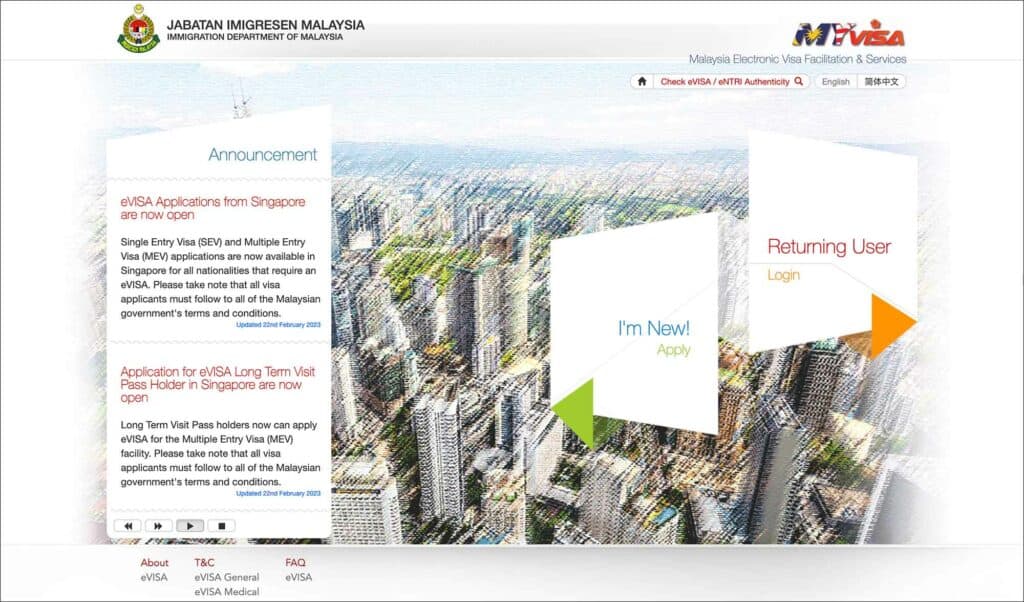
Word of caution on Malaysia eVisa fake websites
There are fake websites posing as “official websites”, which will charge three or four times the visa fee or outright scam you. There is ONLY ONE OFFICIAL Malaysia eVisa website. The URL is below.
OFFICIAL Malaysia eVISA website: https://malaysiavisa.imi.gov.my/evisa/evisa.jsp
How to apply for eVisa
Malaysia eVisa is a simple application. Takes about 30 minutes to fill out and submit. Follow the below steps to apply.
Step 1: Navigate to the official Malaysia eVisa website and click on “I’m New! Apply“
Step 2: Register a new account and verify your email address.
Step 3: Start a new application. Pick “Tourist: International/Diplomatic/Official Passport Holder”.
Step 4: Upload a passport scan, photo, flight tickets and accommodation booking, and any other supporting documents. Fill in the application form including your personal details, current address, intended address in Malaysia, and what visa you want – single or multiple entry.
Step 5: Edit the photo and preview the application.
Step 6: Pay your eVisa fee and submit
Follow this guide to apply for Malaysia eVisa . This guide will walk you through the application process with step-by-step instructions and screenshots.
How to track eVisa status
You can track your Malaysia eVisa application within your dashboard on the Malaysia eVisa portal. You will also be notified of any changes in status via email. Your application can have any of the following statuses.
- NEW APPLICATION: Your eVisa application hasn’t been submitted yet
- IN PROGRESS: Your eVisa application is in process
- APPROVED: Your eVisa application has been approved
- REJECTED: Your eVisa application has been refused
- REQUEST DOCUMENT/DATA AMENDMENT: You must correct the information or upload additional documents
- REQUEST INTERVIEW: You must attend an in-person interview
Request Document/Data Amendment
If your Malaysia eVisa application requires any additional information or documentation, the Malaysian embassy/consulate will notify you of the list of additional documents needed. You will be given 5 days to upload the requested documents.
Once you have uploaded all the requested documents, the processing time will be reset. It will take 2 working days from that point onward for the processing of your visa.
In certain instances, the Malaysian embassy/consulate may request additional documents multiple times until the embassy/consulate is satisfied with your documents.
Request Interview
If your eVisa application require additional proofs, the Malaysian embassy/consulate will simply set up a “request for interview” appointment on your behalf.
This can be annoying as you have no choice in selecting your date/time for the in-person interview. I have seen only a handful of cases that was requested to appear in person for an interview at the embassy or consulate.
NOTE There is no option to change the date/time of the appointment. If you cannot make it to the appointment, I suggest applying for the visa again on the eVisa portal.
How to download approved eVisa
After approval, the option to download the eVisa will be available on your dashboard on the Malaysia eVisa portal. You will also receive an email.
After the approval, you must print your eVisa on an A4 sheet. It can be in color or black and white.
IMPORTANT You must carry a print of your eVisa. Digital copies on your phone are not accepted. The immigration officer stamps the port and date of entry on your eVisa print. You may be asked to show this stamped eVisa print while leaving the country too.
Again, you must carry a print of your eVisa. Digital copies on your phone are not accepted.
Customer service
You can use the live chat support on the Malaysia eVisa portal to ask any questions or inquire about the status of your visa application. The chat agents are available 24×7.
Entry Procedure at the Border
Make sure to complete the Malaysia Digital Arrival Card (MDAC) online. You can fill it out up to 3 days before your arrival. You can also complete it at the airport after landing.
When you are at the immigration, present the following documents to the officer.
- Original passport with a validity of at least 6 months
- eVisa printout (digital copies are NOT accepted)
- Boarding pass of the flight you’ve arrived on
You may be asked for the additional documents, so keep them ready as well.
- Proof of onward flight ticket
- Proof of hotel booking
- Other supporting documents like a bank statement or current residing country visa or permit
You may also be asked to show the completed MDAC code on your phone.
Frequently Asked Questions
I have a short layover at the airport where i am clearing immigration. what should i put for “address in malaysia”.
Fill in the address of the said airport.
You are also required to write a cover letter explaining that you are having a short layover and not staying overnight in Malaysia and then upload the letter into your visa application.
Why can’t I select or change my nationality while applying for the eVISA?
The nationality is sourced from your account when you declared it. If you’ve made a mistake and want to change it, you must create a new account.
Is a bank account statement required for Malaysia eVisa?
No, you don’t need to submit a bank statement but uploading one will help strengthen your application.
WRITTEN BY THIRUMAL MOTATI

Thirumal Motati is an expert in tourist visa matters. He has been traveling the world on tourist visas for more than a decade. With his expertise, he has obtained several tourist visas, including the most strenuous ones such as the US, UK, Canada, and Schengen, some of which were granted multiple times. He has also set foot inside US consulates on numerous occasions. Mr. Motati has uncovered the secrets to successful visa applications. His guidance has enabled countless individuals to obtain their visas and fulfill their travel dreams. His statements have been mentioned in publications like Yahoo, BBC, The Hindu, and Travel Zoo.
PLAN YOUR TRAVEL WITH VISA TRAVELER
I highly recommend using these websites to plan your trip. I use these websites myself to apply for my visas, book my flights and hotels and purchase my travel insurance.
01. Apply for your visa
Get a verifiable flight itinerary for your visa application from DummyTicket247 . DummyTicket247 is a flight search engine to search and book flight itineraries for visas instantly. These flight itineraries are guaranteed to be valid for 2 weeks and work for all visa applications.
02. Book your fight
Find the cheapest flight tickets using Skyscanner . Skyscanner includes all budget airlines and you are guaranteed to find the cheapest flight to your destination.
03. Book your hotel
Book your hotel from Booking.com . Booking.com has pretty much every hotel, hostel and guesthouse from every destination.
04. Get your onward ticket
If traveling on a one-way ticket, use BestOnwardTicket to get proof of onward ticket for just $12, valid for 48 hours.
05. Purchase your insurance
Purchase travel medical insurance for your trip from SafetyWing . Insurance from SafetyWing covers COVID-19 and also comes with a visa letter which you can use for your visas.
Need more? Check out my travel resources page for the best websites to plan your trip.
LEGAL DISCLAIMER We are not affiliated with immigration, embassies or governments of any country. The content in this article is for educational and general informational purposes only, and shall not be understood or construed as, visa, immigration or legal advice. Your use of information provided in this article is solely at your own risk and you expressly agree not to rely upon any information contained in this article as a substitute for professional visa or immigration advice. Under no circumstance shall be held liable or responsible for any errors or omissions in this article or for any damage you may suffer in respect to any actions taken or not taken based on any or all of the information in this article. Please refer to our full disclaimer for further information.
AFFILIATE DISCLOSURE This post may contain affiliate links, which means we may receive a commission, at no extra cost to you, if you make a purchase through a link. Please refer to our full disclosure for further information.
MORE VISA GUIDES

UNITED KINGDOM

VIEW ALL VISA GUIDES
- Cookie Policy
- Copyright Notice
- Privacy Policy
- Terms of Use
- Flight Itinerary
- Hotel Reservation
- Travel Insurance
- Onward Ticket
- Testimonials
Search this site
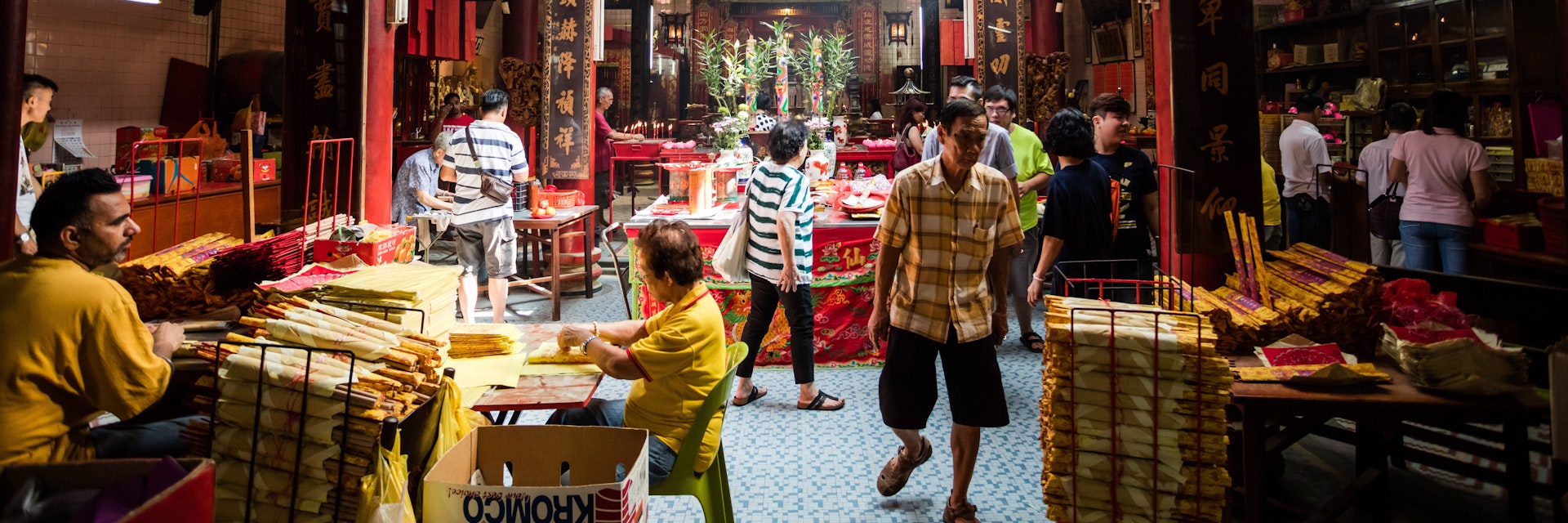
©J. Lekavicius/Shutterstock
Dynamic cities, fabulous food, beautiful beaches, idyllic islands and national parks with wildlife-packed rainforests – all of this can be found in Malaysia.
Best Time to Visit
Best places to visit, attractions, must-see attractions.
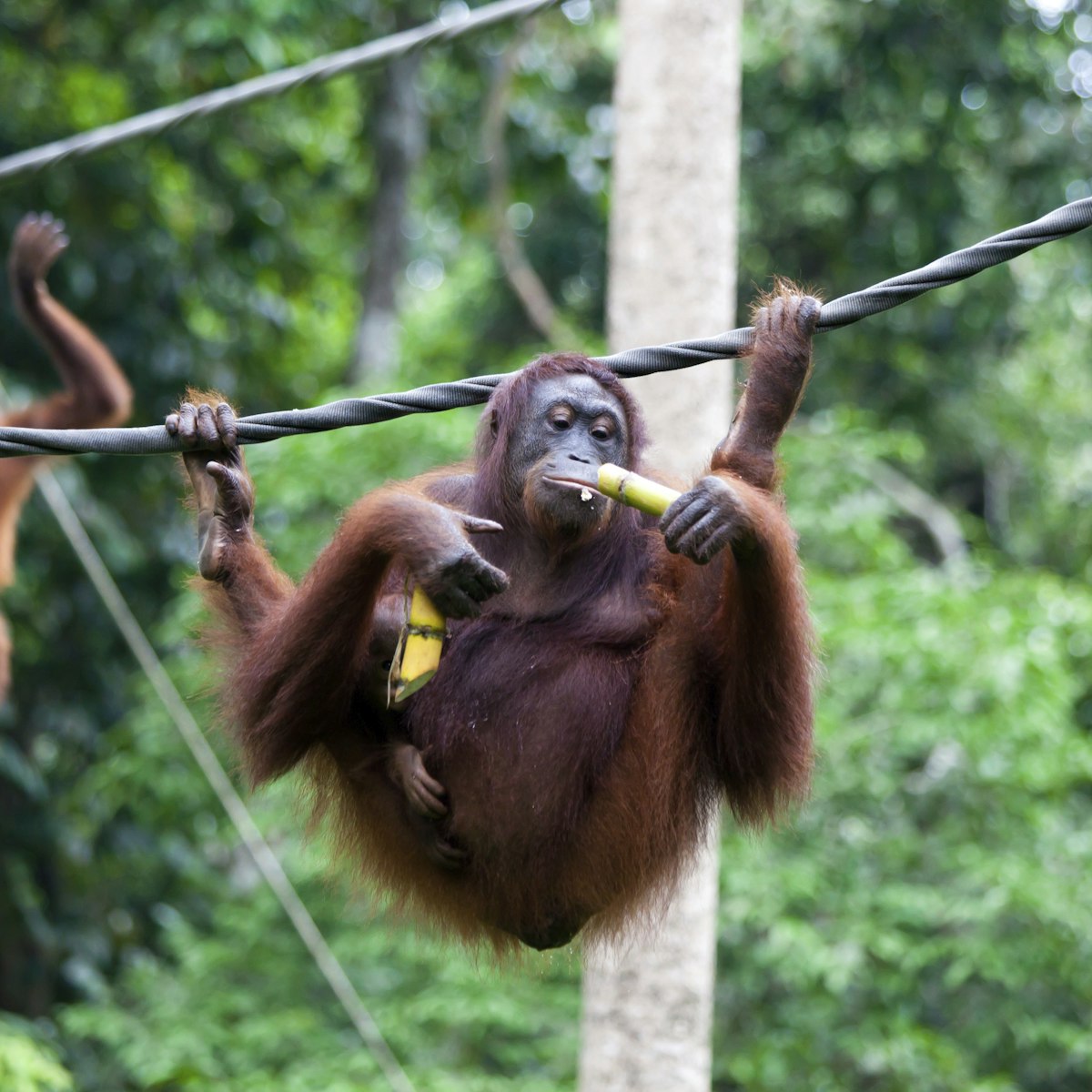
Sepilok Orangutan Rehabilitation Centre
Around 25km north of Sandakan, and covering 40 sq km of the Kabili-Sepilok Forest Reserve, this inspiring, world-famous centre welcomes orphaned and…
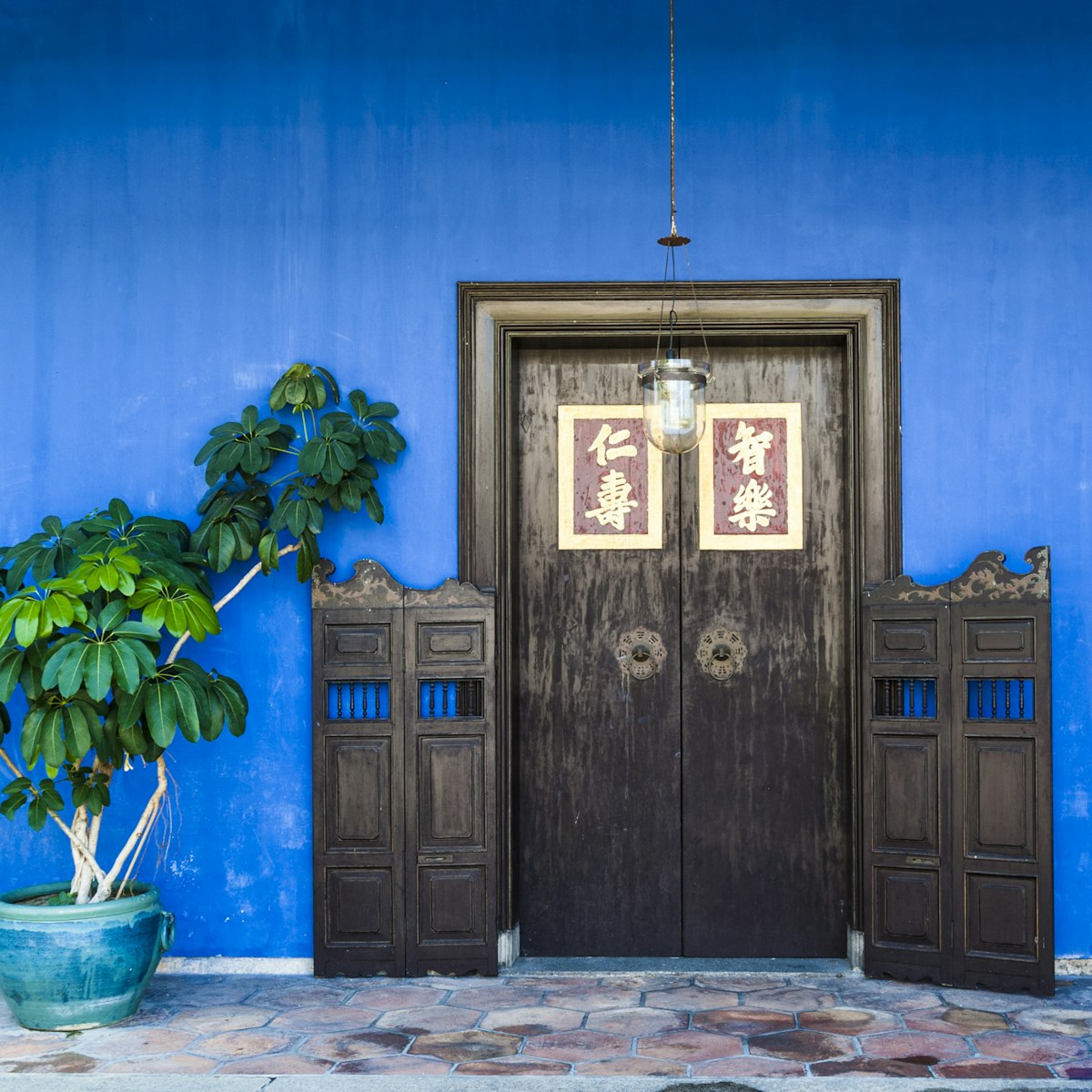
Blue Mansion
George Town
The most photographed building in George Town, this magnificent 38-room, 220-window mansion was built in the 1880s and rescued from ruin in the 1990s…
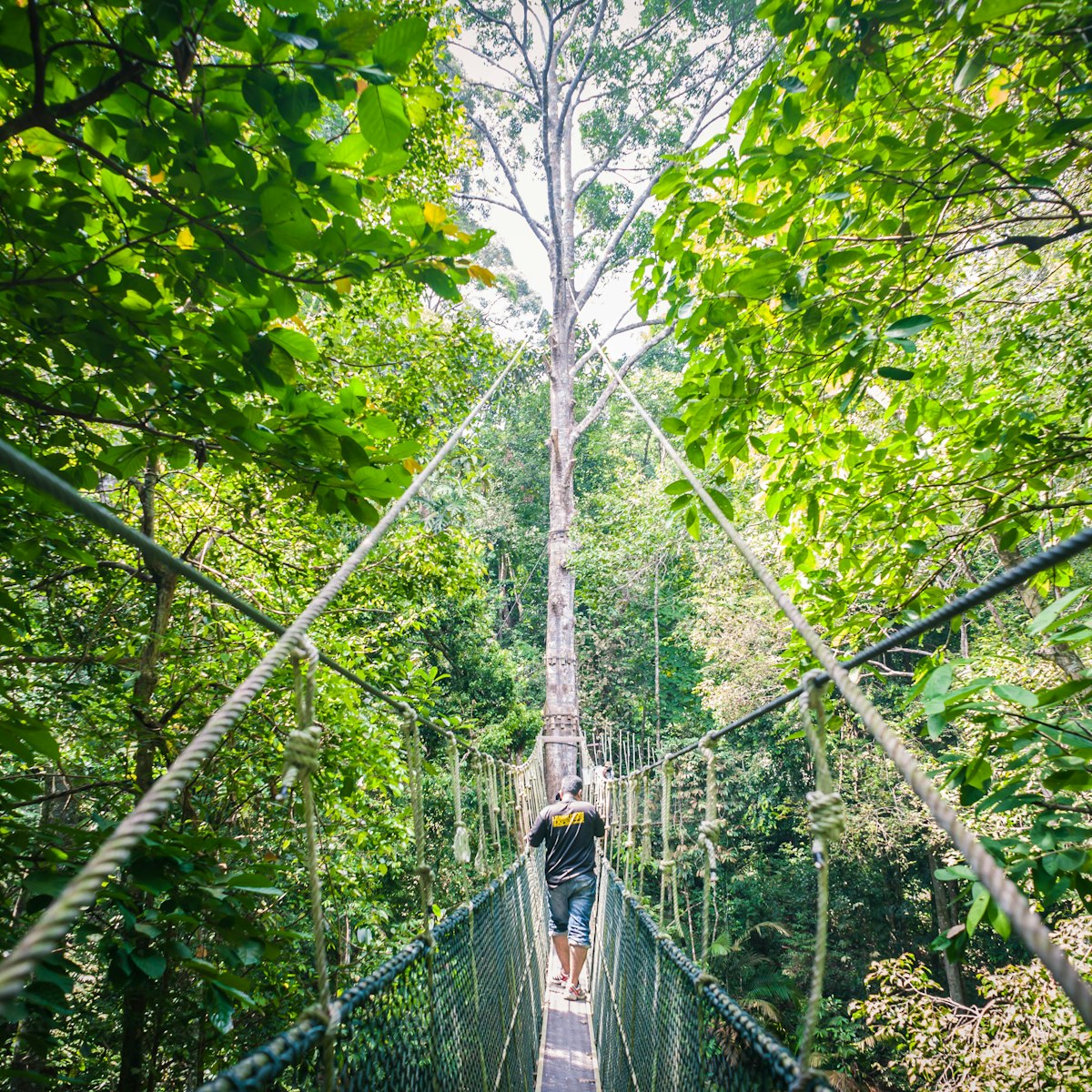
Penang National Park
At 23 sq km, this is Malaysia's smallest national park, but it's beach-fringed forests are home to silvered leaf monkeys, flying lemurs, leopard cats and…
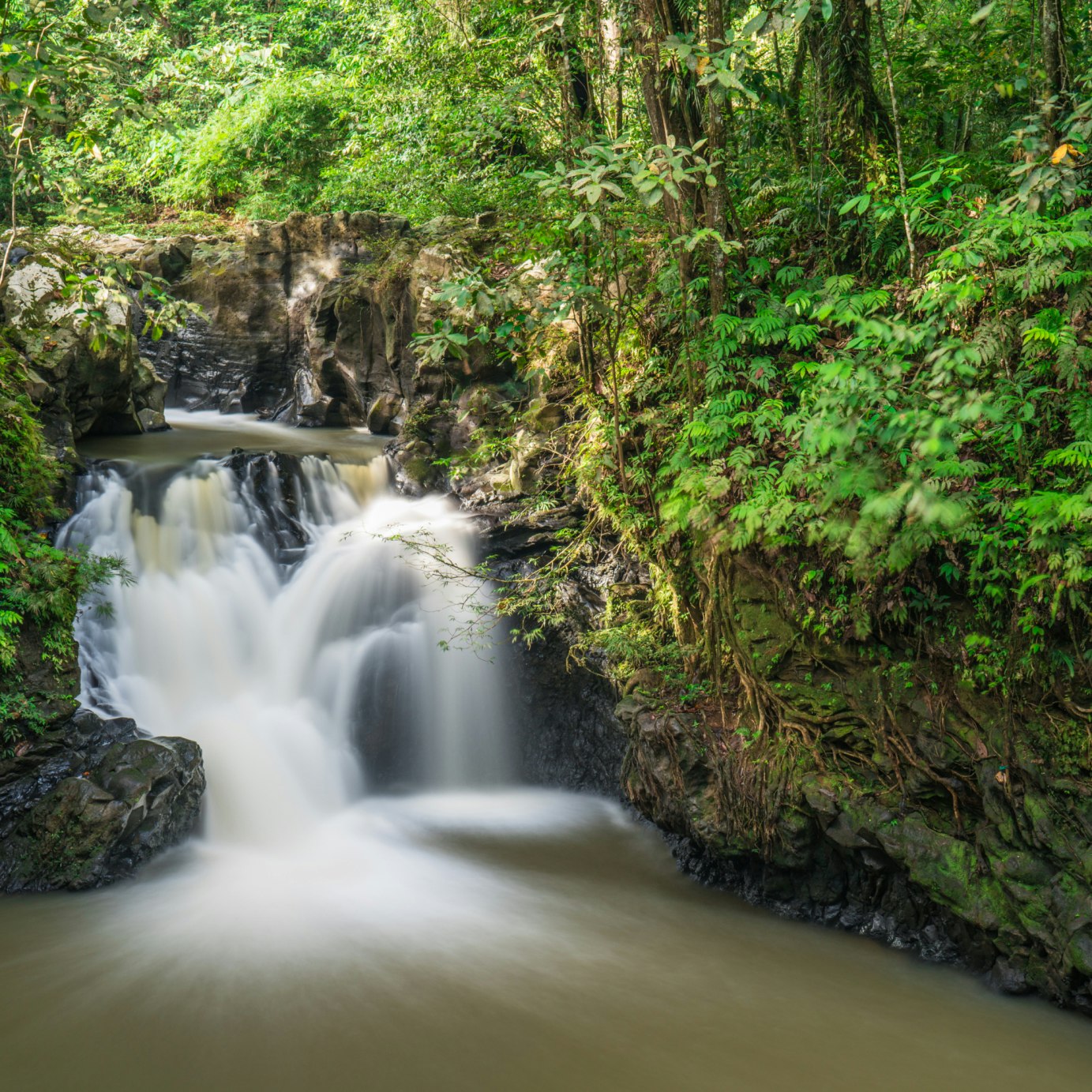
Tawau Hills Park
This small reserve has forested hills rising dramatically from the surrounding plain. If getting into the Maliau Basin or Danum Valley feels like too much…
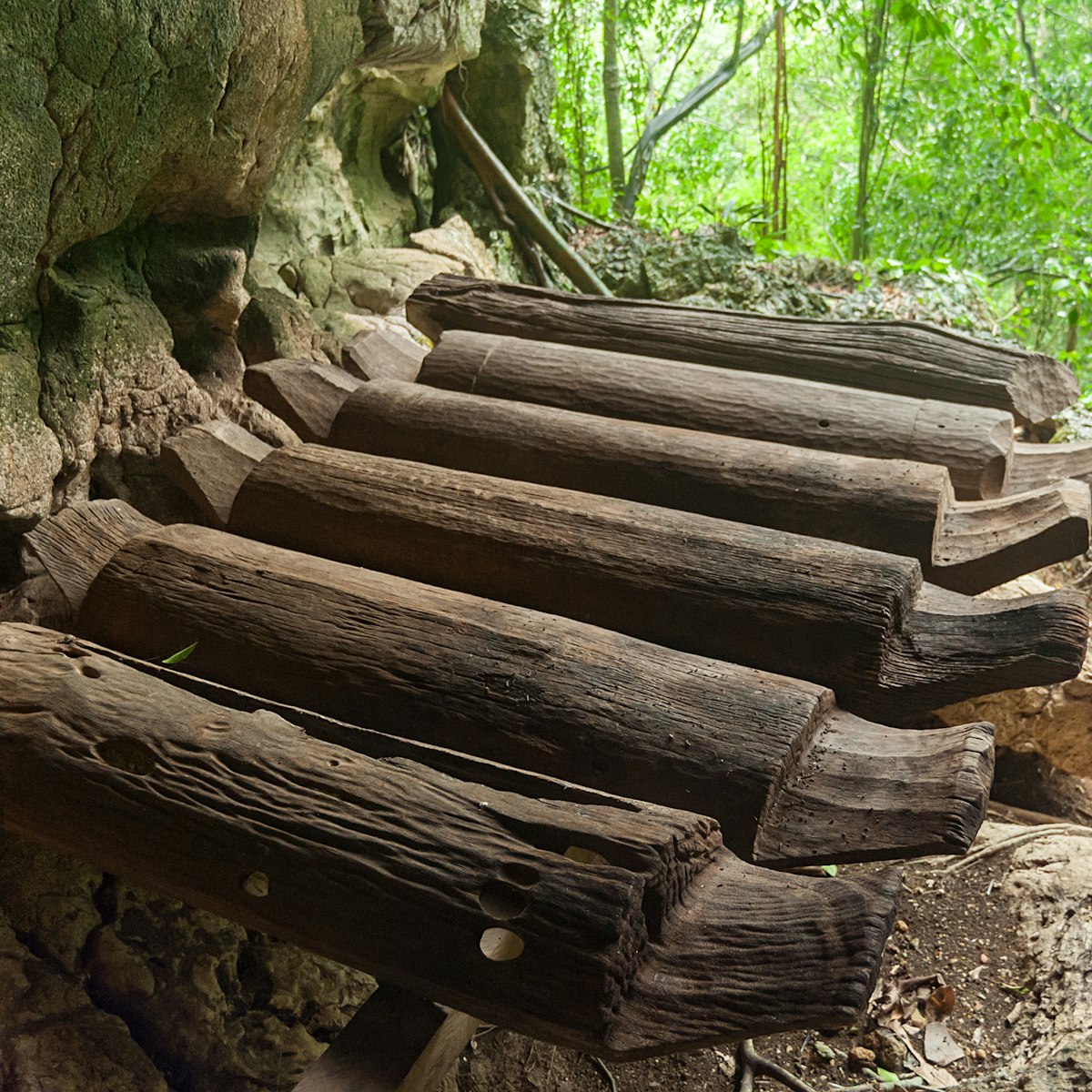
Agop Batu Tulug
This hill, 2km north of the Batuh Putih bridge, features three caves housing the ancestors of local Orang Sungai (People of the River). Because the…
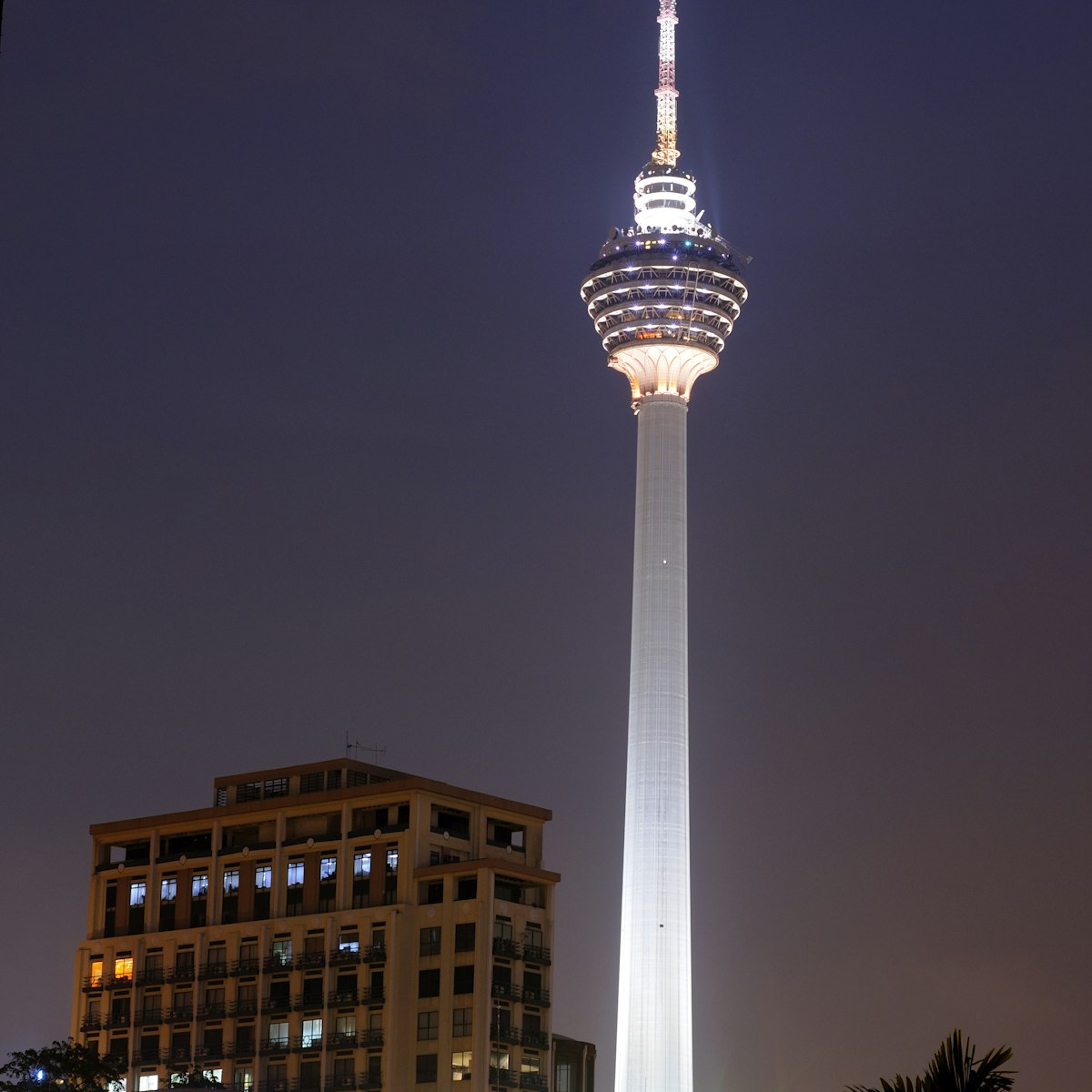
Chinatown, Merdeka Square & Bukit Nanas
Although the Petronas Towers are taller, the 421m Menara KL, rising from the crest of Bukit Nanas, offers the best city views. The bulb at the top…
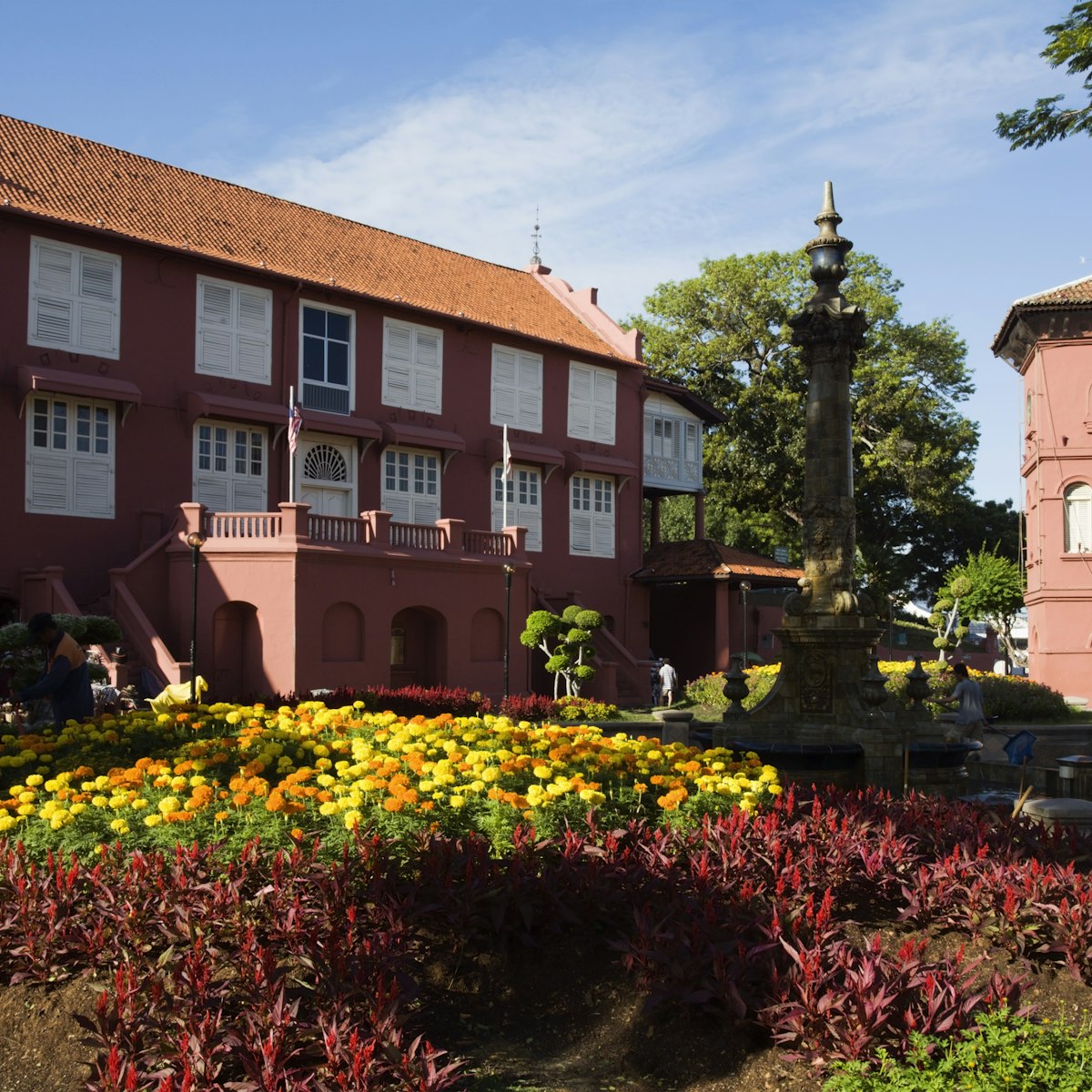
Melaka City
This former town hall and governor's residence dates to the 1650s and is believed to be the oldest Dutch building in the East. It functioned as State…
![travel requirements to malaysia [UNVERIFIED CONTENT] Masjid Jamek is the oldest mosque in Kuala Lumpur. It is located at the confluence of the Klang and Gombak river. It was built in 1907 and officially open by the then Sultan Selangor in 1909.](https://lp-cms-production.imgix.net/2019-06/477284513_master.jpg?auto=format&fit=crop&ar=1:1&q=75&w=1200)
Masjid Jamek Sultan Abdul Samad
This graceful, onion-domed mosque, designed by British architect AB Hubback, borrows Mogul and Moorish styles with its brick-and-plaster banded minarets…
Top picks from our travel experts
15 of the best things to do in malaysia.

Boh Sungei Palas Tea Estate
Cameron Highlands
If there's time for only one tea-themed experience in the highlands, make it this spectacularly situated plantation, with its own tea interpretation…

Boh Tea Garden
Velvety green views are glorious from this out-of-the-way tea plantation, though it's a long drive to get here (allow 40 minutes from Tanah Rata and use…

Panorama Langkawi
Pulau Langkawi
The highlight of this family-friendly amusement park is SkyCab, a cable car that whisks visitors to the top of Gunung Machinchang (713m). For an extra RM6…
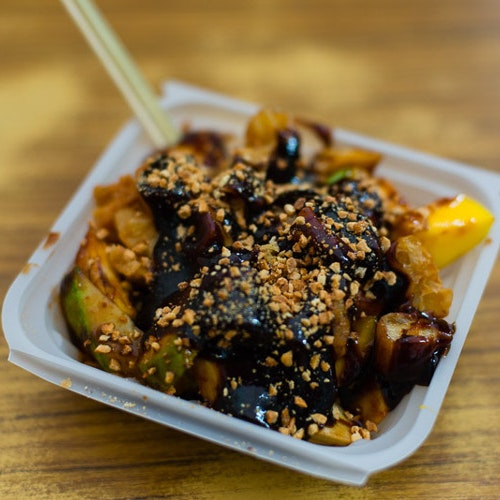
Lorong Baru Hawker Stalls
Ask locals where their favourite hawker stalls are and most will pick this night-time street extravaganza. It's a great spot for ikan bakar (grilled…

Ramayana Cave
No cave at Batu is more spectacularly embellished than Ramayana Cave, which boasts psychedelic dioramas of the Indian epic 'Ramayana'. Pass the green, 15m…

China House
You can't really say you've been out in George Town until you've stepped inside China House. This block-wide amalgamation of shophouses is packed with hip…

Bako National Park
Bako National Park is one of the best places in Sarawak to see rainforest animals in their native habitats. It's notable for its incredible biodiversity,…

Anjung Gurney Night Market
Penang's most famous hawker complex sits just past the Gurney Plaza mall, cooled by breezes wafting in off the sea. It buzzes with stalls serving Muslim…
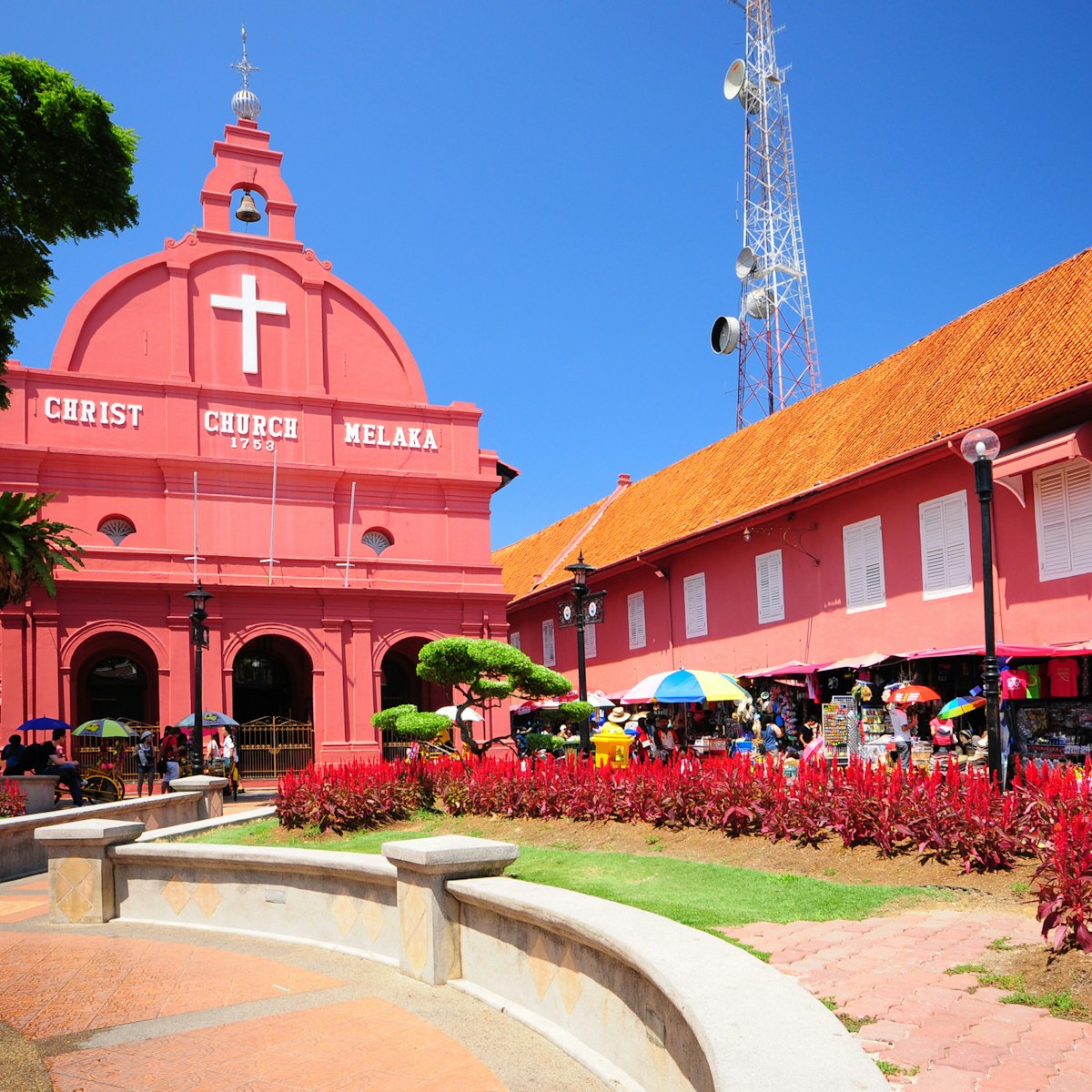
Christ Church
Built in 1753 from laterite bricks brought from Zeeland in Holland, this eye-catching cherry-pink church is one of the most photographed and imposing…

Deer Cave & Lang Cave
Gunung Mulu National Park
A 3km walk through the rainforest takes you to these adjacent caverns. Deer Cave – over 2km long and 174m high – is the world’s largest cave passage open…
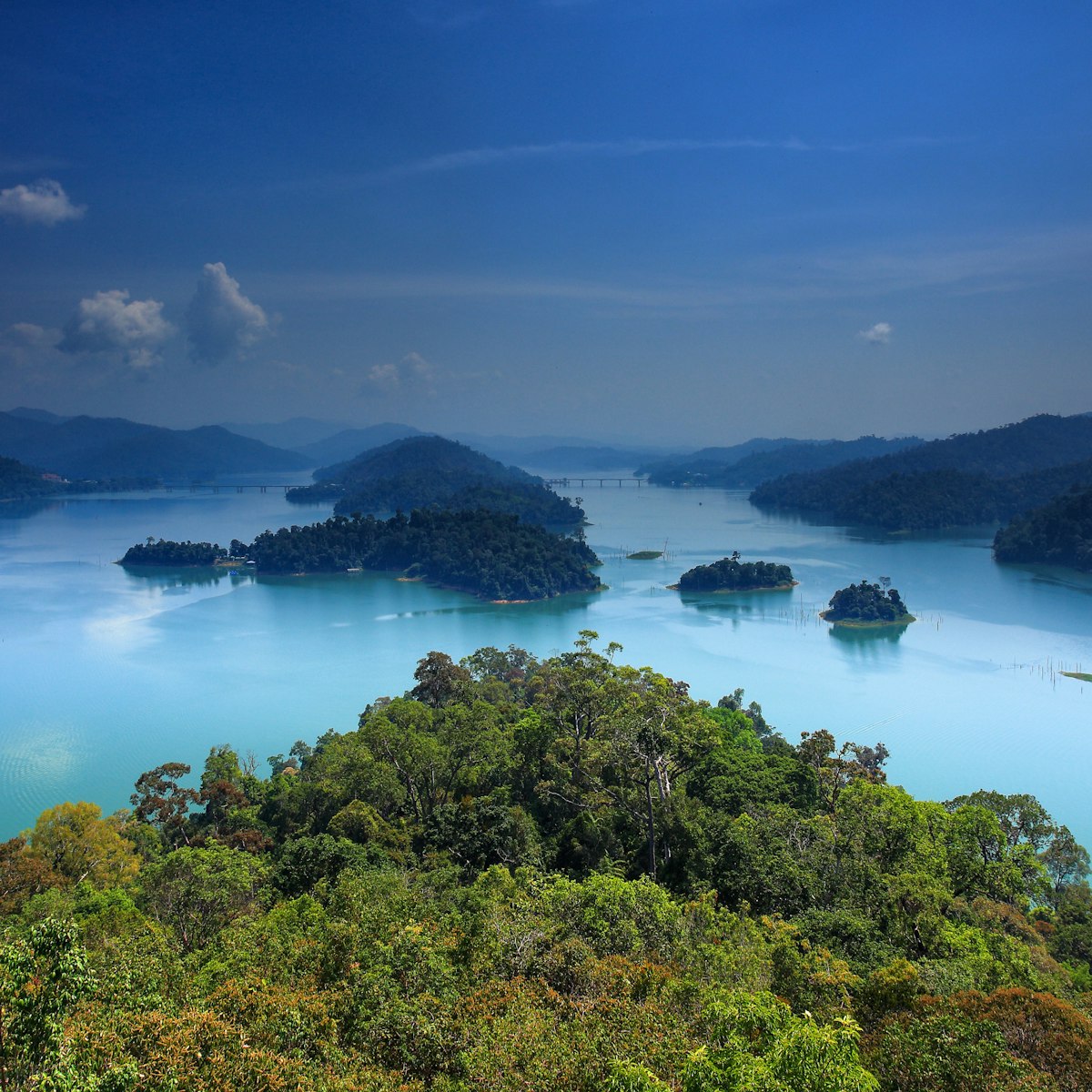
Royal Belum State Park
This 1175-sq-km park within Belum-Temenggor Rainforest was gazetted in 2007 to protect a rich menagerie of tigers, tapirs, panthers and the Sumatran rhino…

Sultanate Palace
This wooden replica of the palace of Sultan Mansur Shah, who ruled Melaka from 1456 to 1477, houses an open-air cultural museum and lovely gardens. The…

Borneo Sun Bear Conservation Centre
The wonderful BSBCC provides care to rescued sun bears (44 at the time of writing), the world's second-most endangered bear. It's possible to see the…

Kafe Heng Huat
Outside Kafe Heng Huat you'll find Soon Chuan Choo who, in her trademark red chef's hat, has been turning out some of Penang's best char kway teow (rice…

Cameron Valley Tea House 1
Views over the plantation are breathtaking from this easy roadside pullover on the road between Ringlet and Tanah Rata. There are no guided tours, but you…

Labuk Bay Proboscis Monkey Sanctuary
A local palm-plantation owner has created a private proboscis monkey sanctuary, attracting the floppy-conked locals with sugar-free pancakes at 9.30am and…

Dutch Square
The focal point of the Unesco Heritage zone, this attractive and elegant square is surrounded by Dutch-era buildings that have been painted crimson, shady…

Masjid Ubudiah
With bands of Italian marble and enormous gold domes, Masjid Ubudiah is a contender for the title of Malaysia's prettiest mosque. Commissioned by Perak’s…

Temple Cave
Centrepiece of the Batu Caves complex and one of Malaysia's most photographed sights, Temple Cave sits atop 272 colourful steps populated by scampering…

Hameediyah dates back to 1907 and is supposedly the oldest place serving nasi kandar (curries served over rice) in Penang, though the current restaurant…
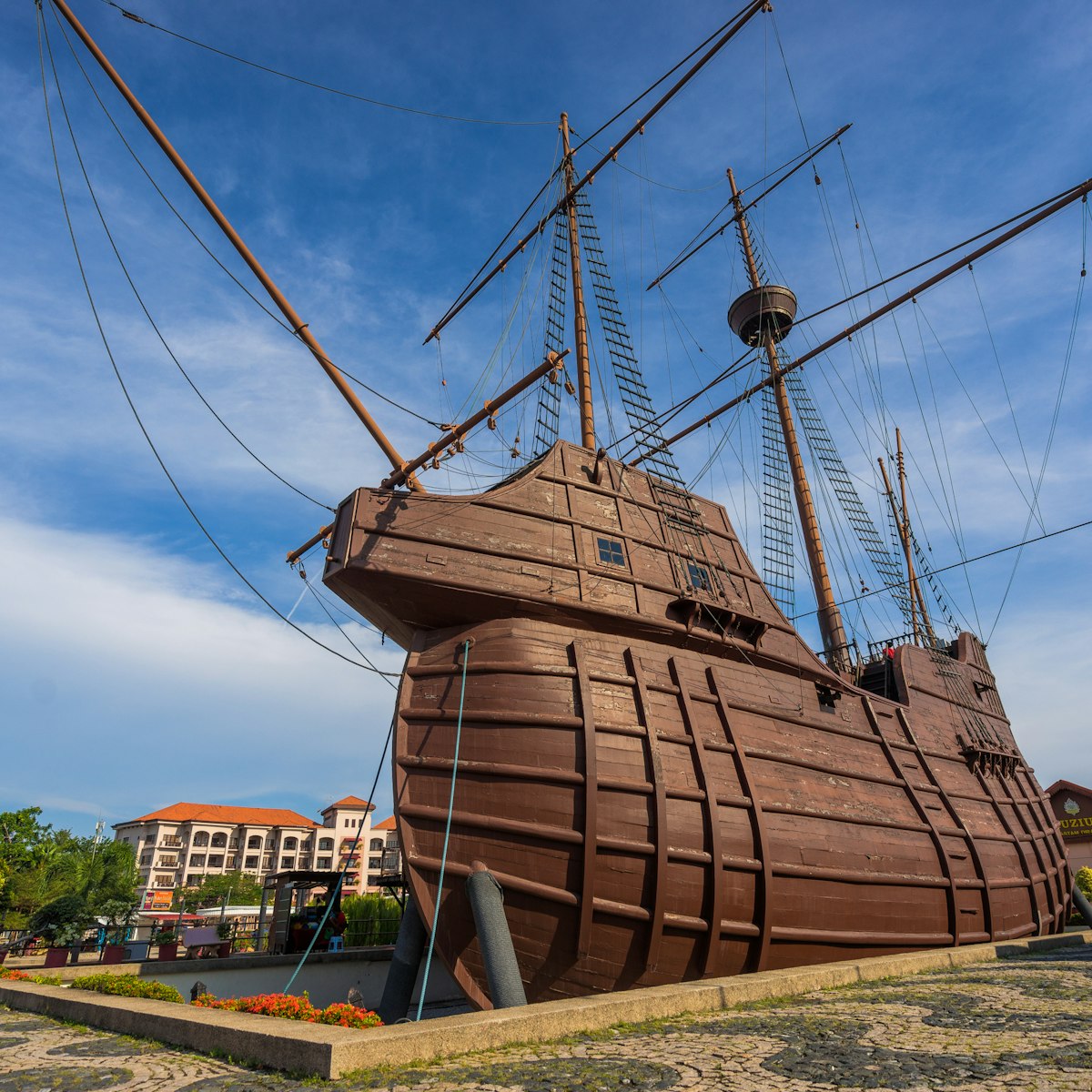
Maritime Museum & Naval Museum
Embark on a voyage through Melaka's maritime history at these linked museums, all covered by the one ticket. The most enjoyable of the Maritime Museum's…
Planning Tools
Expert guidance to help you plan your trip.
Best Things to Do
Experience the very best of Malaysia's astonishing landscapes, cultures and cuisines with these top things to do.
Things to Know
From what to pack to social etiquette, here is everything you need to know before visiting Malaysia.
Transportation
Malaysia is divided between the Malay peninsula and tropical Sabah and Sarawak on Borneo, but getting around is easy with these simple tips.
Visa Requirements
A great place for impulsive travelers, many nationals can enter Malaysia visa-free for up to 90 days.
Money and Costs
Malaysia should really be better known as a budget travel destination. It's easy to travel around, stay and eat cheaply with these top budget tips.
Best Road Trips
You can explore Malaysia without stepping inside a car but exploring with your own wheels opens up a tropical world. Here are Malaysia's best road trips.
Latest stories from Malaysia
Filter by interest:
- All Interests
- Adventure Travel
- Art & Culture
- Beaches, Coasts & Islands
- Food & Drink
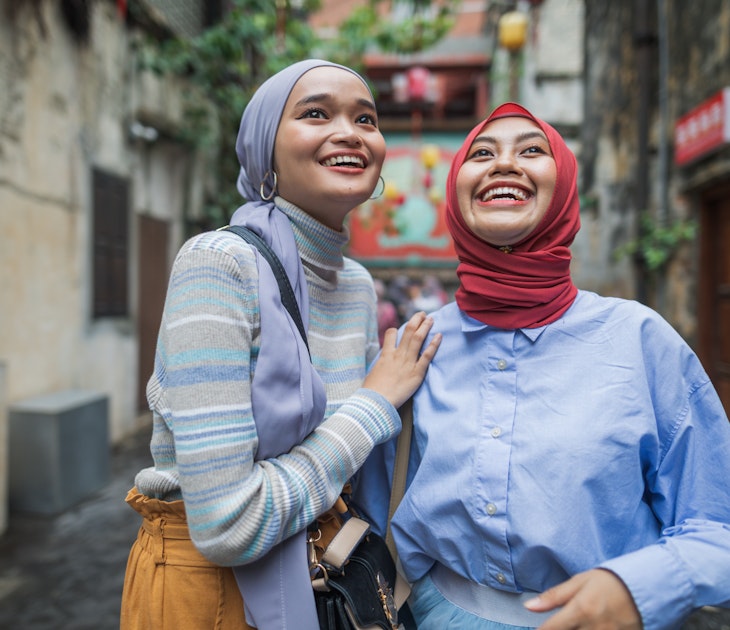
Destination Practicalities
Feb 3, 2024 • 7 min read

Jan 29, 2024 • 8 min read
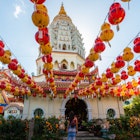
Jan 22, 2024 • 11 min read
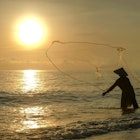
Sep 1, 2023 • 8 min read
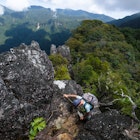
Mar 29, 2022 • 8 min read
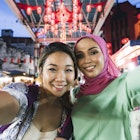
Mar 8, 2022 • 2 min read
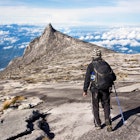
Feb 25, 2022 • 12 min read
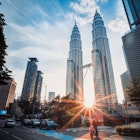
Feb 21, 2022 • 11 min read

Feb 19, 2022 • 5 min read
in partnership with getyourguide
Book popular activities in Malaysia
Malaysia and beyond.
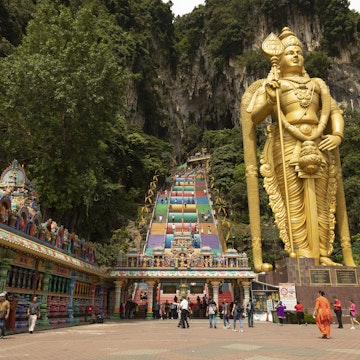
Security Alert May 17, 2024
Worldwide caution, update may 10, 2024, information for u.s. citizens in the middle east.
- Travel Advisories |
- Contact Us |
- MyTravelGov |
Find U.S. Embassies & Consulates
Travel.state.gov, congressional liaison, special issuance agency, u.s. passports, international travel, intercountry adoption, international parental child abduction, records and authentications, popular links, travel advisories, mytravelgov, stay connected, legal resources, legal information, info for u.s. law enforcement, replace or certify documents.
Tourism & Visit
Study & Exchange
Other Visa Categories
U.S. Visa: Reciprocity and Civil Documents by Country
Share this page:
Afghanistan
Antigua and Barbuda
Bosnia and Herzegovina
Brunei Darussalam
Burkina Faso
Cayman Islands
Central African Republic
Congo the Democratic Republic of the
Curaçao
Czech Republic
Côte d'Ivoire
Dominican Republic
El Salvador
Equatorial Guinea
Guinea-Bissau
Iran, Islamic Republic of
Israel, Jerusalem, the West Bank and Gaza
Korea, Democratic People's Republic of
Lao People's Democratic Republic
Liechtenstein
Marshall Islands
Micronesia, Federated States of
Moldova, Republic of
Netherlands
New Caledonia
New Zealand
North Korea
North Macedonia
Palestinian Authority
Papua New Guinea
Philippines
Russian Federation
Saint Kitts and Nevis
Saint Lucia
Saint Vincent and the Grenadines
Sao Tome and Principe
Saudi Arabia
Sierra Leone
Sint Maarten (Dutch part)
Solomon Islands
South Africa
South Korea
South Sudan
Switzerland
Timor-Leste
Trinidad and Tobago
Turkmenistan
Turks and Caicos Islands
United Arab Emirates
United Kingdom
Virgin Islands, British
Wallis and Futuna
What is Reciprocity?
Nonimmigrant visa applicants from certain countries*/areas of authority may be required to pay a visa issuance fee after their application is approved. These fees are based on the principle of reciprocity: when a foreign government imposes fees on U.S. citizens for certain types of visas, the United States will impose a reciprocal fee on citizens of that country*/area of authority for similar types of visas.
How Do I Find Out if I Have to Pay a Reciprocity Fee?
To view the Reciprocity Page for your country* of nationality, select your country*/area of authority from the list of countries on the left side menu. On the Reciprocity Page, select the Visa Classifications tab from the column on the left
Select the type of visa you have applied for, such as a B-1/B-2 (temporary visa for business or pleasure), F-1 (student visa), etc. from the drop down menu:
The reciprocity information for that country*/area of authority will display:
What does this table tell me?
Visa Classification: The type of nonimmigrant visa you are applying for.
Fee: The reciprocity fee, also known as the visa issuance fee, you must pay. This fee is in addition to the nonimmigrant visa application fee (MRV fee).
Number of Entries: The number of times you may seek entry into the United States with that visa. “M” means multiple times. If there is a number, such as “One”, you may apply for entry one time with that visa.
Validity Period: This generally means the visa is valid, or can be used, from the date it is issued until the date it expires, for travel with that visa. If your Validity Period is 60 months, your visa will be valid for 60 months from the date it is issued.
What is the Difference between the Reciprocity Fee and the Nonimmigrant Visa Application Fee?
The nonimmigrant visa application fee, also known as the MRV fee, is a nonrefundable fee paid by most applicants for U.S. visas, whether the application is approved or refused. It covers the costs associated with processing a U.S. visa application. Current nonimmigrant visa application fees can be found on our Fees – Visa Services webpage. (This webpage also lists the few visa categories for which application fees are not required.)
While most visa applicants are required to pay the visa application fee, the Reciprocity Fee is only charged to an approved nonimmigrant visa applicant after the visa interview.
Immigrant Visa Interviews
For Immigrant Visa interviews each U.S. Embassy or Consulate has specific instructions for their applicants. Please click here to select your designated interview location.
Civil Documents and How to Use Them
Immigrant visa applicants are required to submit certain civil documents as part of their visa application, such as birth certificates and police records. (Nonimmigrant visa applicants do not routinely need to submit civil documents as part of their visa application.) Each Reciprocity Page will provide detailed information about how to obtain these civil documents from the country* you have selected, as well as the location of the U.S. Embassy or Consulate where you can apply for your visa. For more information about civil document requirements for immigrant visa cases, see civil documents .
To view the Civil Documents for your country* of nationality, select your country*/area of authority from the drop-down menu below. On the Reciprocity Page, click on the tabs on the left to see the categories of Civil Documents and how to obtain them.
(Image only)
* With respect to all references to “country” or “countries” on this page, it should be noted that the Taiwan Relations Act of 1979, Pub. L. No. 96-8, Section 4(b)(1), provides that “[w]whenever the laws of the United States refer or relate to foreign countries, nations, states, governments, or similar entities, such terms shall include and such laws shall apply with respect to Taiwan.” 22 U.S.C. § 3303(b) (1). Accordingly, all references to “country” or “countries” in the Visa Waiver Program authorizing legislation, Section 217 of the Immigration and Nationality Act, 8 U.S.C. 1187, are read to include Taiwan. This is consistent with the United States’ one-China policy, under which the United States has maintained unofficial relations with Taiwan since 1979.
Additional Information for Reciprocity
Reciprocity: What's New Temporary Reciprocity Schedule Country Acronyms Terrorist Designation Lists State Sponsors of Terrorism Treaty Countries Visa Issuing Posts
External Link
You are about to leave travel.state.gov for an external website that is not maintained by the U.S. Department of State.
Links to external websites are provided as a convenience and should not be construed as an endorsement by the U.S. Department of State of the views or products contained therein. If you wish to remain on travel.state.gov, click the "cancel" message.
You are about to visit:
- Subscribe Now
LIST: Immigration requirements for different categories of Filipino travelers
Already have Rappler+? Sign in to listen to groundbreaking journalism.
This is AI generated summarization, which may have errors. For context, always refer to the full article.
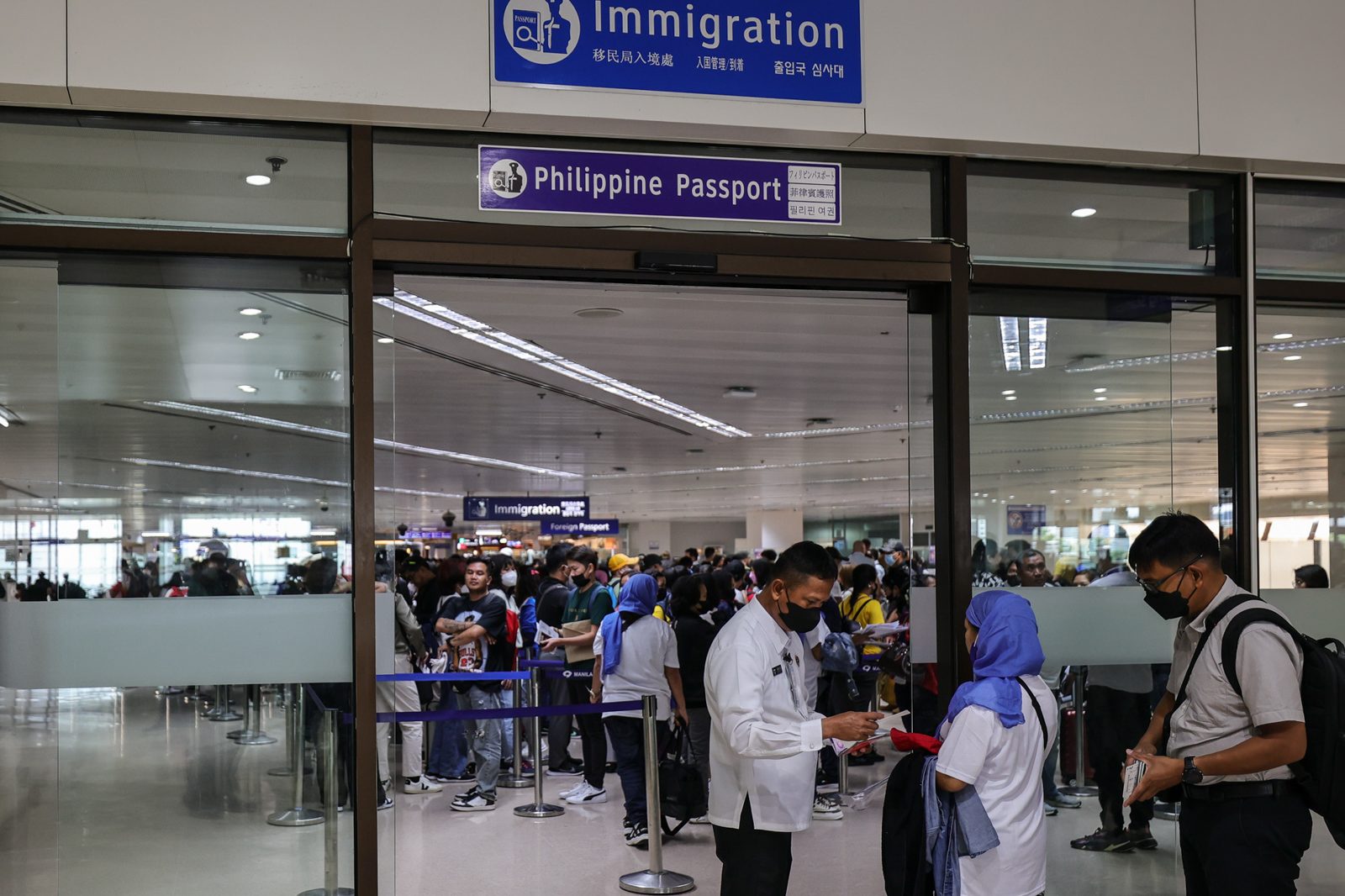
Passengers at the Ninoy Aquino International Airport Terminal 1 queue at the counters and immigration section on June 16, 2023, as travelers swell at the departure area due to the changes being implemented at the terminals.
Jire Carreon/Rappler
MANILA, Philippines – In a bid to better protect Filipinos from becoming victims of human trafficking, the Inter-Agency Council Against Trafficking (IACAT) on Tuesday, August 22, released revised guidelines on departure requirements for Filipino passengers traveling abroad.
The revised guidelines were approved on August 18 and will take effect on September 3 .
In a statement, the IACAT said that the issue of human trafficking is evolving, and that some Filipinos posing as tourists may actually be looking to work overseas.
“It is of paramount importance to emphasize that the revised guidelines have been formulated not to encroach upon the fundamental right to travel, but to serve as a protective bulwark shielding our fellow citizens from the dire perils of human trafficking,” the IACAT said.
In a press briefing on Thursday, August 24, Department of Justice spokesperson Mico Clavano said the departure requirements were not new. The IACAT guidelines are labeled “revised” because the requirements have actually been streamlined and organized into categories of travelers.
The DOJ also clarified that the numerous documents are not absolute requirements but are lists of what immigration officials may ask during further questioning.
Justice Secretary Boying Remulla said the guidelines will mostly apply to first-time travelers since it is from this category that potential victims of trafficking come from – they leave as tourists but some may show indications that they intend to look for employment abroad.
Bureau of Immigration (BI) Commissioner Norman Tansingco likewise said tourists should not worry about the revised guidelines, clarifying that there was “no change in procedures.”
“This is the same procedure we have been previously implementing, but it has been streamlined by the IACAT so it is clearer for Filipinos,” Tansingco said in a statement on Friday, August 25. “There is no new policy for departing tourists being implemented by the BI.”
The BI also gave assurances that the new guidelines wouldn’t be the cause of “unnecessary interviews,” especially for departing passengers with no red flags.
In 2022, the Philippines reported 1,277 victims of sex and labor trafficking. For eight consecutive years, the Philippines has been given a Tier 1 ranking by the United States Trafficking in Persons Report. It means the government has done enough efforts to combat human trafficking.
What are the basic requirements?
There are two levels of inspection for internationally-bound Filipinos, both conducted by an immigration officer (IO).
During primary inspection, passengers must present basic travel documents:
- Passport, valid at least six months from the departure date;
- Valid visa, depending on the destination;
- Boarding pass; and
- Confirmed return or roundtrip ticket, when necessary
The DOJ said more than 95% of travelers are required to show just these basic documents.
If passengers “sufficiently establish [their] declared purpose of travel,” the primary IO clears them for departure.
Those who cannot adequately explain why they are going abroad are referred to secondary inspection. It’s in this secondary inspection that the passengers may be asked to provide additional documents.
Among the common reasons passengers are subject to further questioning are their inability to show proof of financial capacity, history of having stayed abroad as a tourist for over six months, or having a record of misrepresentation of travel information, among others.
The only time an inspection may result in travel deferment is when passengers are found to have fraudulent travel documents or refuse to submit to inspection in the first place.
In either case, the primary IO will inform the traveler of the grounds for their departure deferment or referral to secondary inspection.
The IO in the secondary inspection will be more thorough with the interview and document examinations. Secondary inspections must not exceed 15 minutes. Extensions of this period are only for extraordinary circumstances.
What supporting documents can be presented?
There are other documents a traveler may need to show to their IOs. These will will vary, depending on travel purpose, age, and other details.
- Proof of accommodation
- Document showing financial capacity or source of income
- Proof of employment
- Original Philippine Statistics Authority (PSA)-issued birth or marriage certificate
- Confirmed roundtrip ticket
- Valid passport
- Valid work visa/permit or an equivalent document
- Notarized original Affidavit of Support and Guarantee (AOSG)
- Original PSA-issued birth or marriage certificate
- Notarized original AOSG
- Substantial proof of relationship
- Confirmed roundtrip
- If a judicial entry, sponsor’s registration papers
- Copy of sponsor’s return ticket
Overseas Filipino Workers (OFWs)
- Overseas employment certificate (OEC), or OFW Clearance issued by the Department of Migrant Workers (DMW)
- Valid and appropriate employment visa, work permit, or any equivalent document
- Employment contract
- Visa Usage Undertaking, or Manpower Request specifying visa usage approved or verified by the DMW or Migrant Workers Office (MWO), if applicable
- OFW Clearance, OEC issued on-site by MWO or Migrant Workers Airport Assistance Center (DMW-MWAAC), or Online BM OEC Exemption, or manually issued OEC
- Proof of employment, as necessary
- OEC, e-receipt, or valid OFW Clearance, and
OFWs traveling to other countries apart from the Philippines while they are on vacation will be treated as tourists if they plan to come back to the Philippines before returning to their host countries. If the OFW is touring in another country, and then going straight to their jobs in their host country, they must present an OEC.
The following OFWs are required to have special travel exit clearances instead of an OEC:
- Locally employed seafarers or conduction crew who will be manning a Philippine registered ship’s conduction from a foreign port to the Philippines
- Seafarers who will undergo orientation, or other pre-employment procedures, as the foreign employer (accredited by a licensed local manning agency) prescribes
- Emergency change crew for Philippine registered vessels docked in international ports
An OFW will be endorsed to the DMW-MWAAC for further inspection if there are issues with the worker’s OEC, or the OFW has incomplete or questionable documents.
While it is not mentioned in the IACAT’s guidelines, the DMW in July piloted the OFW Pass , the digital alternative to the OEC. These should be accepted at immigration counters instead of OECs.
- Original Philippine Statistics Authority (PSA)-issued birth certificate or report of birth
- Original PSA-issued birth certificate or report of birth
- Original PSA-issued marriage certificate
- National Authority for Child Care (NACC)-issued Travel Authority for adopted minor and the adoptive parent/s
- DSWD Travel Clearance Certificate
- Manifestation or notice of intended travel filed at least seven (7) calendar days before the intended date of travel, duly received by the Court where the case is pending
- NACC-issued Travel Authority for the prospective adoptive parent/s
- NACC-issued Travel Clearance Certificate for Adoptee
- Commission on Filipinos Overseas (CFO)-issued Clearance
The following are scenarios where travel will require Department of Social Welfare and Development (DSWD) Certificates of Clearance or Exemption:
- The parents are unmarried and the minor’s mother is not traveling
- The minor is accompanied by anyone other than their parents
- The passenger is over 18 but unable to fully care or protect themselves because of a physical or mental disability or condition
- The minor is above 13 years old and traveling alone (minors below 13 are prohibited from traveling alone)
- The parents are unmarried and the minor is traveling with their biological father who has sole parental authority or legal custody over them
- The companion is their legal guardian
- Orphans of married parents traveling with substitute parent/s
- Orphans of non-married parents and traveling with substitute parent/s or closest maternal relative
OFW relatives, students, volunteers, and more
- Valid dependent visa or any equivalent document, and
- Copies of the OFW’s valid visa and OEC, e-receipt, or OFW clearance
- CHED endorsement
- Acceptance letter from the school or institution abroad
- Duly notarized affidavit executed by the student or scholar indicating the educational institution, and the duration of the course or program of study
- Confirmed return or roundtrip ticket consistent with the program duration, if practicable
- Proof of financial capacity or scholarship
- Endorsement from the National Commission on Muslim Filipinos (NCMF) for Arabic language scholars, if applicable
- Minors under this category also need a DSWD Travel Clearance Certificate
- Confirmed return or roundtrip ticket consistent with travel duration
- Documents relevant to the purpose of travel, and
- Duly notarized affidavit executed by the passenger indicating the purpose and duration of travel
- Certification from the DMW or the Department of Foreign Affairs specifying the purpose of travel
- Proof of local employment, as certified by the Department of Labor and Employment (DOLE)
- Secondment agreement between the local company and foreign host company, as necessary
- Proof of local employment, as certified by the DOLE, and
- Traineeship agreement authenticated by the Philippine embassy or consulate where the training will be conducted, as necessary
- Endorsement from the Philippine National Volunteer Service Coordinating Agency
- Endorsement or list of pilgrims from the NCMF
- Department of Health clearance approving the organ donation or transplantation
The following are passengers who may be required to present a CFO clearance:
- Filipino spouse, fiancé/e, or partner (described as someone who is in a “genuine” heterosexual or same-sex relationship) of a foreign national, with an immigrant, resident, spouse, long-term, partner, prospective marriage, family reunification visa, or other similar visas
- First-time Filipino emigrants and resident visa holders registering with the CFO for the first time
- J1 visa holders, or exchange visitors bound for the United States
- Au Pair visa holders
Trainees for skills enhancement
- DA-ATI endorsement
- TESDA endorsement
- Endorsement from the concerned government agency
- Confirmed roundtrip ticket for programs six months or below
- Traineeship contract duly authenticated by the Philippine embassy
- Duly notarized affidavit executed by the trainee indicating the training institution and training duration
Other passengers, and when you’re identified as potentially trafficked
Travelers who do not fall under the specified categories will undergo the required immigration inspection, and show documents that sufficiently establish their purpose of travel.
Passengers who have been determined to be potentially trafficked during secondary inspection will be deferred for departure, and turned over to the IACAT Anti-Trafficking Task Force (ATTF) at the port, together with their passports and supporting documents.
The IACAT will turn over documents to the appropriate law enforcement agency, or the DFA Office of Consular Affairs. Passengers may also file civil, criminal, or administrative cases.
Using cellphones, cameras, recording devices, or any similar electronic devices is strictly prohibited in the immigration area, unless authorized. Documents, records, and data gathered during inspection are confidential. – Michelle Abad, Francessca Abalos, Patricia Kahanap/Rappler.com
Francessca Abalos is a Rappler volunteer studying at the Ateneo de Manila University.
Add a comment
Please abide by Rappler's commenting guidelines .
There are no comments yet. Add your comment to start the conversation.
How does this make you feel?
Related Topics
Recommended stories, {{ item.sitename }}, {{ item.title }}, human trafficking, [editorial] meme of the month si alice guo, pero evil of the century ang pogos.
![travel requirements to malaysia [EDITORIAL] Meme of the month si Alice Guo, pero evil of the century ang POGOs](https://www.rappler.com/tachyon/2024/06/animated-alice-guo-crime-pogo-links-carousel.jpg?resize=257%2C257&crop=288px%2C0px%2C720px%2C720px)
Tracing the evidence: The gov’t raid that exposed Mayor Alice Guo’s link to POGOs

Authorities raid POGO compound in Tarlac over alleged human trafficking
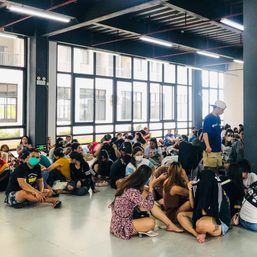
[Free to Disagree] Arrest Quiboloy!
![travel requirements to malaysia [Free to Disagree] Arrest Quiboloy!](https://www.rappler.com/tachyon/2024/03/Free-to-disagree-arrest-quiboloy-March-11-2024-1.jpg?resize=257%2C257&crop_strategy=attention)
[EDITORIAL] Kalaban mo ang mga senador na protektor ni Quiboloy
![travel requirements to malaysia [EDITORIAL] Kalaban mo ang mga senador na protektor ni Quiboloy](https://www.rappler.com/tachyon/2024/03/animated-quiboloy-kojc-senate-carousel.jpg?resize=257%2C257&crop=365px%2C0px%2C720px%2C720px)
travel and tourism
Explore taiwan: 14-day visa-free entry for filipinos extended until july 2025.

WATCH: Why the Calauit Safari Park is a rare experience

Here are the top 5 Asian destinations of European travelers, according to Agoda

WATCH: Experience modern cave dwelling in Cappadocia’s cave hotels

IN PHOTOS: Into the wild with Japan’s snow monkeys

Checking your Rappler+ subscription...
Upgrade to Rappler+ for exclusive content and unlimited access.
Why is it important to subscribe? Learn more
You are subscribed to Rappler+

Traveloka Team
31 May 2024 - 8 min read
Malaysia Vehicle Entry Permit Guide, A Must for Foreign Cars
Understanding the Vehicle Entry Permit (VEP) is essential if you're planning to drive into Malaysia. The Malaysia VEP is a mandatory permit for foreign-registered vehicles entering Malaysia, designed to regulate and monitor the entry of these vehicles. This permit is crucial for ensuring smooth travel and avoiding penalties. Whether you're a frequent traveler commuting for work or leisure, or visiting Malaysia for the first time, obtaining a VEP is necessary.
This article will cover everything you need about Malaysia VEP, including its purpose, eligibility, application process, fees, validity, and more. Understand step-by-step instructions for applying for your VEP, learn about common issues and their solutions, and explore the benefits of having a VEP. We will also provide insights into the different payment methods and renewal processes to keep your permit up-to-date. Avoid travel disruptions and enjoy a hassle-free experience using Traveloka's seamless application services.
What is Malaysia VEP?
The Malaysia Vehicle Entry Permit (VEP) is a mandatory permit required for all foreign-registered vehicles entering Malaysia. Introduced by the Malaysian government, the VEP aims to regulate and monitor the entry of these vehicles into the country. It is part of an effort to enhance road safety, manage traffic, and ensure that all vehicles on Malaysian roads comply with local regulations and standards.
The VEP system requires vehicle owners to register their vehicles and obtain a permit before entering Malaysia. This permit contains important information about the vehicle and its owner, allowing Malaysian authorities to keep track of foreign-registered vehicles within the country. The VEP is particularly relevant for frequent travelers, such as those commuting between Singapore and Malaysia, ensuring that their travel is legitimate and well-documented.
Eligibility and Requirements
Who needs to apply for vep, 1. foreign visitors.
These are individuals who enter Malaysia for tourism, business, or other short-term visits and choose to drive their foreign-registered vehicles. They may include tourists exploring Malaysia's attractions, business travelers attending meetings or conferences, or individuals visiting friends and relatives.
2. Frequent Travelers
This category comprises individuals who regularly commute between Malaysia and neighboring countries, such as Singapore, for various purposes. They may include professionals commuting for work, students attending educational institutions in Malaysia, or individuals traveling frequently for family visits or personal reasons.
3. Commercial Vehicles
These are businesses that operate foreign-registered commercial vehicles, such as trucks or vans, to conduct trade, delivery, or other business activities in Malaysia. Commercial vehicles may transport goods, equipment, or personnel across borders for commercial purposes, contributing to Malaysia's economy and trade relations with neighboring countries.
4. Expatriates
Expatriates are foreign nationals residing in Malaysia for employment, education, or other purposes, who use vehicles registered in their home countries. They may include expatriate workers employed by multinational corporations, international students enrolled in Malaysian universities, or individuals living in Malaysia on long-term visas.
5. Cross-Border Shoppers
These individuals frequently cross the border between Malaysia and neighboring countries, such as Thailand or Singapore, for shopping or personal errands. They may take advantage of lower prices, different product offerings, or special promotions available across borders, making frequent trips for retail therapy or purchasing specific goods not readily available in their home country.
Required Documents for VEP Application
1. vehicle registration documents.
These documents serve as proof of ownership and vehicle identification. They typically include the vehicle registration certificate or equivalent document issued by the relevant authorities in the vehicle's home country. The registration documents should display the vehicle's make, model, year of manufacture, engine number, and chassis number.
2. Owner's Identification
The owner's identification documents, such as a passport or national identity card, are required to verify the identity of the vehicle owner. These documents should be valid and match the information provided in the vehicle registration documents. They help ensure that the applicant is the rightful owner or authorized representative of the vehicle.
3. Valid Insurance Certificate
A valid insurance certificate is essential to demonstrate that the vehicle is adequately insured for travel in Malaysia. The insurance coverage should meet the minimum requirements set by Malaysian authorities, including coverage for third-party liability and personal injury. The insurance certificate should be issued by a recognized insurance provider and clearly state the coverage details, policy number, and validity period.
4. Valid Road Tax
Proof of payment of road tax for the vehicle is necessary to show compliance with Malaysian road tax requirements. Road tax ensures that the vehicle has been assessed and approved for road usage in Malaysia. The road tax certificate or receipt should be current and valid for the intended duration of the vehicle's stay in Malaysia.
5. Authorization Letter (if applicable)
If the vehicle owner is unable to personally apply for the VEP, an authorization letter may be required to designate a representative to apply on their behalf. The authorization letter should clearly state the representative's details, including their full name, identification number, and relationship to the vehicle owner. This document helps facilitate the application process and ensures that authorized individuals can act on behalf of the vehicle owner.
6. Other Supporting Documents
Depending on specific requirements or circumstances, additional documents may be requested by the authorities. These documents could include vehicle inspection reports, import/export permits, or any other relevant paperwork to support the VEP application. Applicants need to check with the relevant authorities or VEP application platform for any additional documentation requirements to ensure a successful application process.

KSL Hotel & Resort

33, Jalan Seladang, Taman Abad
Application Process

Step-by-Step Guide to Apply for VEP
1. prepare required documents.
Gather all necessary documents for the application, including vehicle registration documents, owner's identification, valid insurance certificate, and proof of road tax payment.
2. Create an Account
Visit the official VEP application website or platform and create an account if you haven't already done so. Provide accurate personal and vehicle information during the registration process.
3. Fill Out the Application Form
Complete the online application form with all required details, including vehicle information, owner's particulars, and travel itinerary. Double-check the information to ensure accuracy before submitting.
4. Upload Documents
Upload scanned copies or clear photos of the required documents as per the application instructions. Ensure that the documents are legible and meet the specified file format and size requirements.
5. Pay Application Fee
Pay the VEP application fee using the accepted payment methods, such as credit/debit card or online banking. Verify the payment transaction and keep a record of the payment confirmation for future reference.
6. Submit Application
Review the completed application form and uploaded documents to confirm accuracy. Once satisfied, apply online through the designated portal. Note any application reference number or confirmation details provided upon submission.
7. Wait for Processing
After applying, allow time for the authorities to process the application and review the submitted documents. Check the application status periodically through the online portal for updates or notifications.
8. Receive Approval
Upon successful processing, receive notification of VEP approval via email or through the online portal. Download and print the VEP approval letter and keep it with you when traveling with the registered vehicle.
9. Install RFID Tag (if applicable)
If required, schedule an appointment to install the Radio Frequency Identification (RFID) tag on the registered vehicle at designated installation centers. Follow the installation instructions and ensure proper placement of the RFID tag on the vehicle windshield.
10. Comply with VEP Requirements
Adhere to all VEP requirements and regulations when entering Malaysia with the registered vehicle. Display the VEP approval letter and RFID tag (if applicable) as instructed by the authorities at entry points.

Blue Ice Skating Rink at Paradigm Johor Tickets

3 Easy Steps to Create A VEP Account
1. registration.
Vehicle owners sign up for an online account and provide details about their vehicle, owner, and driver. Owners have the option to designate a representative to register on their behalf. It's essential to ensure that all information provided is accurate and truthful.
2. Confirmation
Registrants receive an email containing a confirmation slip with the details provided during registration. This confirmation slip can also be downloaded from the portal. If any information on the confirmation slip is incorrect, registrants can still make corrections and resubmit the registration details at this stage.
3. Collection
Registrants present the confirmation slip, along with other required documents, to the Road Transport Department (RTD) officer at designated VEP collection counters. After successful verification and payment of a processing fee (RM10), registrants receive a VEP-RFID tag valid for five years.
VEP Application Fees
Standard application fee.
The standard processing fee for the VEP application is typically RM10 per vehicle. This fee covers the administrative costs associated with processing the application and issuing the permit.
Additional Charges
In some cases, additional charges may apply, such as fees for the installation of Radio Frequency Identification (RFID) tags or other related services. These charges vary depending on the specific requirements of the application and may be payable separately.
Expedited Processing Fee
For expedited processing or priority handling of VEP applications, an additional fee may be charged. This option allows applicants to receive their permits more quickly, typically within a shorter turnaround time than standard processing.
Payment Methods
Applicants can typically make payment for VEP application fees using various methods, including credit/debit cards, online banking, or electronic fund transfers. Accepted payment methods may vary depending on the platform or service provider used for the application.
Validity and Renewal

VEP Validity Period
Standard validity.
The standard validity period for the VEP is often set at five years from the date of approval. This duration allows vehicle owners to use the permit for multiple entries into Malaysia over the specified timeframe without the need for frequent renewal.
At the end of the initial validity period, vehicle owners may need to renew their VEP to continue using their foreign-registered vehicles for entry into Malaysia. The renewal process typically involves updating personal and vehicle information and may require payment of renewal fees.
Special Circumstances
In some cases, the validity period of the VEP may be adjusted based on special circumstances or specific requirements. For example, commercial vehicles used for trade or delivery purposes may have different validity periods than vehicles used for personal travel or tourism.
Electronic Monitoring
With the introduction of Radio Frequency Identification (RFID) technology for VEP enforcement, the validity period of the RFID tag installed on the vehicle may also impact the VEP validity. Vehicle owners should ensure that their RFID tags remain valid and operational throughout the VEP validity period to avoid any issues at entry points.
How to Renew Your VEP
1. Check Eligibility: Before initiating the renewal process, ensure that your current VEP is eligible for renewal. Typically, VEP permits are valid for a specific duration, commonly five years, from the date of approval. Verify if your permit has expired or is nearing expiration to determine the renewal timeline.
2. Access the Renewal Portal: Visit the official VEP renewal portal provided by the relevant authorities. Ensure that you have access to a stable internet connection and a compatible device to complete the renewal process online.
3. Log In: Log in to your existing VEP account using your registered credentials. If you don't have an account, you may need to create one by providing your personal and vehicle details.
4. Review Information: Verify and update any outdated or incorrect information in your VEP account, including personal details, vehicle registration information, and contact information.
5. Initiate Renewal: Look for the option to renew your VEP within your account dashboard. Follow the prompts to initiate the renewal process, ensuring that all required fields and information are accurately filled out.
6. Pay Renewal Fees: Proceed to the payment section to settle the renewal fees associated with your VEP. The renewal fee amount may vary depending on factors such as the type of vehicle and duration of renewal.
7. Submit Documentation: Upload any required supporting documents, if applicable, to complete the renewal application. These documents may include updated vehicle registration papers, insurance certificates, or identification documents.
8. Await Approval: Once you have submitted the renewal application and payment, wait for the authorities to process your request. Monitor your VEP account or email for updates on the status of your renewal application.
9. Receive Renewal Confirmation: Upon approval, you will receive confirmation of your VEP renewal via email or through the online portal. Download and retain a copy of the renewed VEP permit for your records.
10. Update RFID Tag (if applicable): If your VEP renewal involves the installation of a Radio Frequency Identification (RFID) tag, schedule an appointment at a designated installation center to update or replace your existing tag accordingly.
Common Issues and Solutions
Common application errors and how to avoid them.
1. Incomplete or Inaccurate Information: Ensure that all required fields in the application form are filled out accurately and completely. Double-check the information provided, including personal details, vehicle information, and contact information, to avoid errors.
2. Incorrect Document Submission: Review the list of required documents carefully and ensure that all documents are valid, up-to-date, and uploaded in the correct format. Verify the authenticity of the documents and cross-check them against the application requirements before submission.
3. Failure to Meet Eligibility Criteria: Before applying for the VEP, ensure that you meet all eligibility criteria, including vehicle type, ownership, and compliance with Malaysian regulations. Failure to meet eligibility criteria can result in application rejection or delays.
4. Payment Issues: Ensure that the correct payment amount is submitted for the application fee. Use only accepted payment methods and verify the transaction details before confirming payment. Keep proof of payment for reference and verification purposes.
5. RFID Tag Installation Errors: If your VEP application requires the installation of a Radio Frequency Identification (RFID) tag, schedule the installation appointment promptly and follow the instructions provided by the authorities. Ensure that the RFID tag is installed correctly and securely on the vehicle windshield.
6. Failure to Monitor Application Status: Regularly check the status of your VEP application through the online portal or designated channels provided by the authorities. Stay informed about any updates, requests for additional information, or notifications regarding the application status.
7. Ignoring Communication from Authorities: Respond promptly to any communication or requests for clarification from the authorities regarding your VEP application. Failure to address inquiries or provide requested information can result in delays or application rejection.
What to Do if Your VEP Application is Rejected
1. Review Rejection Reasons: Carefully review the rejection notification provided by the authorities to understand the reasons for the rejection. Common reasons for rejection may include incomplete documentation, eligibility issues, or discrepancies in the application details.
2. Address Rejection Reasons: Once you understand the reasons for the rejection, take the necessary actions to address the issues identified. This may involve providing additional documentation, correcting inaccuracies in the application, or resolving eligibility issues.
3. Seek Clarification: If the rejection reasons are unclear or you require further clarification, reach out to the relevant authorities or VEP support channels for assistance. Request detailed feedback on the rejection reasons and guidance on how to proceed with addressing them.
4. Resubmit Application: If permitted, make necessary revisions or updates to your VEP application based on the feedback received. Ensure that all required information is accurately provided and any deficiencies are addressed before resubmitting the application.
5. Follow-up: After resubmitting your VEP application, monitor the status of your application closely through the designated channels provided by the authorities. Stay proactive in following up on the progress of your application and addressing any additional requests or inquiries promptly.
6. Consider the Appeal Process: If your VEP application is rejected despite efforts to address the issues, inquire about the appeal process available for challenging the rejection decision. Follow the prescribed procedures for appealing and provide any relevant supporting documentation or evidence to support your case.
7. Seek Professional Assistance: If you encounter challenges in addressing the rejection reasons or navigating the appeal process, consider seeking assistance from legal professionals or consultants experienced in VEP applications. They can provide guidance and support to help resolve the issue effectively.
Frequently Asked Questions (FAQs)
Common questions about vep.
1. Who Needs to Register for VEP?
All categories of foreign vehicles, including private vehicles, commercial vehicles, and embassy/government-owned vehicles, entering Malaysia must register for VEP.
2. When and How to Register for VEP?
Owners or representatives of foreign-registered vehicles should register online via the Road Transport Department of Malaysia (JPJ) website before entering Malaysia, effective from August 15, 2015.
3. What Information is Required for Registration?
Vehicle owners are encouraged to register online and provide accurate vehicle and owner details. A self-declaration approach is adopted, requiring complete information. Falsifying data may result in penalties under Section 108 of the Road Transport Act 1987.
4. How Much Does the VEP Tag Cost?
The VEP tag is free, but an RM10 administration fee is charged during registration. The VEP must be renewed every five years.
5. Where Can I Collect the VEP Tag?
VEP tags can be collected at designated locations announced by JPJ. An RM10 administration fee applies during collection, with JPJ personnel guiding the attachment of the tag to the vehicle windshield.
6. What is the Validity Period of VEP?
VEP must be renewed every five years, with a new tag issued. Vehicle owners can check the tag expiry date online, with reminder emails sent six months before expiry.
7. What if My VEP Expires?
While entry is permitted, a penalty fee of RM150 is imposed when exiting Malaysia. To avoid this, renew the VEP before re-entry.
8. Do I Need to Update Vehicle Details?
Yes, updates are required for various details, including insurance, passport, and license information, every five years.
9. Can I Enter Malaysia with Expired Documents?
No, only vehicles with valid road tax and insurance are allowed entry.
10. Can I Transfer My VEP Tag to Another Vehicle?
No, VEP tags are vehicle-specific and non-transferable.
Official Contact Information for VEP Inquiries
For inquiries regarding the Vehicle Entry Permit (VEP), you can contact the officials at +603 8892 1501 or 8892 1502 during their office hours from Monday to Friday, 8:30 am to 5:30 pm (Malaysian local time). Alternatively, you can email them here . For more information and updates, please visit their website here .
Understanding the step-by-step instructions to apply for your Malaysia VEP, highlighting common issues and solutions, and discussing the benefits of having a VEP can make your travel planning smoother and more efficient. With a VEP, you can enjoy a hassle-free driving experience in Malaysia, giving you more time to explore and enjoy the country.
When planning your trip, don't forget to book your hotel , flight tickets , and travel activities on Traveloka in advance to ensure a seamless travel experience.
Payment Partners
About Traveloka
- How to Book
- Help Center
- Download App
Follow us on
- Airport Transport
- ProductItems.cruises-search
- Traveloka Affiliate
- Privacy Notice
- Terms & Conditions
- Register Your Accommodation
- Register Your Experience Business
- Traveloka Press Room
- Vulnerability Disclosure Program
Download Traveloka App

- What is a visa?
- Electronic Visa (eVisa)
- Visa on Arrival
- Appointment Required Visa
- Invitation Letter
- Arrival Card
- Passport Renewal
- Project Kosmos: Meet the man with the world's most challenging travel schedule
- Australia Visa and ETA requirements for US citizens explained
- Brazil eVisa for US citizens
- India Tourist Visa for UK citizens
- Possible B1/B2 Visa questions during the interview
Select Your Language
- Nederlandse
- 中文 (Zhōngwén), 汉语, 漢語
Select Your Currency
- AED United Arab Emirates Dirham
- AFN Afghan Afghani
- ALL Albanian Lek
- AMD Armenian Dram
- ANG Netherlands Antillean Guilder
- AOA Angolan Kwanza
- ARS Argentine Peso
- AUD Australian Dollar
- AWG Aruban Florin
- AZN Azerbaijani Manat
- BAM Bosnia-Herzegovina Convertible Mark
- BBD Barbadian Dollar
- BDT Bangladeshi Taka
- BGN Bulgarian Lev
- BIF Burundian Franc
- BMD Bermudan Dollar
- BND Brunei Dollar
- BOB Bolivian Boliviano
- BRL Brazilian Real
- BSD Bahamian Dollar
- BWP Botswanan Pula
- BZD Belize Dollar
- CAD Canadian Dollar
- CDF Congolese Franc
- CHF Swiss Franc
- CLP Chilean Peso
- CNY Chinese Yuan
- COP Colombian Peso
- CRC Costa Rican Colón
- CVE Cape Verdean Escudo
- CZK Czech Republic Koruna
- DJF Djiboutian Franc
- DKK Danish Krone
- DOP Dominican Peso
- DZD Algerian Dinar
- EGP Egyptian Pound
- ETB Ethiopian Birr
- FJD Fijian Dollar
- FKP Falkland Islands Pound
- GBP British Pound Sterling
- GEL Georgian Lari
- GIP Gibraltar Pound
- GMD Gambian Dalasi
- GNF Guinean Franc
- GTQ Guatemalan Quetzal
- GYD Guyanaese Dollar
- HKD Hong Kong Dollar
- HNL Honduran Lempira
- HTG Haitian Gourde
- HUF Hungarian Forint
- IDR Indonesian Rupiah
- ILS Israeli New Sheqel
- INR Indian Rupee
- ISK Icelandic Króna
- JMD Jamaican Dollar
- JPY Japanese Yen
- KES Kenyan Shilling
- KGS Kyrgystani Som
- KHR Cambodian Riel
- KMF Comorian Franc
- KRW South Korean Won
- KYD Cayman Islands Dollar
- KZT Kazakhstani Tenge
- LAK Laotian Kip
- LBP Lebanese Pound
- LKR Sri Lankan Rupee
- LRD Liberian Dollar
- LSL Lesotho Loti
- MAD Moroccan Dirham
- MDL Moldovan Leu
- MGA Malagasy Ariary
- MKD Macedonian Denar
- MNT Mongolian Tugrik
- MOP Macanese Pataca
- MUR Mauritian Rupee
- MVR Maldivian Rufiyaa
- MWK Malawian Kwacha
- MXN Mexican Peso
- MYR Malaysian Ringgit
- MZN Mozambican Metical
- NAD Namibian Dollar
- NGN Nigerian Naira
- NIO Nicaraguan Córdoba
- NOK Norwegian Krone
- NPR Nepalese Rupee
- NZD New Zealand Dollar
- OMR Omani Rial
- PAB Panamanian Balboa
- PEN Peruvian Nuevo Sol
- PGK Papua New Guinean Kina
- PHP Philippine Peso
- PKR Pakistani Rupee
- PLN Polish Zloty
- PYG Paraguayan Guarani
- QAR Qatari Rial
- RON Romanian Leu
- RSD Serbian Dinar
- RUB Russian Ruble
- RWF Rwandan Franc
- SAR Saudi Riyal
- SBD Solomon Islands Dollar
- SCR Seychellois Rupee
- SEK Swedish Krona
- SGD Singapore Dollar
- SHP Saint Helena Pound
- SLL Sierra Leonean Leone
- SOS Somali Shilling
- SRD Surinamese Dollar
- SVC Salvadoran Colón
- SZL Swazi Lilangeni
- THB Thai Baht
- TJS Tajikistani Somoni
- TOP Tongan Pa anga
- TRY Turkish Lira
- TTD Trinidad and Tobago Dollar
- TWD New Taiwan Dollar
- TZS Tanzanian Shilling
- UAH Ukrainian Hryvnia
- UGX Ugandan Shilling
- USD United States Dollar
- UYU Uruguayan Peso
- UZS Uzbekistan Som
- VND Vietnamese Dong
- VUV Vanuatu Vatu
- WST Samoan Tala
- XAF CFA Franc BEAC
- XCD East Caribbean Dollar
- XOF CFA Franc BCEAO
- XPF CFP Franc
- YER Yemeni Rial
- ZAR South African Rand
- ZMW Zambian Kwacha
Apply for and track your visa with our new app!
Download Now
Get your Malaysia Visa With Us: Apply for a Malaysia Tourist eVisa
1.2M happy customers
24/7 support
+46,000 reviews
10 years of experience
98% visa approval rate
How to Apply: Tourist eVisa
Complete our easy online application and pay with credit card or PayPal
No need to deal with the embassy. We do it for you so you don't lose valuable time
Present your Passport and the Document we provide upon entry to destination country
How to Apply: Embassy Registration
Your embassy will assist you if an emergency (eg. Natural disasters, civil unrest, etc) occur
Why Register with the Embassy
Required information to apply.
Once You Have Registered With Your Embassy Or Consulate, You Will Need To Update Your Data If:
- your contact details change,
- your civil status changes,
- you are going back to your home country.
Learn More: Tourist eVisa
What you need to know.
The e-Visa is valid for 3 months. With this visa you can stay up to 30 days Per Entry in Malaysia.
Your passport must be valid for at least six months from the planned date of entry.
To get the Malaysia eVisa you must have a return flight to your home country or country of departure.
We recommend travelers apply for the e-Visa at least 2 weeks prior to their departure to Malaysia.
You will need to present proof of accommodation to get the travel document. The dates in this document MUST match the travel dates selected in the application . This is a requirement that is demanded by the government in order to issue the travel document.
The Malaysia Tourist eVisa must be printed to be presented upon arrival in Malaysia at entry and exit checkpoints. A digital visa is not accepted.
Apply today for the Malaysia Tourist eVisa with us!
Last updated: November 2023
Embark on a Malaysian adventure, where vibrant cityscapes meet tranquil beaches and rich cultural heritage. For your journey to this Southeast Asian paradise, you need the Malaysia Tourist e-Visa.
At iVisa, we've transformed the visa application process into a seamless, stress-free experience, ensuring you can focus on planning your travels, not paperwork.
With our intuitive platform and mobile app , applying for your Malaysia Tourist eVisa is quicker and easier than ever. Prepare for an unforgettable Malaysian experience while we handle the complexities of visa applications. Your journey starts here!
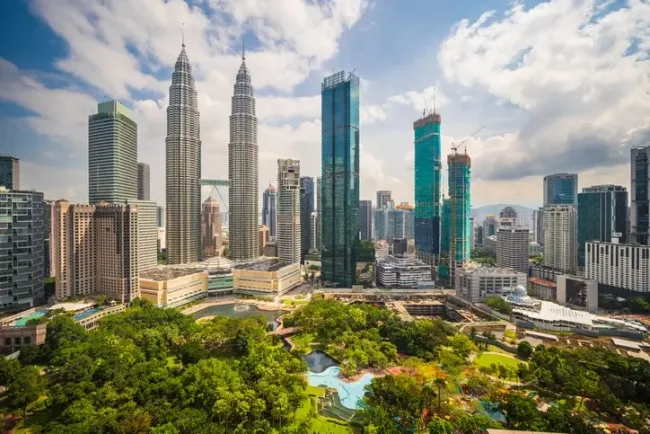
What is the Malaysia Tourist eVisa?
The Malaysia Tourist eVisa is a digital travel authorization designed for those wishing to visit Malaysia for tourism purposes.
Implemented to streamline the visa application process, it allows travelers to apply for and receive their visa online without the need to visit an embassy or consulate. This eVisa is perfect for tourists planning to explore Malaysia's diverse attractions, from the bustling streets of Kuala Lumpur to the serene beaches of Langkawi.
It simplifies travel, making it more accessible and hassle-free, aligning with the needs of modern, tech-savvy travelers. With the Malaysia Tourist eVisa, your Malaysian adventure is just a click away!
What can you do with the Malaysia Tourist eVisa?
Explore Malaysia's beauty: Visit iconic destinations like Kuala Lumpur, Penang, and Langkawi.
Tourism activities: Engage in sightseeing, cultural exploration, and recreational activities.
Short-term business meetings: Attend business-related meetings or conferences.
Visit friends and family: Reconnect with loved ones residing in Malaysia.
Short educational courses: Participate in short-term courses or workshops that do not grant academic credit.
What can you not do with the Malaysia Tourist Visa?
Employment: You cannot engage in any employment or job.
Long-term study: Not suitable for long-term educational courses or schooling.
Permanent residency: Does not serve as a pathway to Malaysian residency.
Journalistic activities: Not valid for media and journalistic purposes.
Government activities: Cannot be used for government-related work or assignments.
Who can apply for the Malaysia Tourist eVisa?
The Malaysia Tourist eVisa is designed for travelers who meet certain criteria, ensuring a hassle-free journey to Malaysia for tourism. Here are the essential requirements:
Nationality requirements: Applicants must be from countries eligible for the Malaysia Tourist eVisa. It's important to check if your country is on the eligible list.
Purpose of visit: Your travel should be for tourism purposes, such as sightseeing, visiting friends or family, or attending short-term business meetings.
Duration of stay: The visit should be short, typically not exceeding 30 days Per Entry .
No employment: Applicants must not seek employment or engage in long-term study during their stay in Malaysia.
Travel documents: A valid passport with at least six months of validity from entry into Malaysia is required.
Proof of accommodation and funds: Evidence of sufficient funds and accommodation arrangements for the duration of the stay may be necessary.
This eVisa is ideal for individuals or groups planning a brief visit to Malaysia, whether to explore the country's diverse attractions, attend a conference, or reconnect with family.
Who is eligible for the Malaysia Tourist eVisa?
The Malaysia Tourist eVisa is available to nationals from specific countries. While the list is extensive, here are some examples of countries whose citizens are eligible:
China, India, Sri Lanka, Nepal, Myanmar, Bangladesh, Pakistan, Bhutan, Serbia, and Montenegro.
Visa-exempt: Who doesn't need to apply for the Malaysia Tourist eVisa?
Citizens from certain countries do not require a visa to enter Malaysia for short visits. These countries include, but are not limited to:
United States
United Kingdom
Most EU countries
Do minors have to apply for the Malaysia Tourist eVisa?
Yes, minors also require the Malaysia Tourist eVisa. When applying for a visa for a minor, additional documents are necessary. These typically include:
A copy of the minor's birth certificate.
A consent letter signed by both parents or legal guardians.
Photocopies of parents' or legal guardians' passports or ID cards.
Malaysia Tourist eVisa validity: How long is the Malaysia Tourist eVisa valid?
The Malaysia Tourist eVisa comes with specific validity terms that travelers need to be aware of:
Visa validity: The Malaysia Tourist eVisa is typically valid for 90 days after issued . This means you must enter Malaysia within 90 days of issuing the visa.
Length of stay: Once you enter Malaysia, you can stay for 30 days Per Entry .
Number of entries: The Malaysia Tourist eVisa is generally a Single Entry visa. This means you can enter Malaysia once with the eVisa. Once you leave, even before the 30-day period ends, the visa cannot be used again.
Can I extend my Malaysia Tourist eVisa?
Extending a Malaysia Tourist eVisa is not typically possible. Once in Malaysia, if you wish to stay beyond the validity of your visa, you must leave the country and reapply for a new eVisa. It's important to plan your trip within the stipulated duration of your visa to avoid any legal complications.
Malaysia Tourist eVisa required documents
When applying for the Malaysia Tourist eVisa, certain documents are necessary to ensure a successful application process. Additionally, there are documents you should be prepared to present upon entry into Malaysia.
Documents needed to apply:
Passport: Your passport must be valid for at least six months from the date of entry into Malaysia.
Recent passport photo: A recent passport-sized photo is required. Ensure it meets the standard passport photo criteria.
Travel itinerary: Details of your flight bookings, including return or onward travel.
Proof of accommodation: Confirmation of where you will be staying in Malaysia (hotel bookings, etc.).
Financial means: Evidence of sufficient funds to cover your stay in Malaysia (bank statements, etc.).
Personal details: A completed application form with your personal and travel details.
- Individuals holding nationalities from the following countries: Nigeria, Cameroon, Ethiopia, Sri Lanka, Bangladesh, Australia, and New Zealand , may be requested for additional documentation by the government.
Documents to provide on entry:
Printed eVisa: Carry a printed copy of your approved Malaysia Tourist Visa.
Valid passport: The same passport used for the eVisa application, with at least six months of validity.
Proof of sufficient funds: Documentation showing you have enough money for your stay.
Return or onward ticket: Proof of your planned departure from Malaysia.
Accommodation details: Confirmation of your hotel bookings or other accommodation arrangements.
Having these documents organized and readily available will help ensure a smooth entry into Malaysia. Remember, the eVisa is an essential document for your travel, so keep it secure throughout your journey.
Malaysia's financial requirements
For travelers entering Malaysia with a Tourist eVisa, there are financial requirements to ensure they can sustain themselves during their stay. Here are the key points:
Sufficient funds: Travelers must have enough funds to cover their expenses in Malaysia. This is typically verified through recent bank statements.
Proof of funds: You may be asked to provide evidence of your financial means upon entry. This can include:
Bank statements or bank books showing recent transactions.
Cash in convertible currencies.
Traveler's cheques.
Credit cards with statements showing credit limits.
Having these documents readily available is important, as immigration officers may request them upon your arrival in Malaysia. Demonstrating financial stability is a standard procedure and ensures a smooth entry process.
How to apply for the Malaysia Tourist eVisa
Applying for the Malaysia Tourist eVisa through us is straightforward and efficient. We've broken it down into three simple steps:
Step 1: Fill out all the necessary information, including personal details, travel information, and passport data, on our online application form or mobile app. Our form is designed to be user-friendly, ensuring a hassle-free experience.
Step 2: Pay the visa service fee after filling out the form. This can be done securely online. We ensure that your payment is safe and your personal information is protected.
Step 3: The final step involves uploading any required documents. We will specify what you need to provide, such as a passport photo or a copy of your passport. This can be easily done through our website.
Then sit back, relax, and wait for us to process everything. You'll receive your Malaysia Tourist eVisa via email, so ensure that you provide an accurate email address.
Malaysia Tourist eVisa costs and processing times
At iVisa, we offer different processing times for the Malaysia Tourist eVisa to cater to the varying needs of our clients. The cost of your eVisa will depend on the processing time you choose. Here are the options available:
Standard processing: This is the most cost-effective option and is suitable for travelers with enough time before their trip. It offers a balance between processing time and fee.
Rush processing: For those who need their eVisa a bit sooner, the Rush processing option is faster than the Standard one but comes at a higher cost.
Super Rush processing: This is the fastest option for travelers needing their Malaysia Tourist eVisa urgently. It is the most expensive option due to the expedited processing time.
The exact costs can vary depending on your nationality. To find out the specific fees for your Malaysia Tourist eVisa, we recommend starting the application process on the iVisa website. This will provide the most accurate and up-to-date pricing based on your circumstances.
Do I need the Malaysia Tourist eVisa to transit through the country?
The need for a Malaysia Tourist eVisa during transit depends on your transit duration and plans:
- Short transit (under 24 hours): If you're transiting for less than 24 hours and not leaving the airport's international transit area, you typically don't need the eVisa.
- Longer transit or leaving the airport: For transits over 24 hours or if you plan to exit the airport, a Malaysia Tourist eVisa is required.
Always check your specific requirements based on nationality and transit details, as some travelers may be exempt or need a different type of visa.
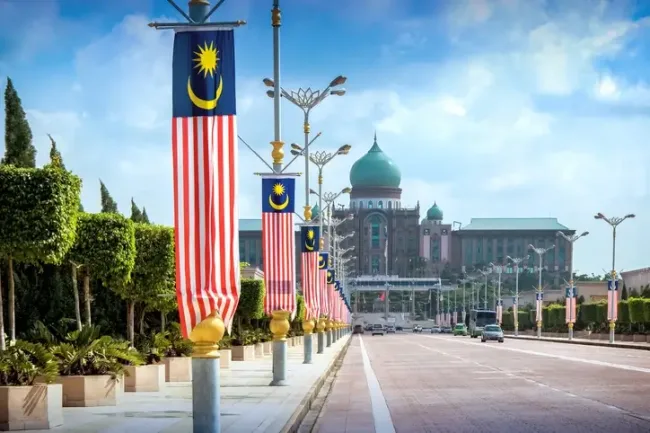
Malaysia entry requirements or restrictions
As of the latest update, Malaysia has specific entry requirements due to COVID-19, which are subject to change:
COVID-19 testing: Travelers may need to show a negative COVID-19 test taken shortly before arrival.
Vaccination: Proof of vaccination against COVID-19 might be required, with specifics on accepted vaccines.
Health screening: Expect health screenings at entry points, possibly including temperature checks.
Quarantine: Depending on various factors, quarantine upon arrival in Malaysia may be necessary.
Health declaration: A health declaration form may be required before or after arrival.
For the most up-to-date information, always check the Malaysian government's travel advisory or other official sources before traveling.
Differences between the Malaysia Tourist eVisa and Malaysia Customs Form
When planning a trip to Malaysia, it's important to understand the differences between various travel documents, such as the Malaysia Tourist eVisa and the Malaysia Customs Form. Both are essential but serve different purposes:
Malaysia Tourist eVisa
- Purpose: The Malaysia Tourist eVisa is a travel authorization required for tourists from certain countries to enter Malaysia.
- Validity: It typically allows a stay of up to 30 days and is valid for 90 days from the date of issue.
- Application: Applied online before your trip, requiring personal and travel information, passport details, and sometimes additional documentation like a return ticket or hotel booking.
Malaysia Customs Form
- Purpose: This form is used for declaring goods upon entry into Malaysia, ensuring compliance with customs regulations.
- Use: It's filled out upon arrival in Malaysia, usually on the plane or at the airport.
- Content: It contains information about items you bring into the country, including currency, food, animals, or commercial goods.
Both documents are crucial for a smooth travel experience in Malaysia. The eVisa ensures legal entry into the country for tourism purposes, while the Customs Form is about the goods you bring with you.
Where can I learn more about the Malaysia Tourist eVisa?
Our dedicated online team of customer service agents is available via online chat to assist with any questions, you can also contact us on WhatsApp .
Related Articles
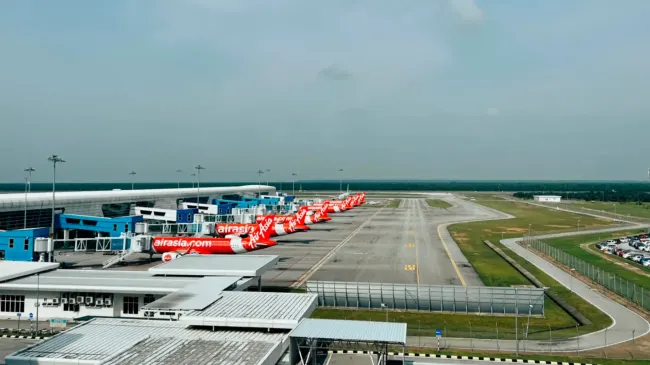
Navigating Kuala Lumpur departures: A frequent flyer's guide
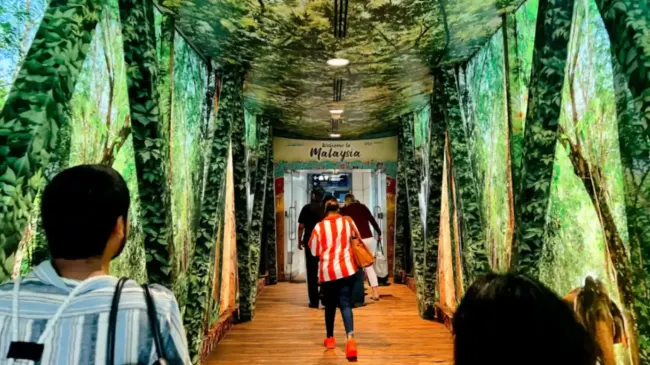
- Navigating Kuala Lumpur International Airport: What to expect on arrival
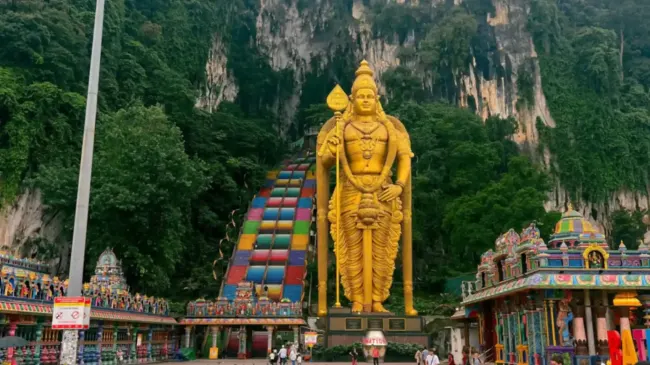
- Traveling to Malaysia: Useful tips for a hassle-free trip
My application couldn’t be completed due to an error. What now?
What can i do if my malaysia tourist evisa application has been canceled or rejected, what if i did not receive email address confirmation for my malaysia tourist evisa application, what do i have to provide for accommodation documents if i’m staying with a friend or relative, i don't have my visa printout with me. can i use a digital copy of my visa to enter malaysia, visa policy of malaysia, how do processing times work, where can i read more.
- Navigating Kuala Lumpur departures: A frequent flyer's guide
- Malaysia visa requirements for Canadian citizens
- Getting a Malaysia Tourist eVisa for Pakistani citizens
- Malaysia visa status: Track your application
- Can Foreigners Work in Malaysia?
- Malaysia eVisa for Citizens of China
- How long can you stay in Malaysia without a visa?
- Malaysia Visa Requirements: Do I need a vaccine to travel to Malaysia?
Other Available Visas: Malaysia?
- Tourist eVisa
- Tourist eVisa Application
- Digital Arrival Card
- Digital Arrival Card Application
- Malaysia Health Declaration Form

An official website of the United States government
Here’s how you know

Official websites use .gov A .gov website belongs to an official government organization in the United States.
Secure .gov websites use HTTPS A lock ( Lock A locked padlock ) or https:// means you’ve safely connected to the .gov website. Share sensitive information only on official, secure websites.

- For International Visitors
- Electronic System For Travel Authorization
Electronic System for Travel Authorization

ESTA is an automated system that determines the eligibility of visitors to travel to the United States under the Visa Waiver Program (VWP) . Authorization via ESTA does not determine whether a traveler is admissible to the United States. U.S. Customs and Border Protection officers determine admissibility upon travelers’ arrival. The ESTA application collects biographic information and answers to VWP eligibility questions. ESTA applications may be submitted at any time prior to travel, though it is recommended that travelers apply as soon as they begin preparing travel plans or prior to purchasing airline tickets.
Apply for an ESTA
Important Notice
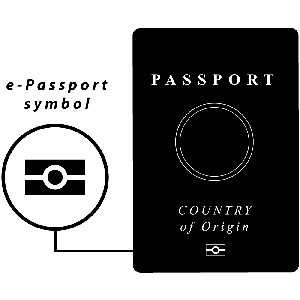
MYHRMIS Mobile
- Introduction
- Department History
- Organization Chart
- Malaysian Immigration Attaché
- Achievements & eAwards
- Client Charter Achievement
- Our Anthem & Oath
- Malaysian International Passport
- Passport Recipient and Issuance Offices
- Restricted Passport to Brunei
- Foreign Worker
- Entry Permit
- Malaysia My Second Home (MMH2) – En
- International travel
- Domestic Travel (Domestic)
- Enforcement
- Visa Requirement by Country
- Visa With Reference
- Apply for Visa
- Security Bond/Bank Guarantee Rates
- Endorsement of Exemption Section 66
- INTRODUCTION
- ELIGIBLE APPLICANTS
- REGULATORY AGENCY
- APPLICATION FORM
- Important Link
- Certification of Identity
- Special Programme
- Visitor’s Pass (Temporary Employment)
- Employment Pass
- Long Term Social Visit Pass
- Short Term Social Visit Pass
- Professional Visitor Pass
- Student Pass
- Residence Pass
- Required Documents
- Border Pass (Malaysia – Indonesia)
- Border Pass (Malaysia – Thailand)
- Foreign Domestic Helper (FDH)
- Restricted Travel Documents
- Document In Lieu of Internal Travel Document
- Prohibited Immigrant
- Frequently Committed Offences
- Entry Requirements for Ship Crew Member (Seaman)
- Address & Location
- Operation Hours
- Staff Directory
- Chief Information Officer
- Frequently Ask Question
Sunday : June 09, 2024 - 6.38 am

- E-Participation
- Tenders & Quotations
- Statistic Of Online Services Transaction
Immigration Department of Malaysia Headquarters (Ministry of Home Affairs)
No. 15, 1-7 Floor, (Podium) Persiaran Perdana, Presint 2, 62550 Putrajaya. T : 03-8000 8000 (MyGCC)
Portal Feedback: [email protected]
Copyright © 2021 | Immigration Department of Malaysia (Ministry of Home Affairs) Best viewed using the latest browser: Mozilla Firefox 4, Google Chrome or Internet Explorer 10.0 and above, with a resolution greater than 1024 x 768

IMAGES
VIDEO
COMMENTS
Border Pass / Cross-Border Pass. Border Pass (Malaysia - Indonesia) Border Pass (Malaysia - Thailand) Foreign Domestic Helper (FDH) Travel Document. Restricted Travel Documents. Document In Lieu of Internal Travel Document. Entry requirements into Malaysia. Prohibited Immigrant.
Effective December 1, 2023, all foreign travelers entering Malaysia are required to complete the Malaysia Digital Arrival Card at https://imigresen-online.imi. gov.my/mdac/main.This is an online pre-arrival form that must be submitted within three days prior to arrival in Malaysia.
If you are outside of Malaysia, you should contact the nearest Malaysian embassy or consulate if you have questions about Malaysian entry and exit requirements. If you are planning onward travel after departing Malaysia, please note that many other countries in the region require at least six months' remaining validity on your passport to enter.
British nationals do not need a visa to visit Malaysia. You will normally be allowed to stay for 90 days on arrival. For any longer, or for a non-tourist visit, you will need a visa. The Malaysian ...
MySafeTravel. From 1st August 2022, all travellers are allowed to enter Malaysia regardless of their COVID-19 vaccination status and do not require a pre-departure or on-arrival COVID-19 test. There are no quarantine orders related to COVID-19 enforced by the Malaysian Government upon arrival.
Bars in Malaysia are . Find continuously updated travel restrictions for Malaysia such as border, vaccination, COVID-19 testing, and quarantine requirements.
Level 1-6, Block B. MKN Embassy Techzone. Jalan Teknorat 2. 62502 Cyberjaya. Malaysia. 603 8000 8000. 603-8888 3163. Entry Requirements into Malaysia.
To ease the entry process to Malaysia, travellers with valid travel documents can enter Malaysia by downloading and activating the MySejahtera contact tracing app (from Apple App Store, Google Play Store or Huawei AppGallery) and completing the pre-departure form under the 'Traveller' icon without the need to apply for MyTravelPass, which ...
Steps required: Step 1: Fill up the Malaysia Digital Arrival Card (MDAC) here. Step 2 : Submit the MDAC within three (3) days prior to your arrival to Malaysia. Proof of submission will be sent to your registered email. Step 3: Upon arrival in Malaysia, kindly proceed to the Immigration counters. The following travellers are exempted from this ...
U.S. Embassy Kuala Lumpur Health Alert. Event: COVID-19 Location: Malaysia (Updated) Quarantine Requirements Upon Entry to Malaysia Effective January 13, 2022, fully vaccinated travelers who have recovered from a COVID-19 infection in the last 11 to 60 days are not required to quarantine upon arrival in Malaysia. Such travelers remain subject to testing and documentation requirements.
Apply for My Travel Pass online to enter or exit Malaysia during the pandemic. Check the eligibility and requirements for Visitor Pass on the official website.
The following documents are required to be presented upon arrival in Malaysia entry check- points: Valid passport / travel document. Valid eVISA printout (eVISA Note). Boarding pass. Sufficient funds (Cash / Traveler's Cheque / Debit or Credit Cards / e-Wallets recognized by Malaysian Government) to cover your expenses during your stay in ...
More about Malaysia's revised entry requirements and autogate services. In the Malaysia Digital Arrival Card (MDAC) form, foreign travellers are required to provide details such as their name, passport information, nationality, date of arrival, date of departure, mode of transport (air, land, or sea), and the last port of embarkation.
Travel to Malaysia / Entry Requirements into Malaysia / Visa Requirement Based on Country. TOURISM INFORMATION ... Malaysia. 2.9378764,101.6517949. 603 8000 8000. 603-8888 3163. 2 ACCESS PAGE Calendar. Agencies Directories. Chief Information Officer (GCIO) Publication.
What are the visa requirements for Malaysia? If your home country is not on the visa-free travel list, or you're planning a long stay, you'll need to apply for a visa. However, be aware that the only visas valid for more than 90 days are the multi-entry visas reserved for business travelers. Different rules apply to different countries.
Information on filling in the Malaysia Digital Arrival Card to enter Malaysia ('Entry requirements' page). The Foreign, Commonwealth & Development Office ( FCDO) provides advice about risks of ...
If your travel plans in Malaysia include outdoor activities, take these steps to stay safe and healthy during your trip. Stay alert to changing weather conditions and adjust your plans if conditions become unsafe. Prepare for activities by wearing the right clothes and packing protective items, such as bug spray, sunscreen, and a basic first ...
Entry requirements vary depending on the type of passport you use for travel. Before you travel, check with your transportation company about passport requirements. ... Your passport must be valid for at least 6 months beyond the date you expect to leave Malaysia. Passport for official travel. Different entry rules may apply. Official travel.
For further info on visa requirements, please consult with the embassy or consulate of your respective countries. MALAYSIA DIGITAL ARRIVAL CARD (MDAC) Effective 01 January 2024. All travellers are required to submit their Malaysia Digital Arrival Card (MDAC) within three (3) days prior to their scheduled arrival in Malaysia.
Safety. There is a risk of terrorism in Malaysia. Terrorism is a global threat. Attacks could be random and small-scale. Possible targets could include tourist areas and a range of other locations frequented by foreigners (see Full Advice - Safety below), including in Kuala Lumpur. Take official warnings seriously.
Update as of 1 Aug 2022: Malasyia has removed all entry requirements related to COVID-19.. Malaysia reopened its borders in April 2022 and has since relaxed the conditions for travelling even more. Here's all you need to know about Malaysia travel requirements in 2022. Also read: Singapore's Vaccinated Travel Framework: All You Need to Know Before Travelling
I highly recommend applying for your eVisa at least 2 weeks before your travel date. Here is the summary of when to apply. Latest: 2 weeks; Earliest: 1 month; eVisa extension. The validity of the Malaysia eVisa cannot be extended. Your stay inside Malaysia also cannot be extended past 30 days. *** Malaysia eVisa Requirements eVisa eligibility
Explore Malaysia holidays and discover the best time and places to visit. ... Visa Requirements. A great place for impulsive travelers, many nationals can enter Malaysia visa-free for up to 90 days. ... Read article. Money and Costs. Malaysia should really be better known as a budget travel destination. It's easy to travel around, stay and eat ...
Each Reciprocity Page will provide detailed information about how to obtain these civil documents from the country* you have selected, as well as the location of the U.S. Embassy or Consulate where you can apply for your visa. For more information about civil document requirements for immigrant visa cases, see civil documents.
Manifestation or notice of intended travel filed at least seven (7) calendar days before the intended date of travel, duly received by the Court where the case is pending
Travel to Malaysia / Entry Requirements into Malaysia / Getting Visa Information. TOURISM INFORMATION ... Malaysia. 2.9378764,101.6517949. 603 8000 8000. 603-8888 3163. 2 ACCESS PAGE Calendar. Agencies Directories. Chief Information Officer (GCIO) Publication.
A valid insurance certificate is essential to demonstrate that the vehicle is adequately insured for travel in Malaysia. The insurance coverage should meet the minimum requirements set by Malaysian authorities, including coverage for third-party liability and personal injury. The insurance certificate should be issued by a recognized insurance ...
The Malaysia Tourist eVisa is a digital travel authorization designed for those wishing to visit Malaysia for tourism purposes. Implemented to streamline the visa application process, it allows travelers to apply for and receive their visa online without the need to visit an embassy or consulate.
The ESTA application collects biographic information and answers to VWP eligibility questions. ESTA applications may be submitted at any time prior to travel, though it is recommended that travelers apply as soon as they begin preparing travel plans or prior to purchasing airline tickets. Apply for an ESTA
No. 15, 1-7 Floor, (Podium) Persiaran Perdana, Presint 2, 62550 Putrajaya. T : 03-8000 8000 (MyGCC) Portal Feedback: [email protected]